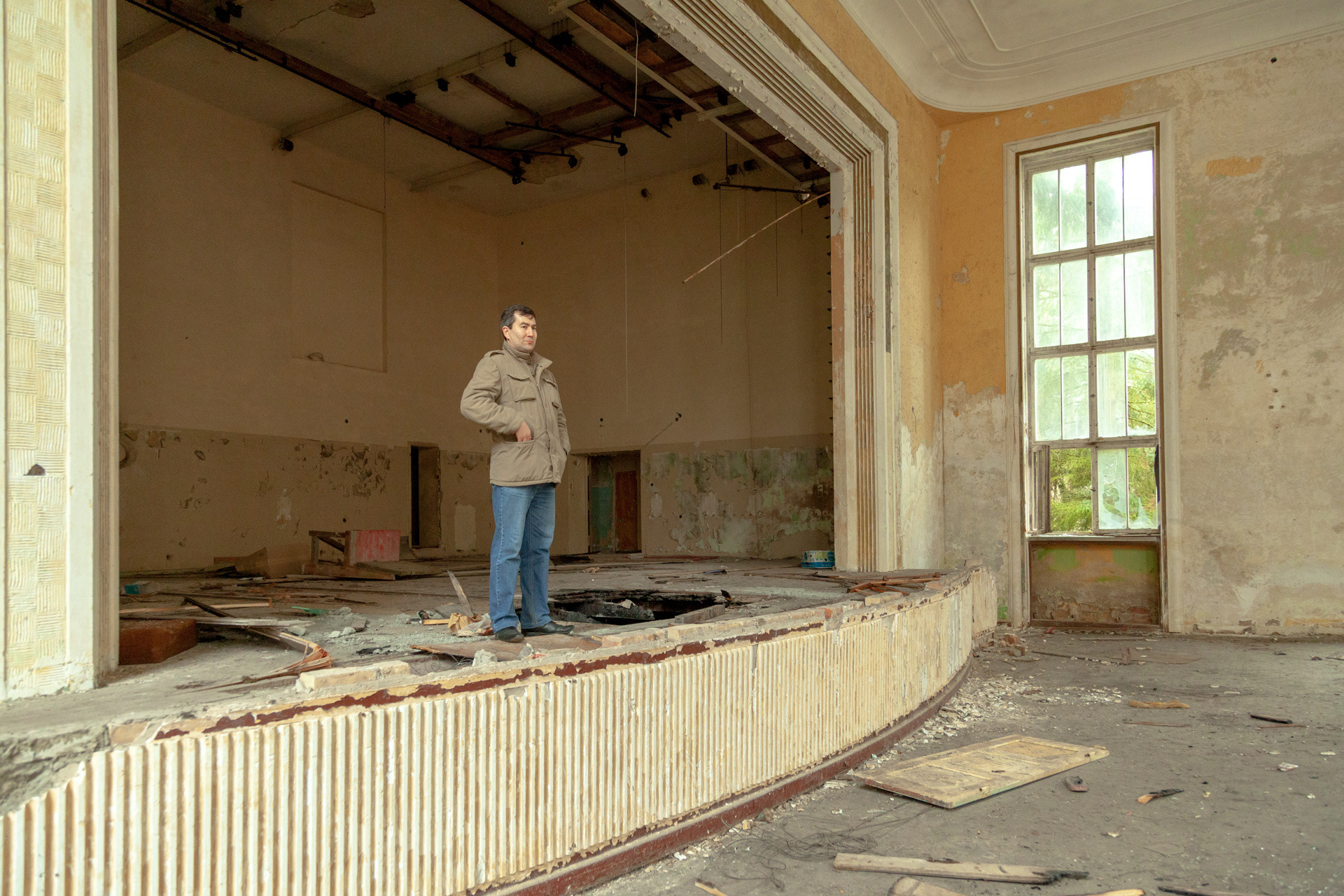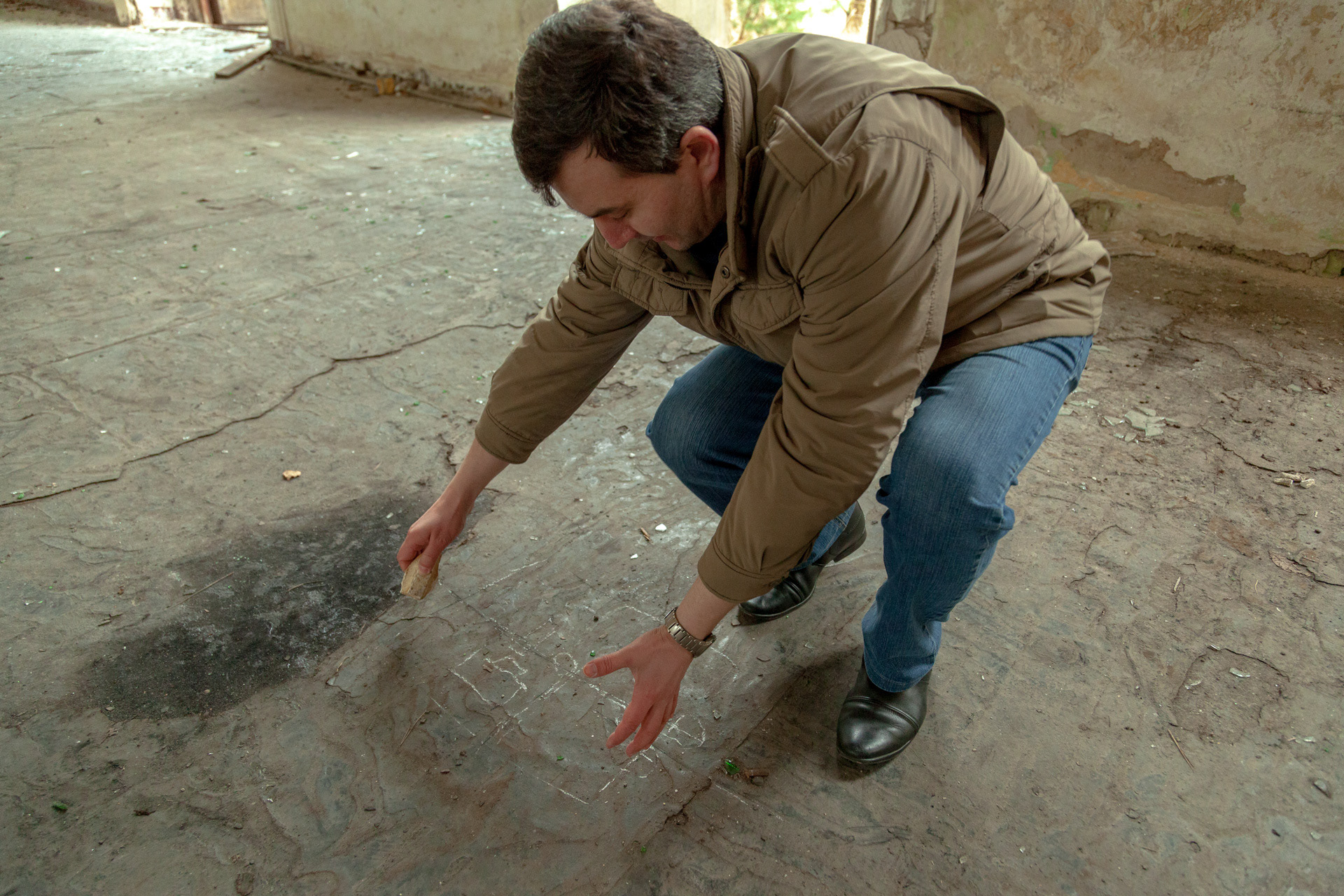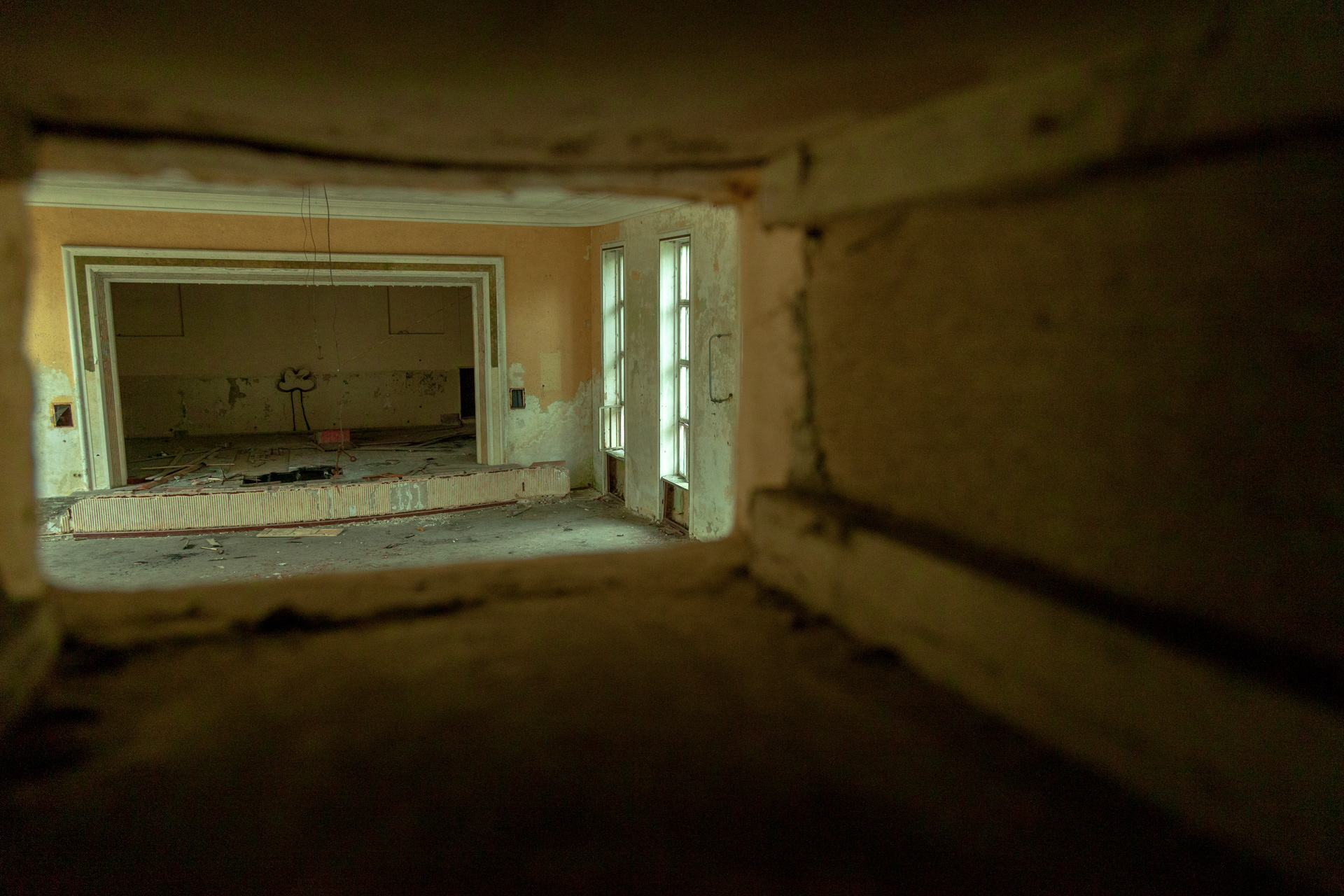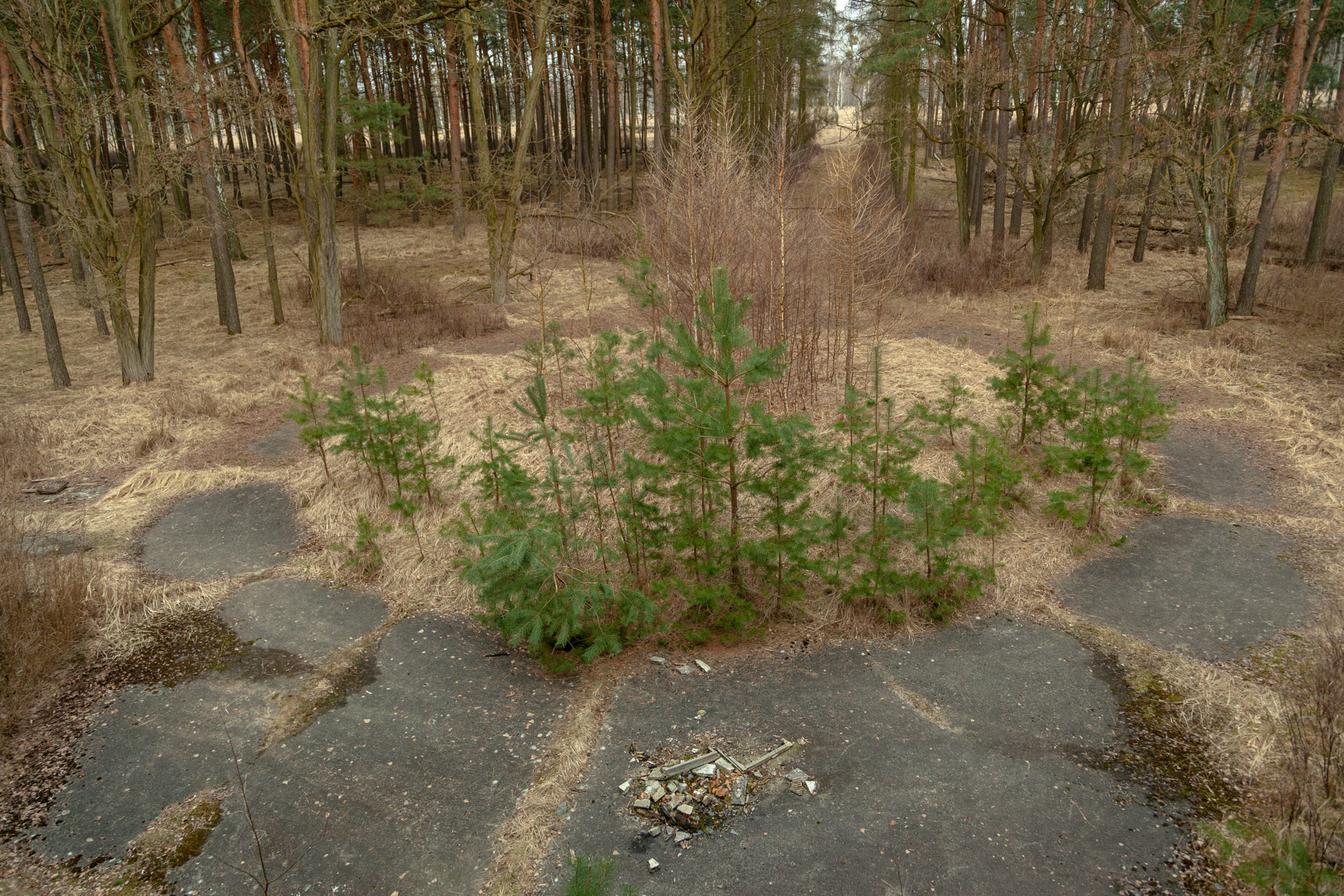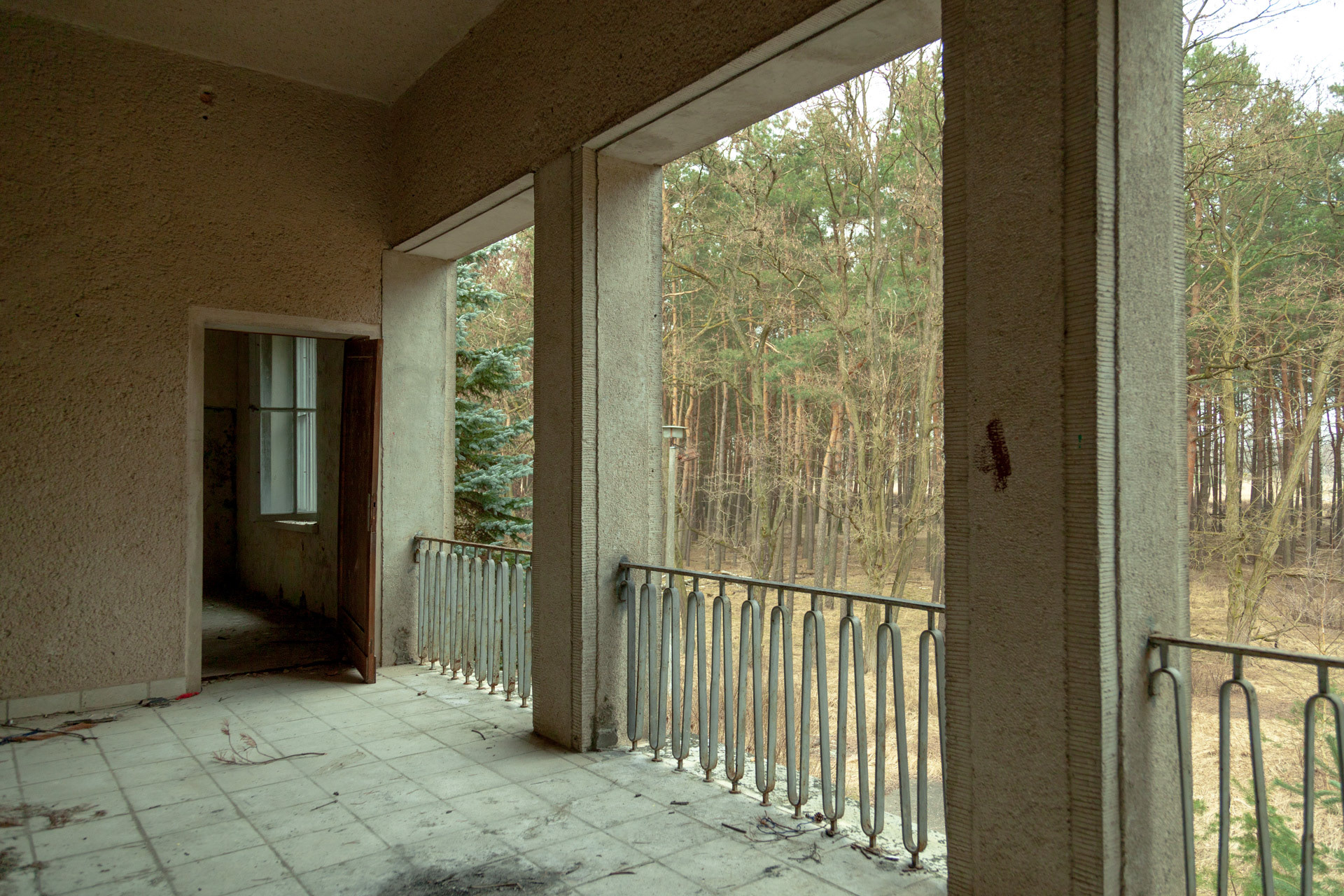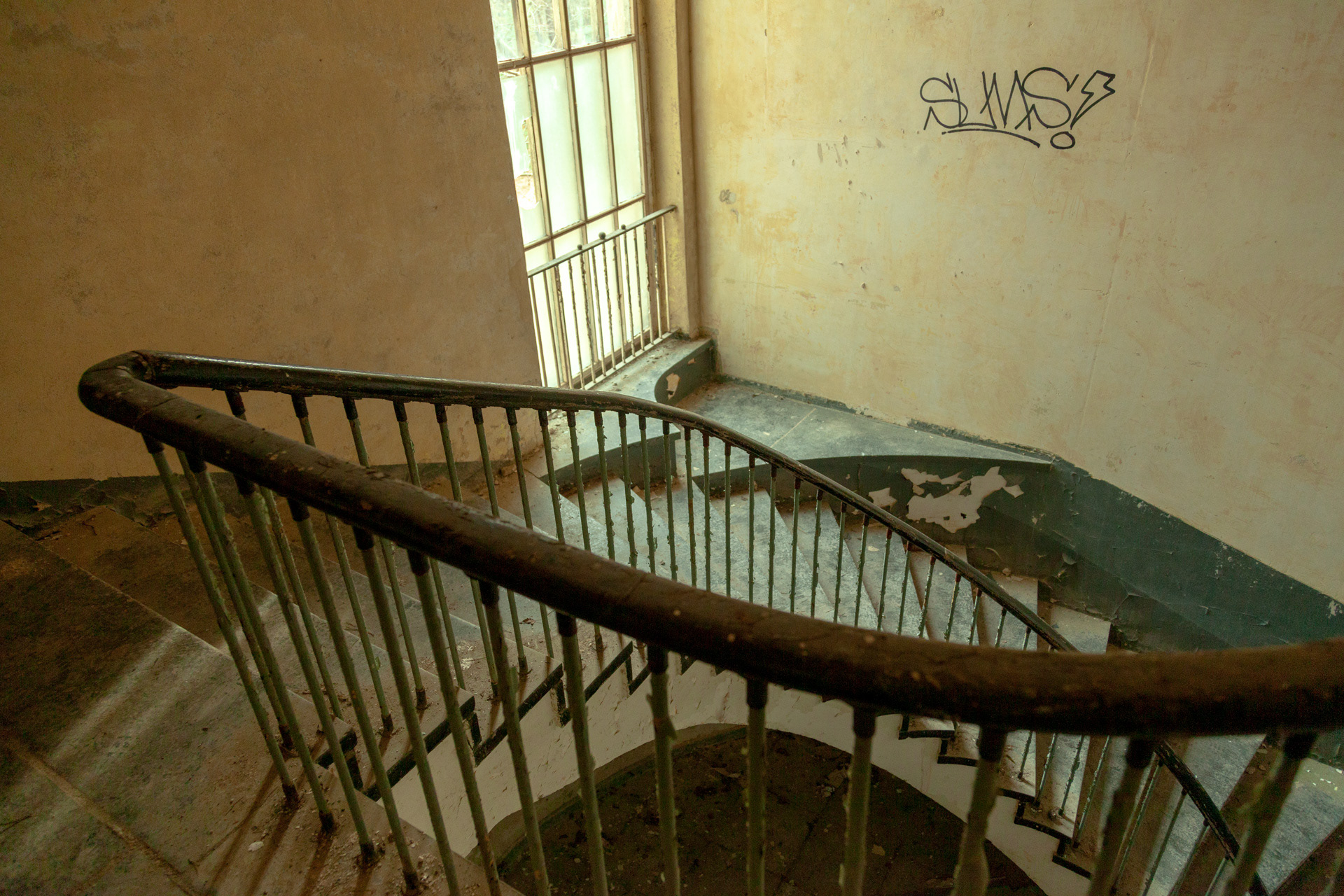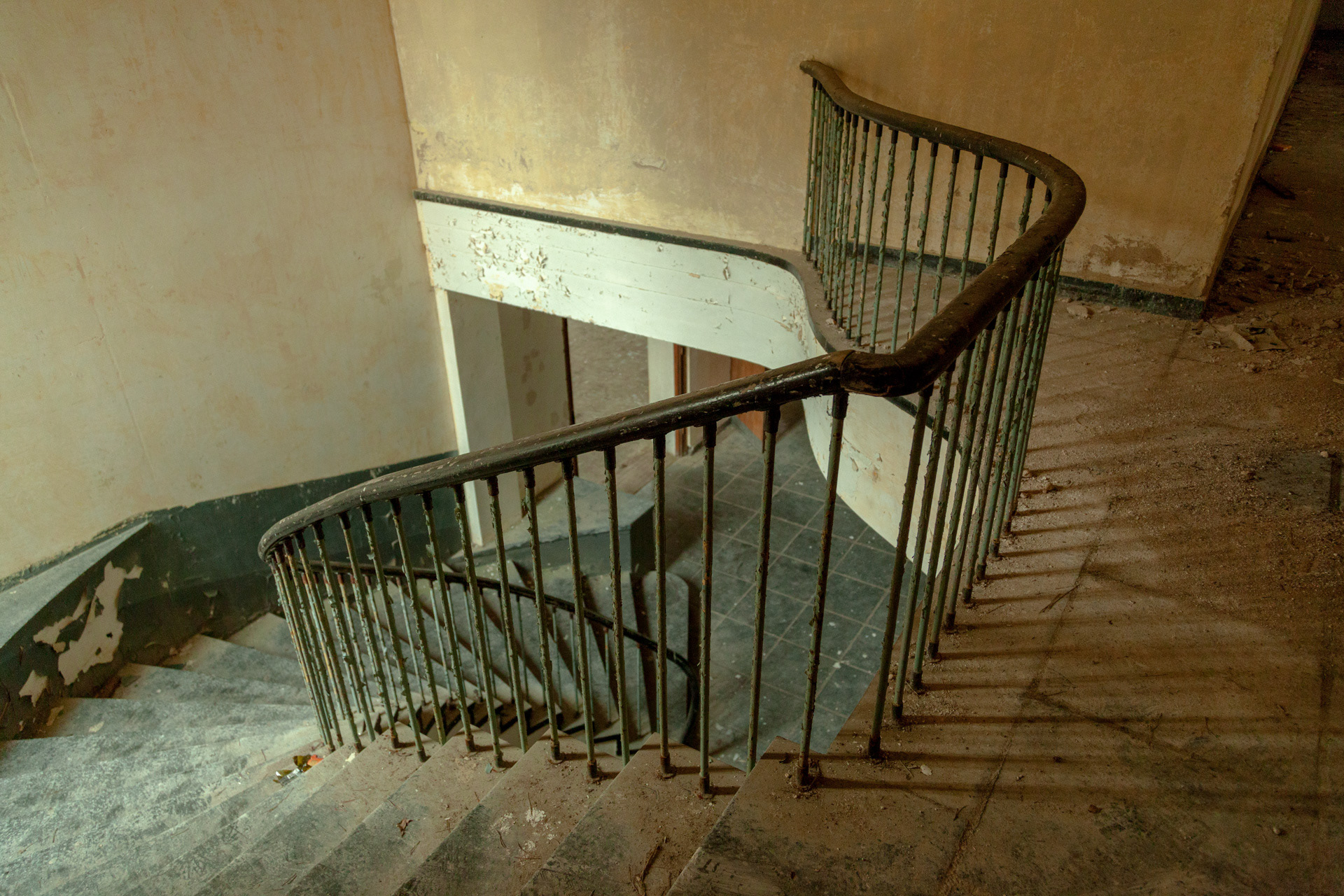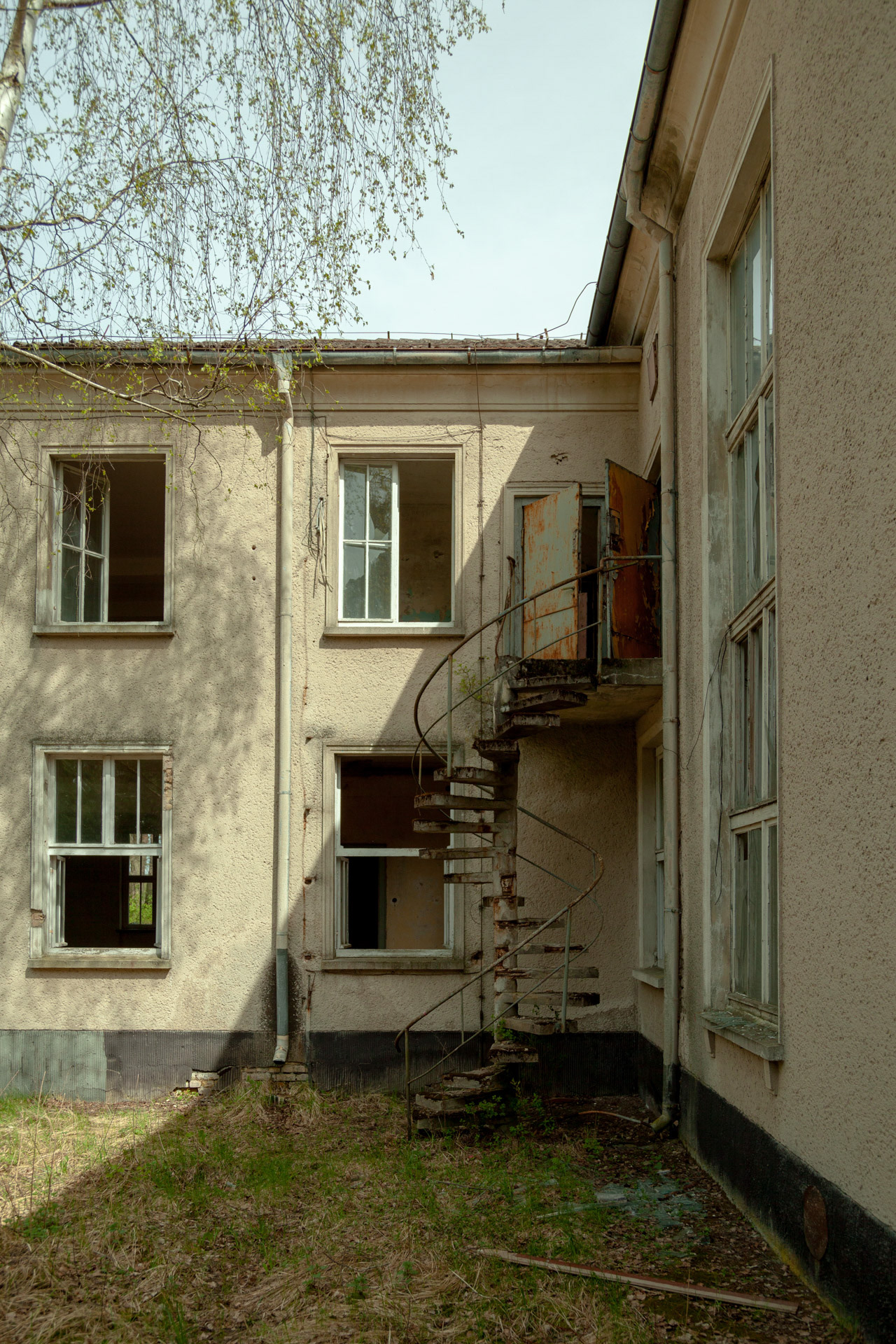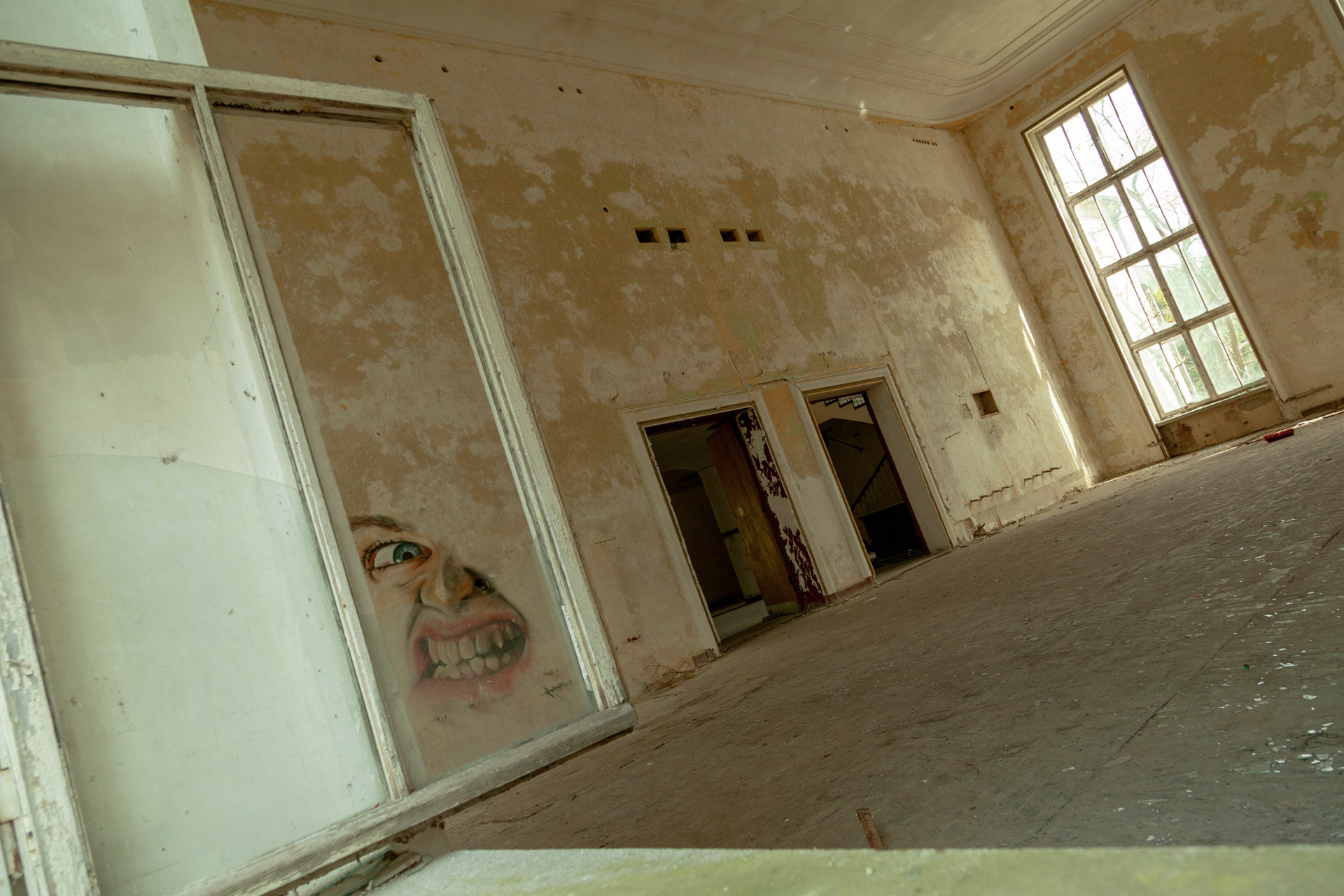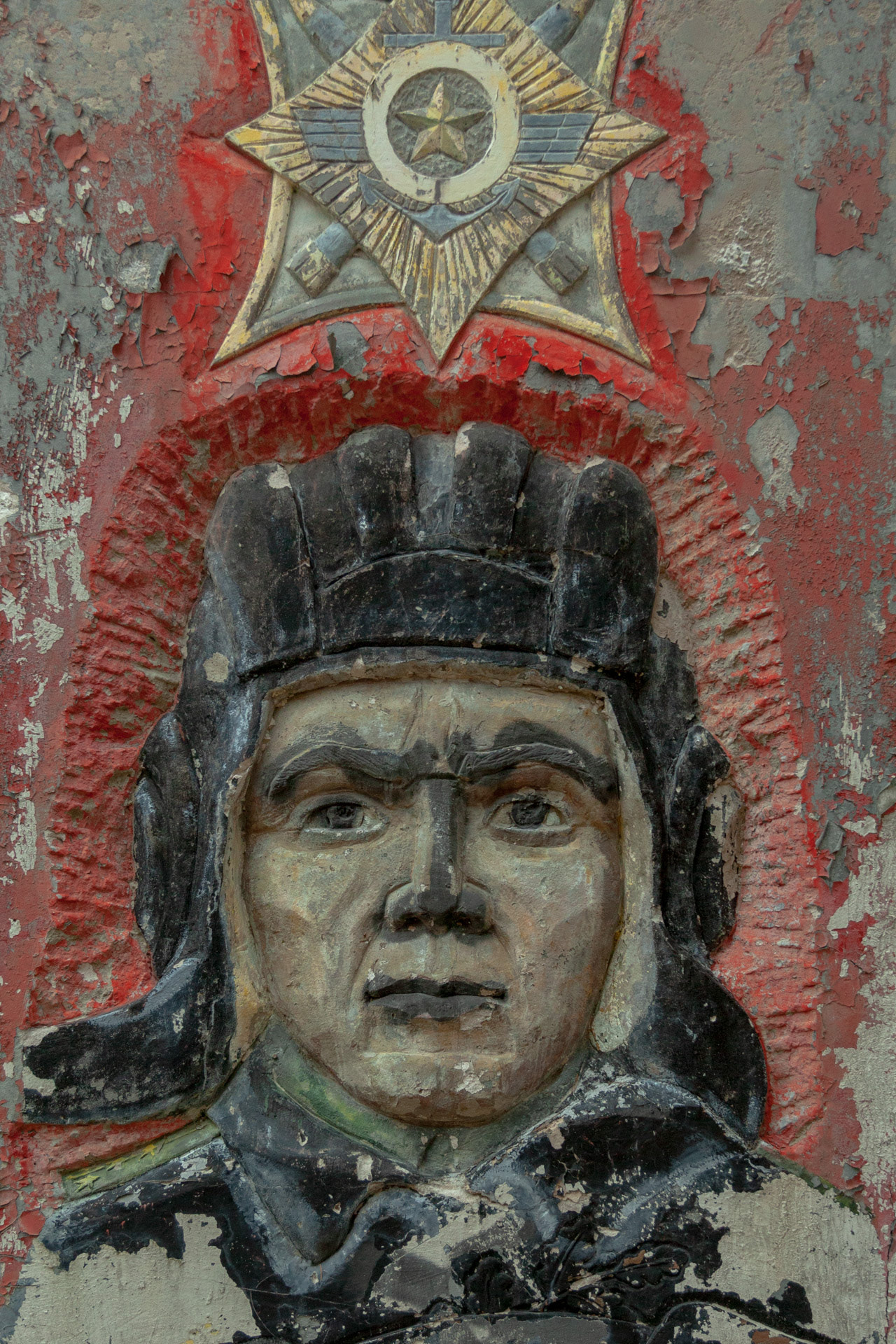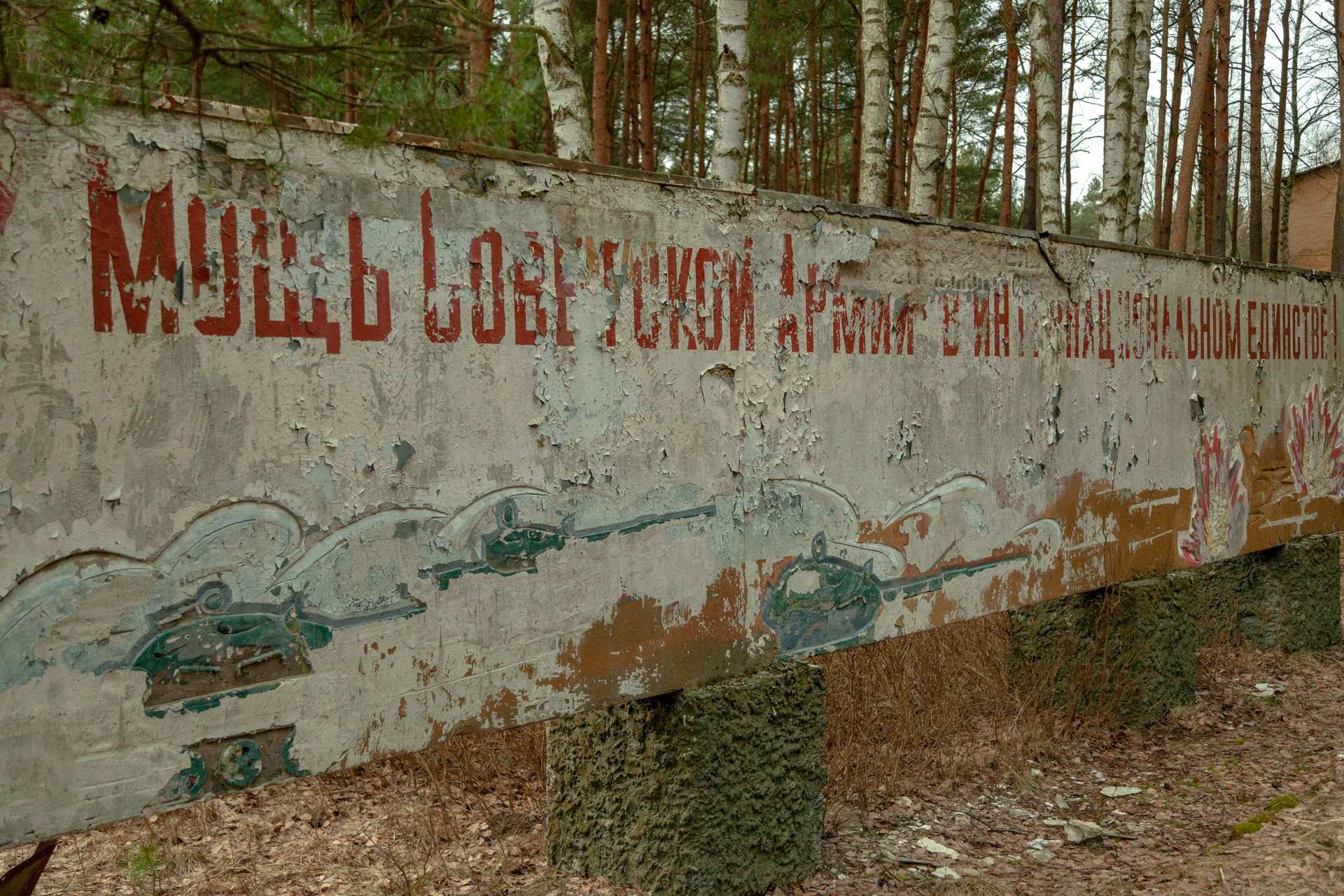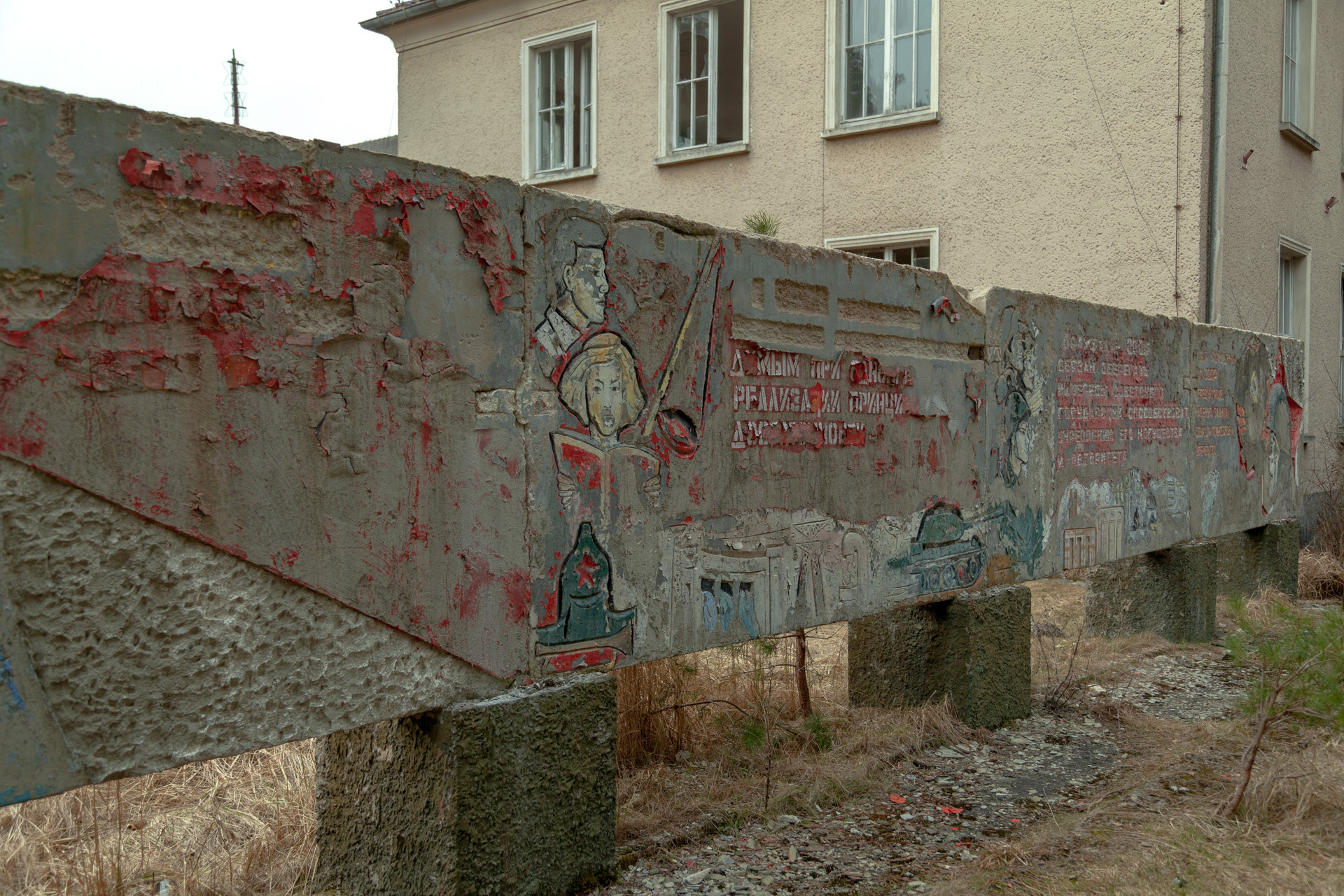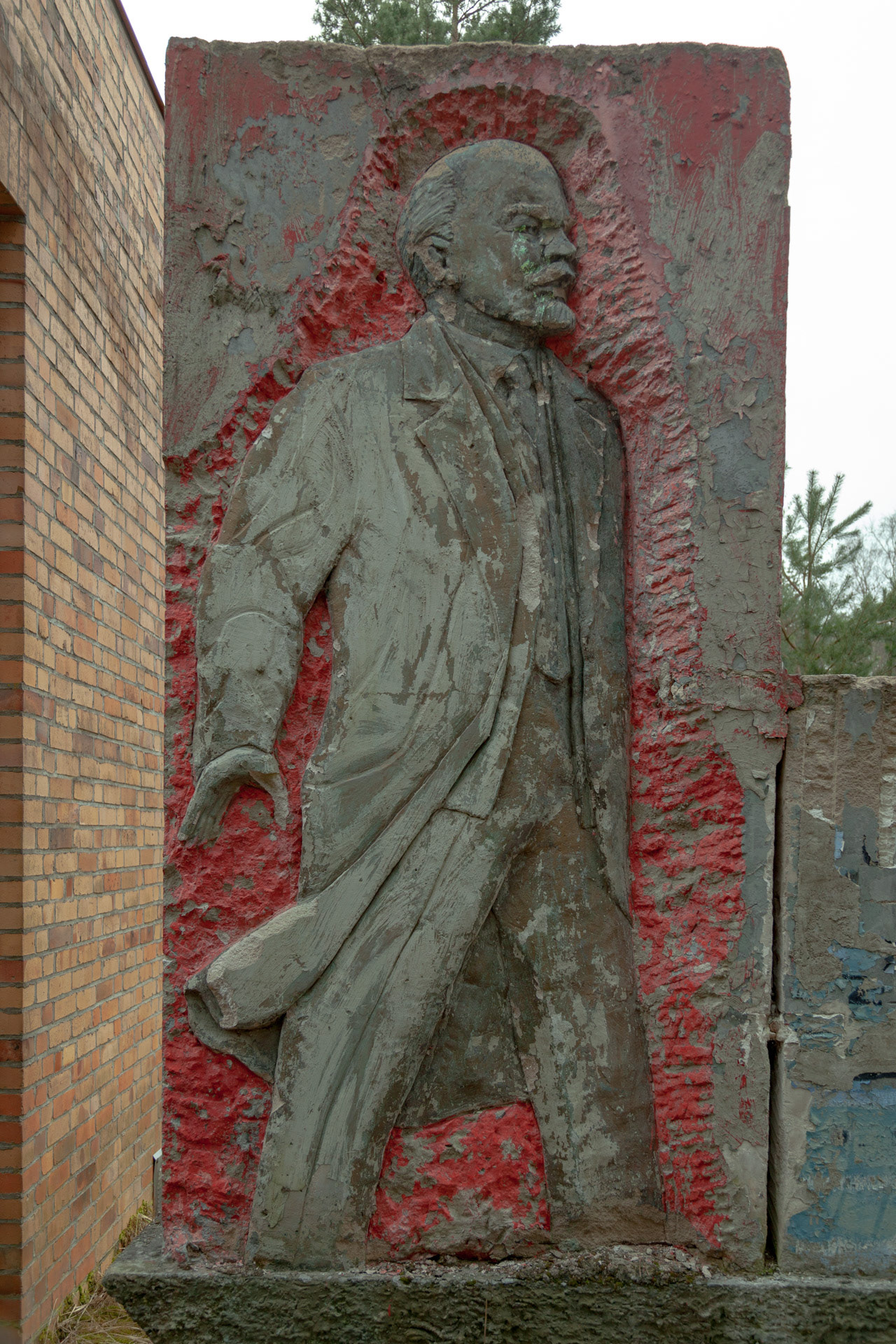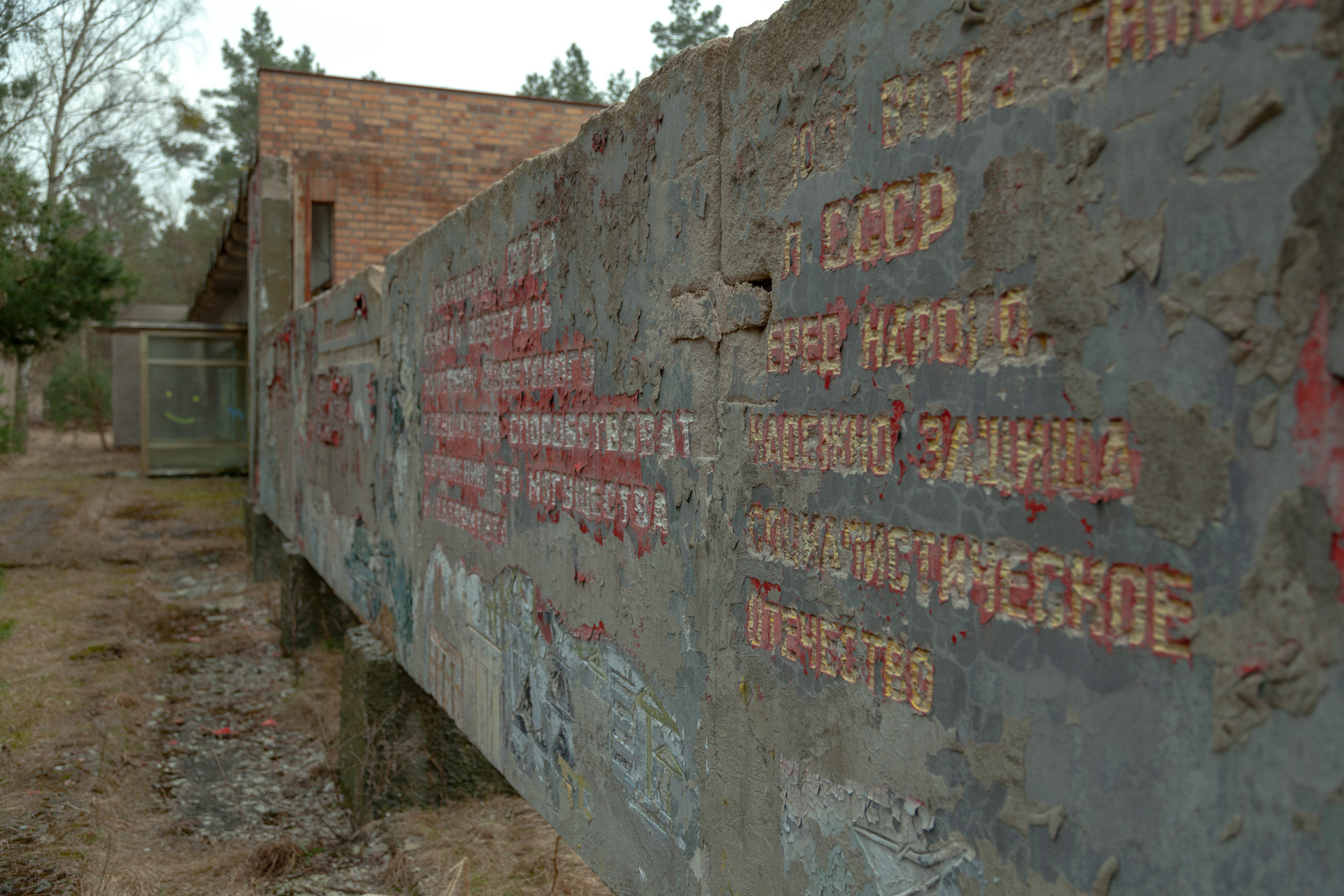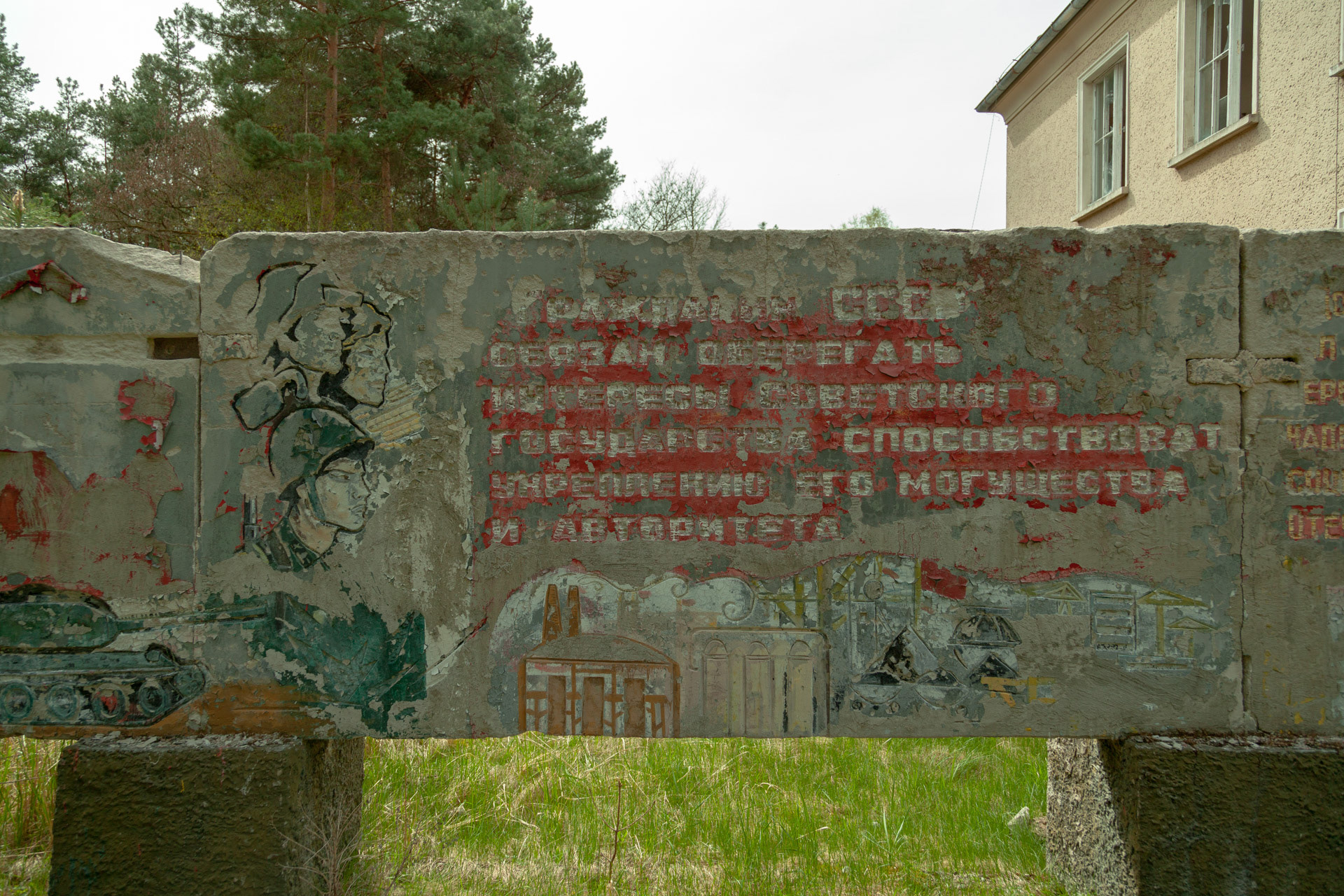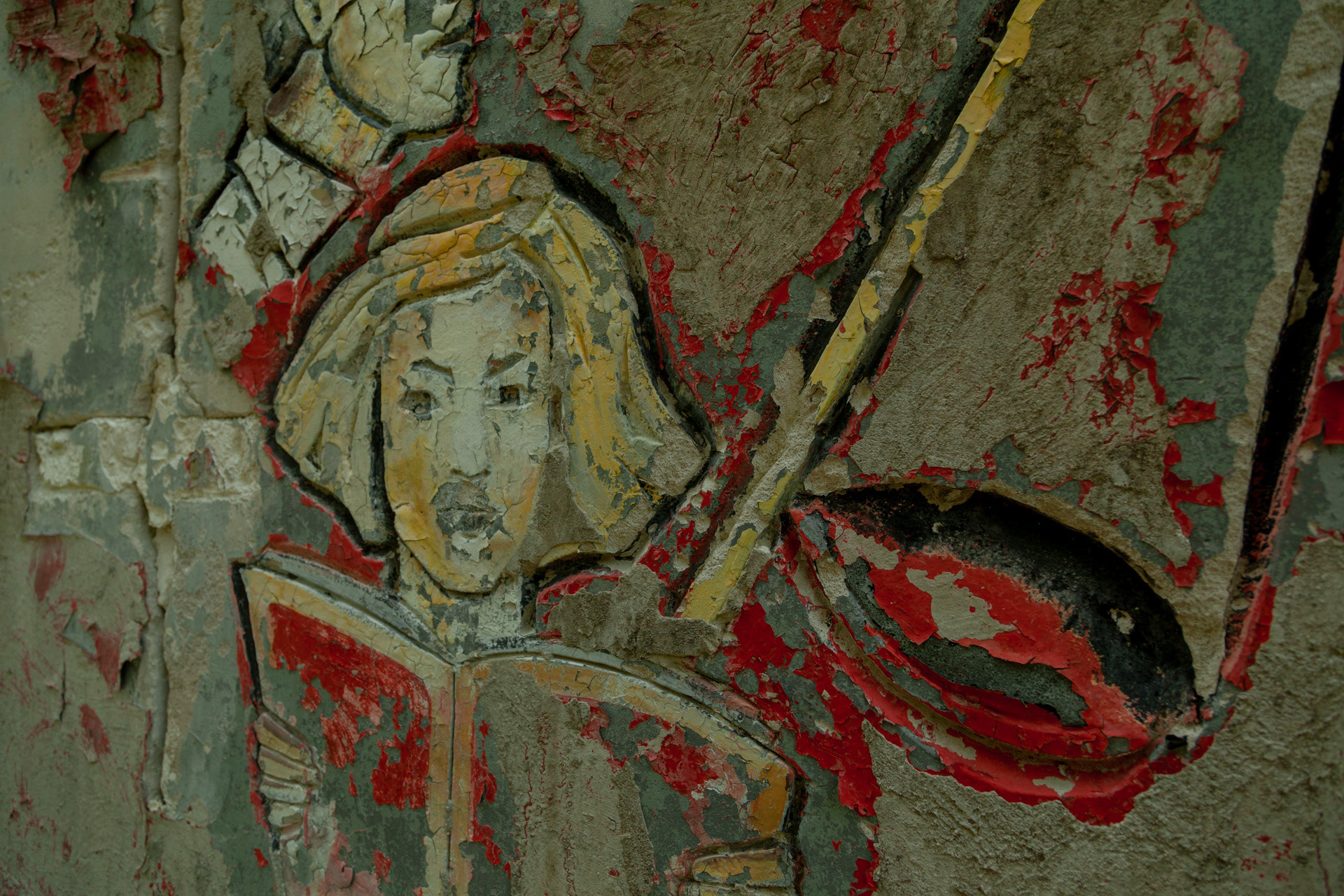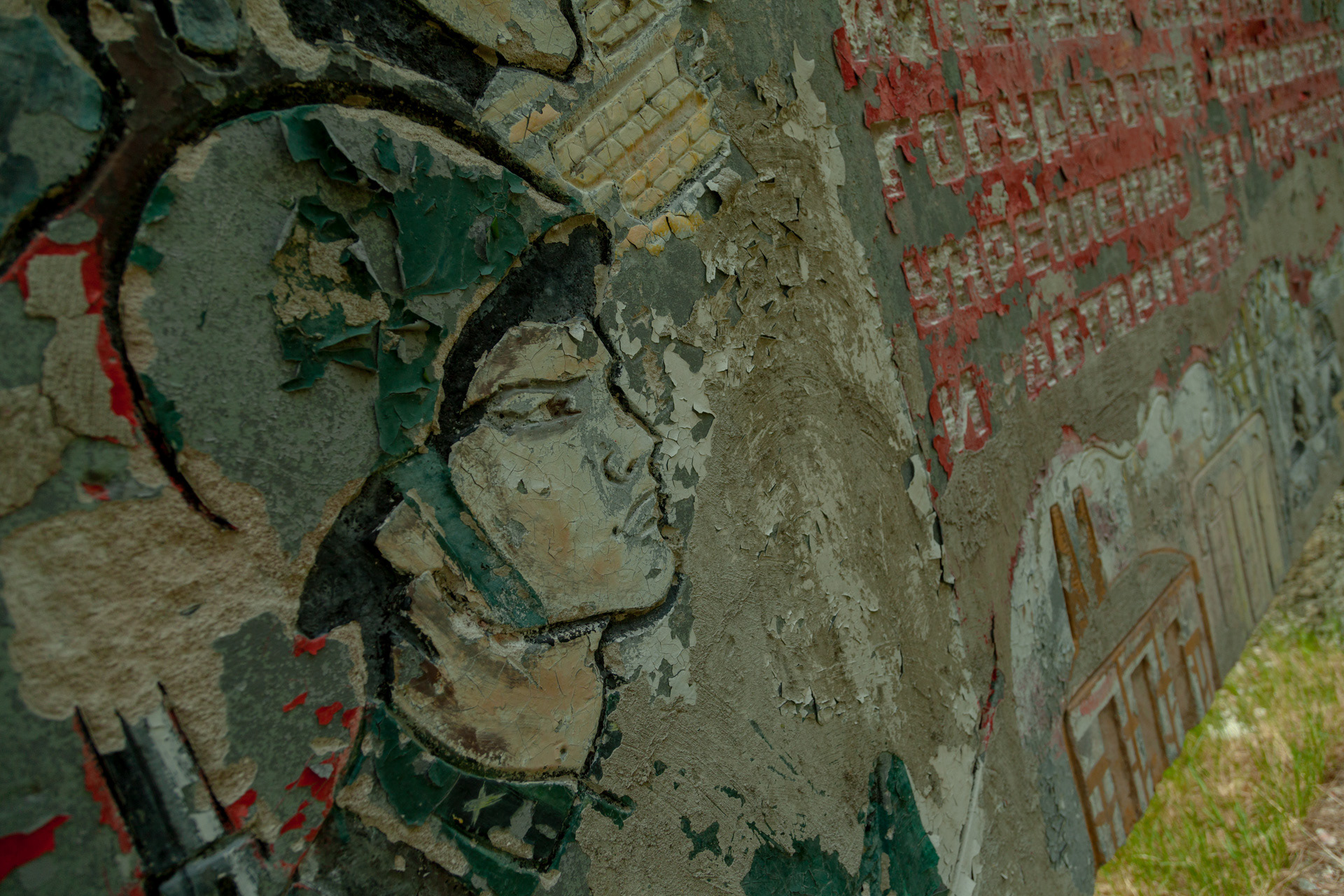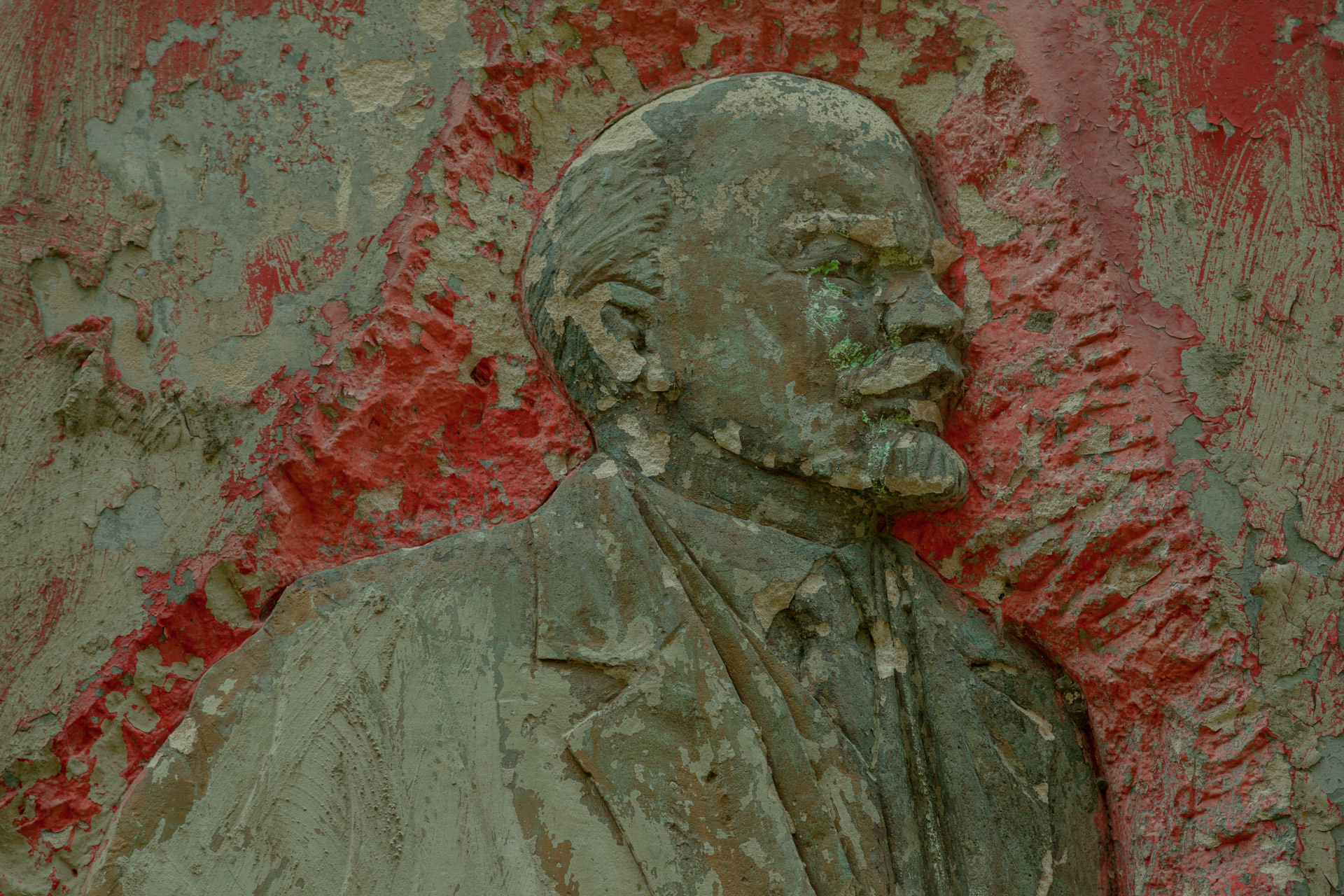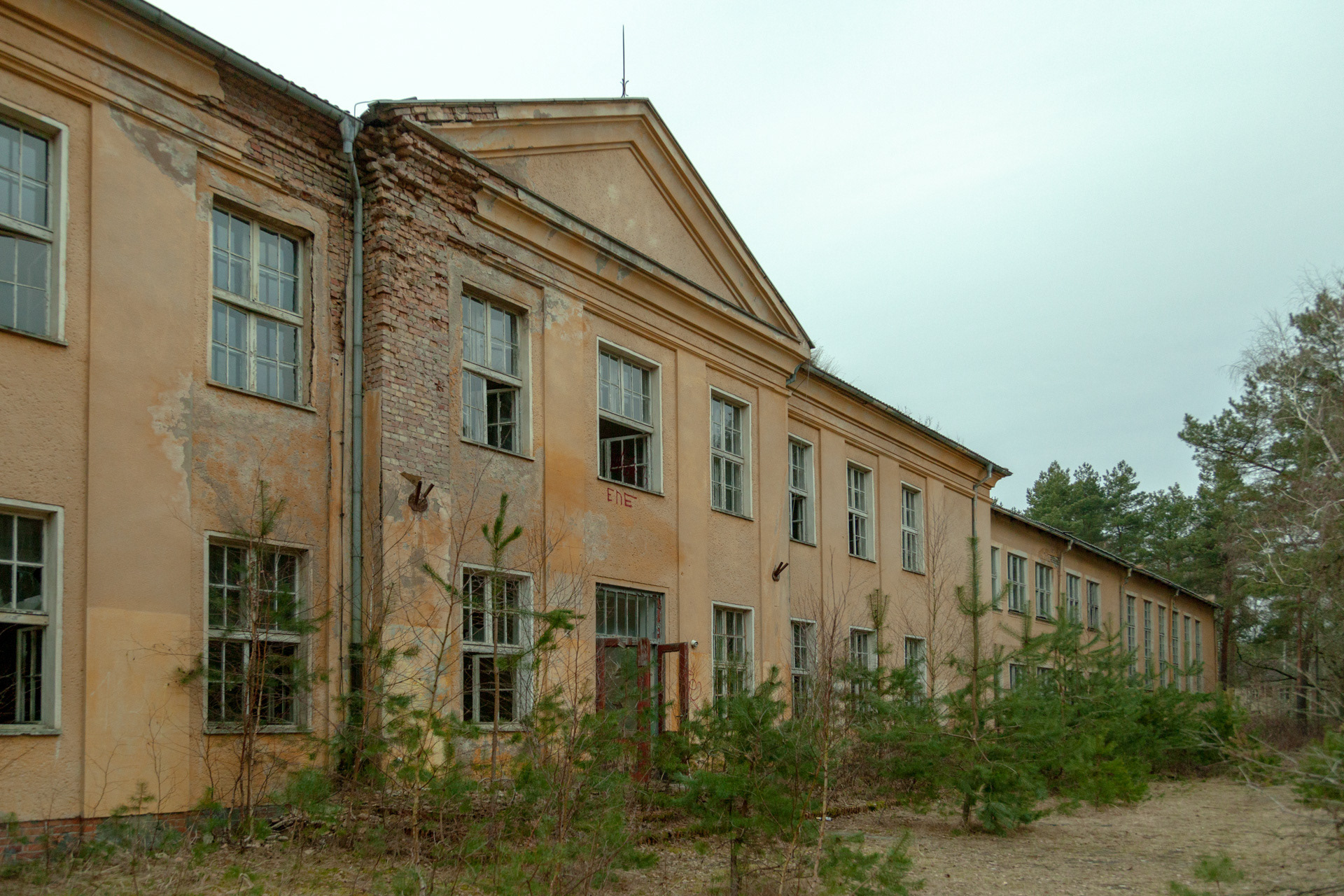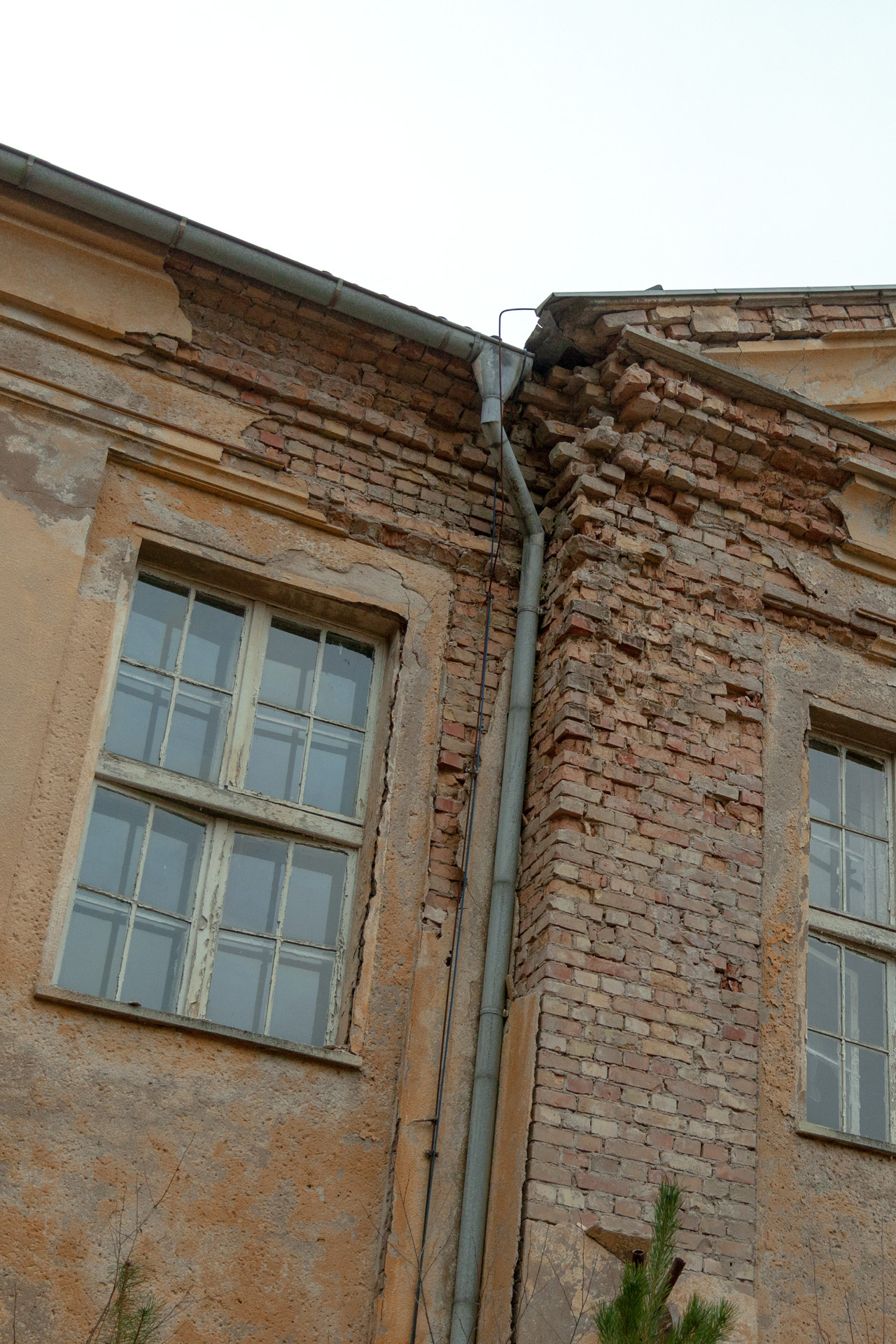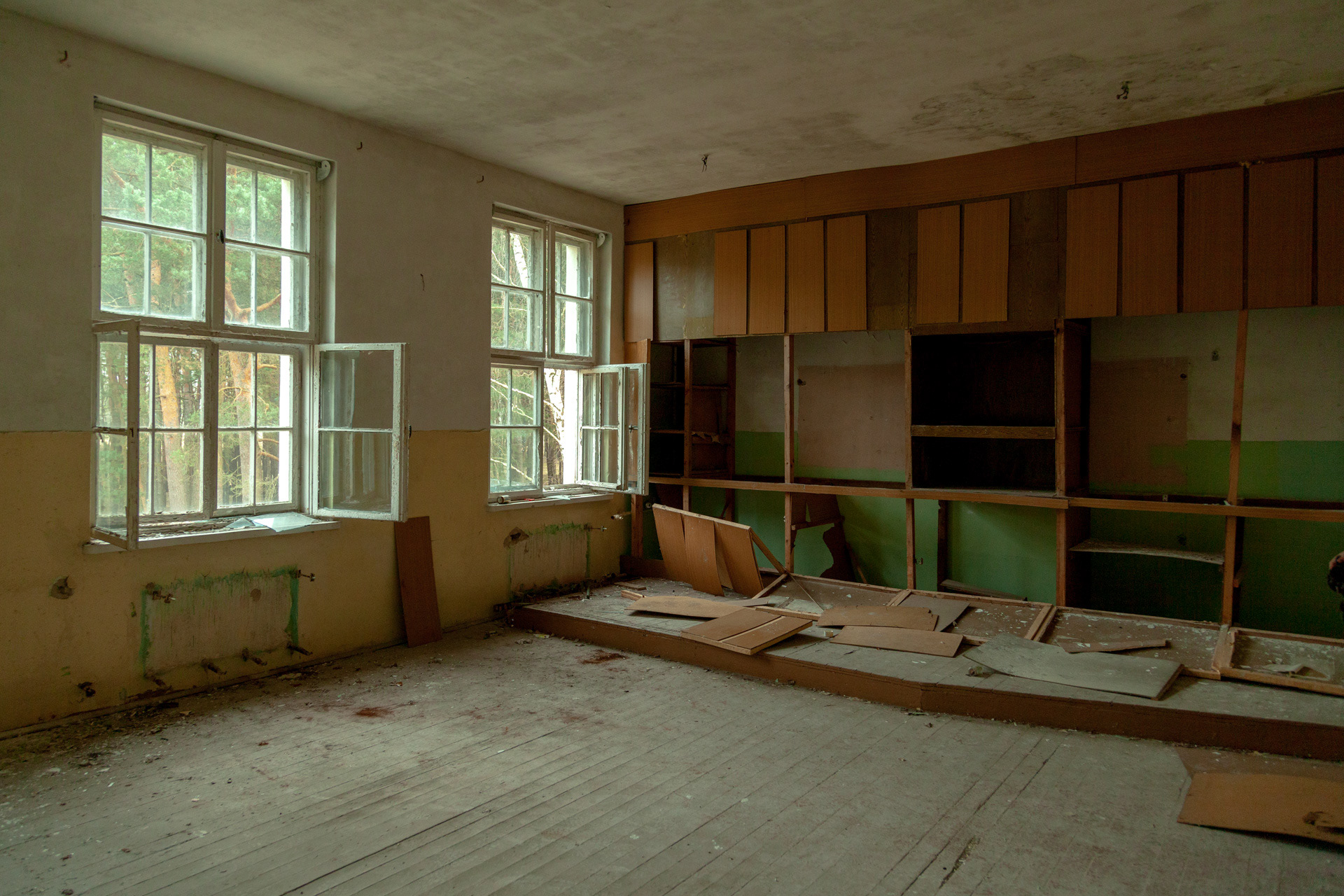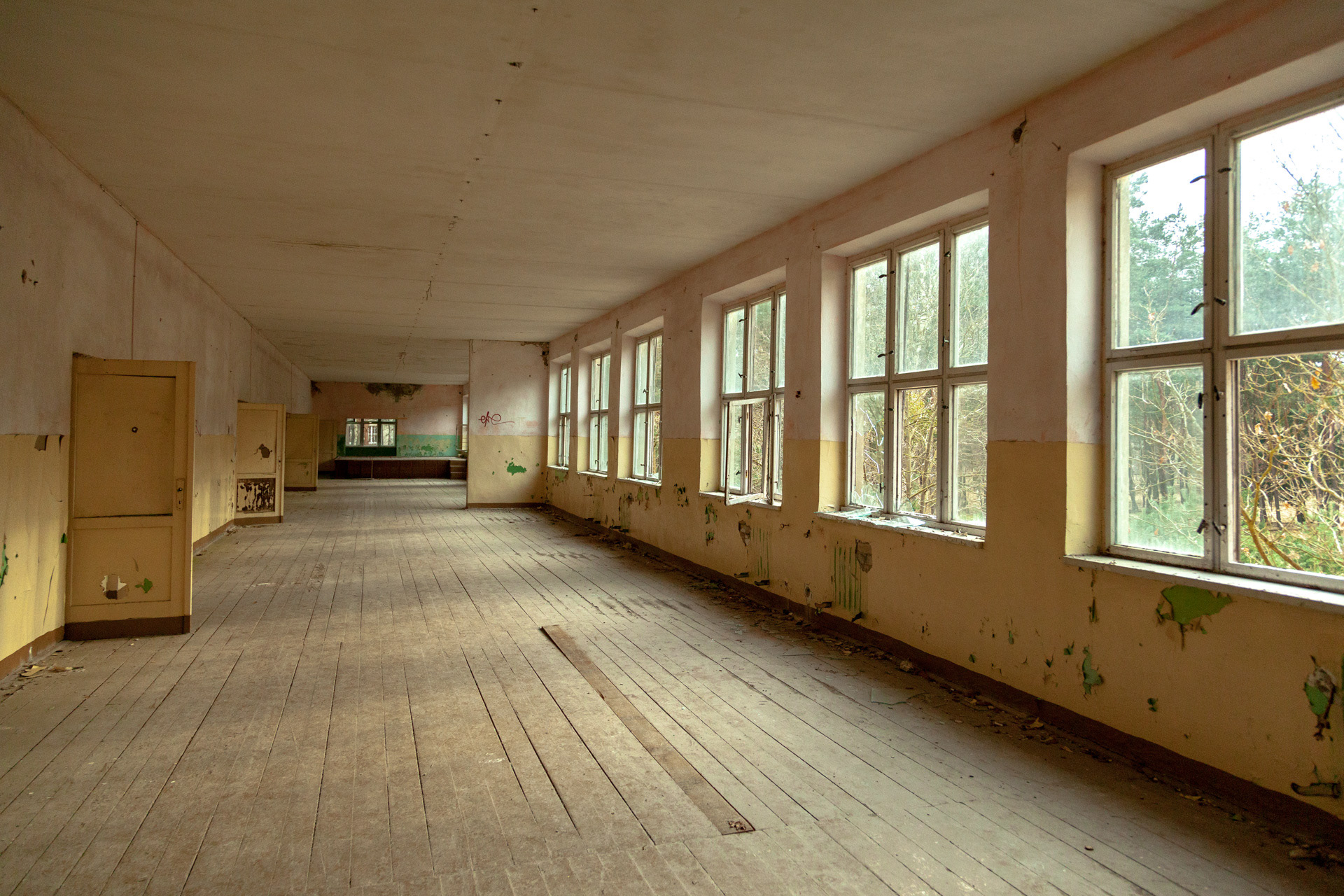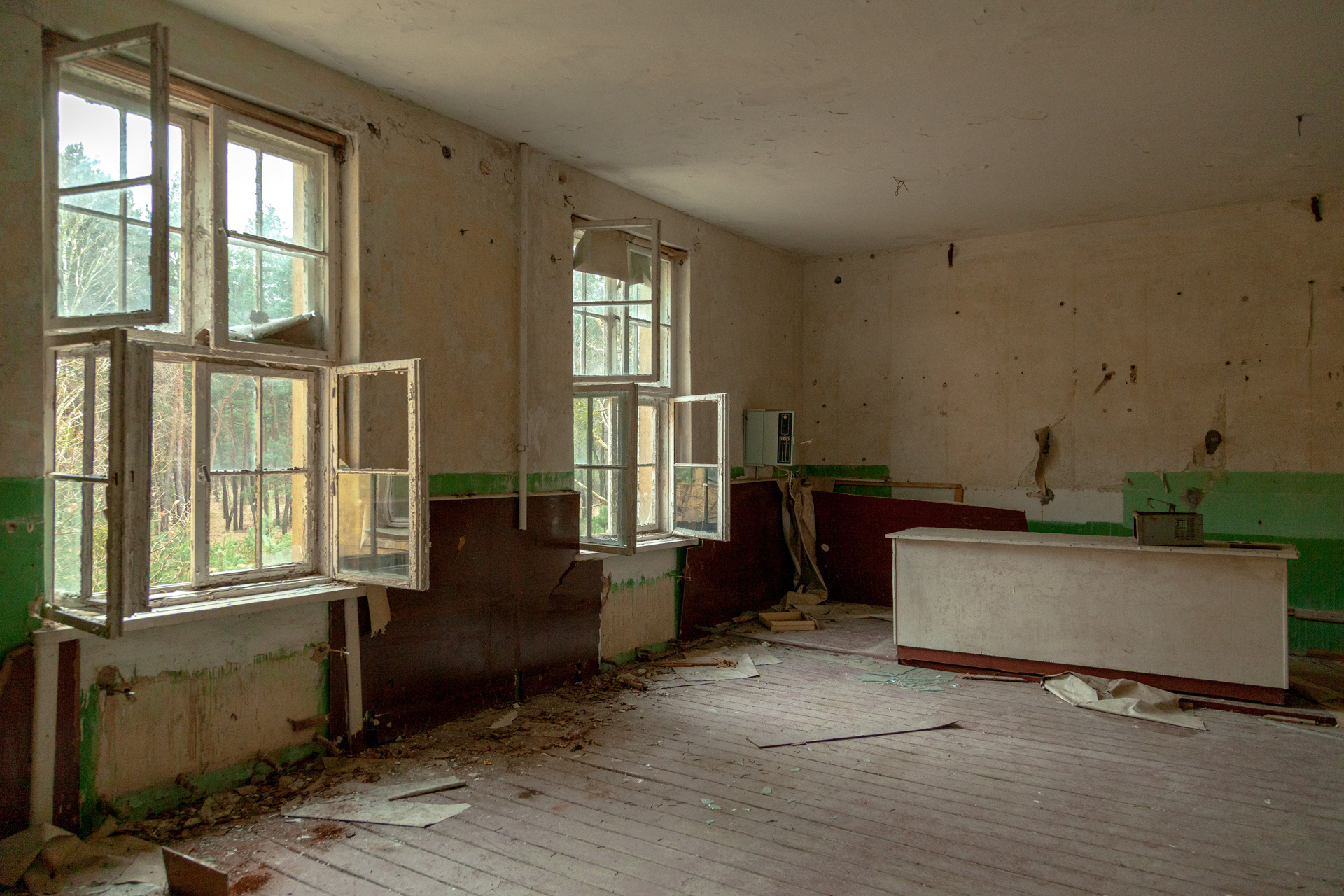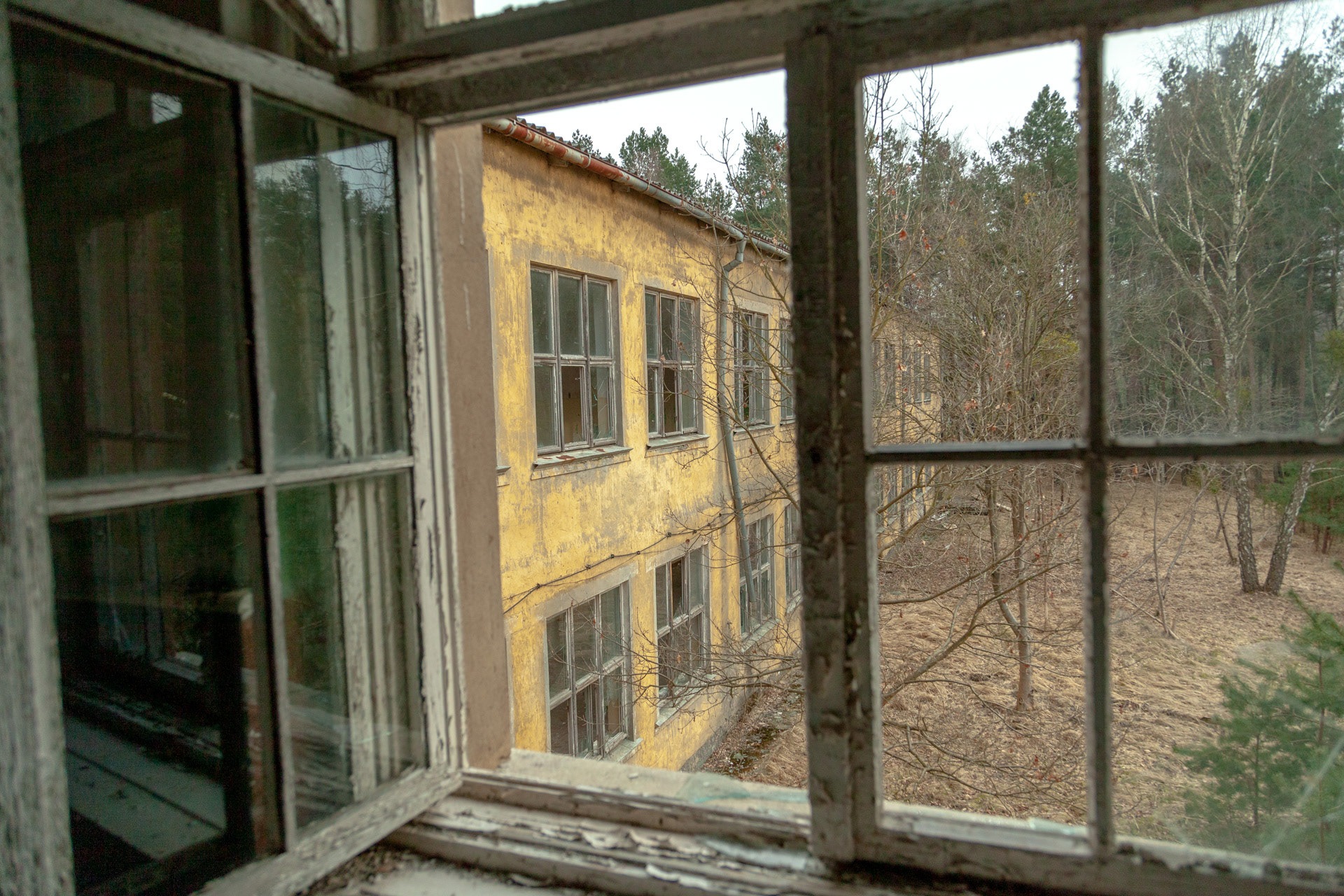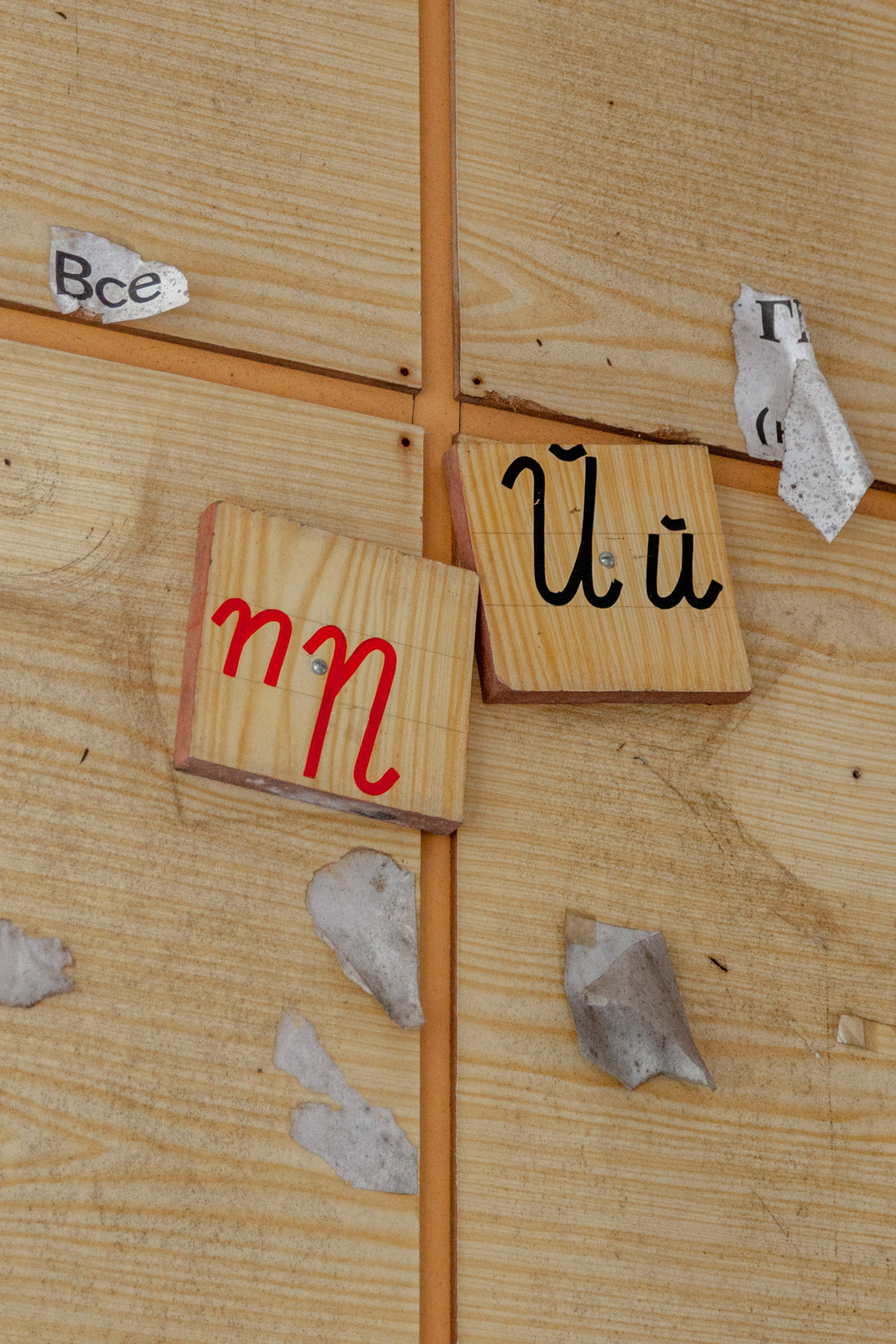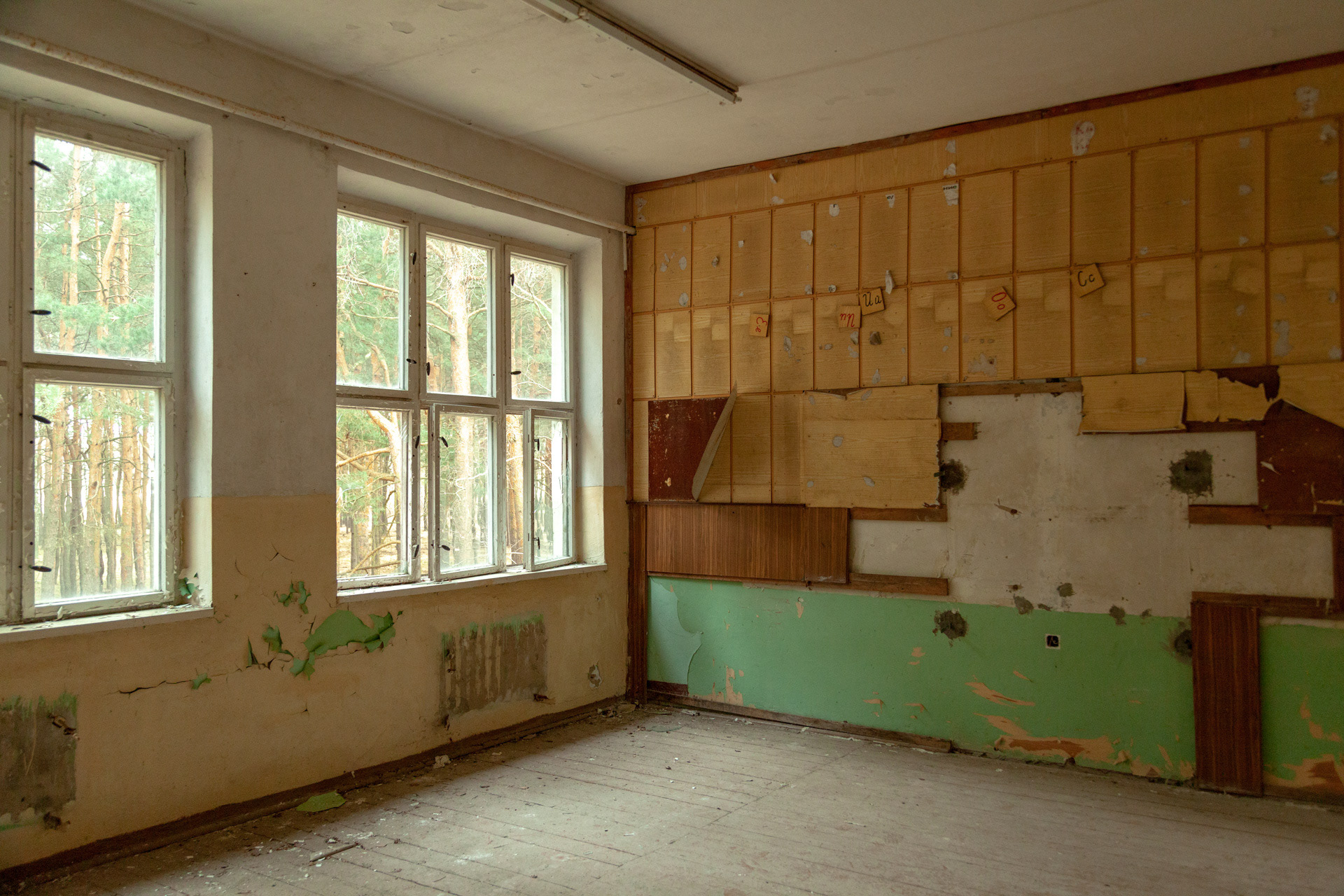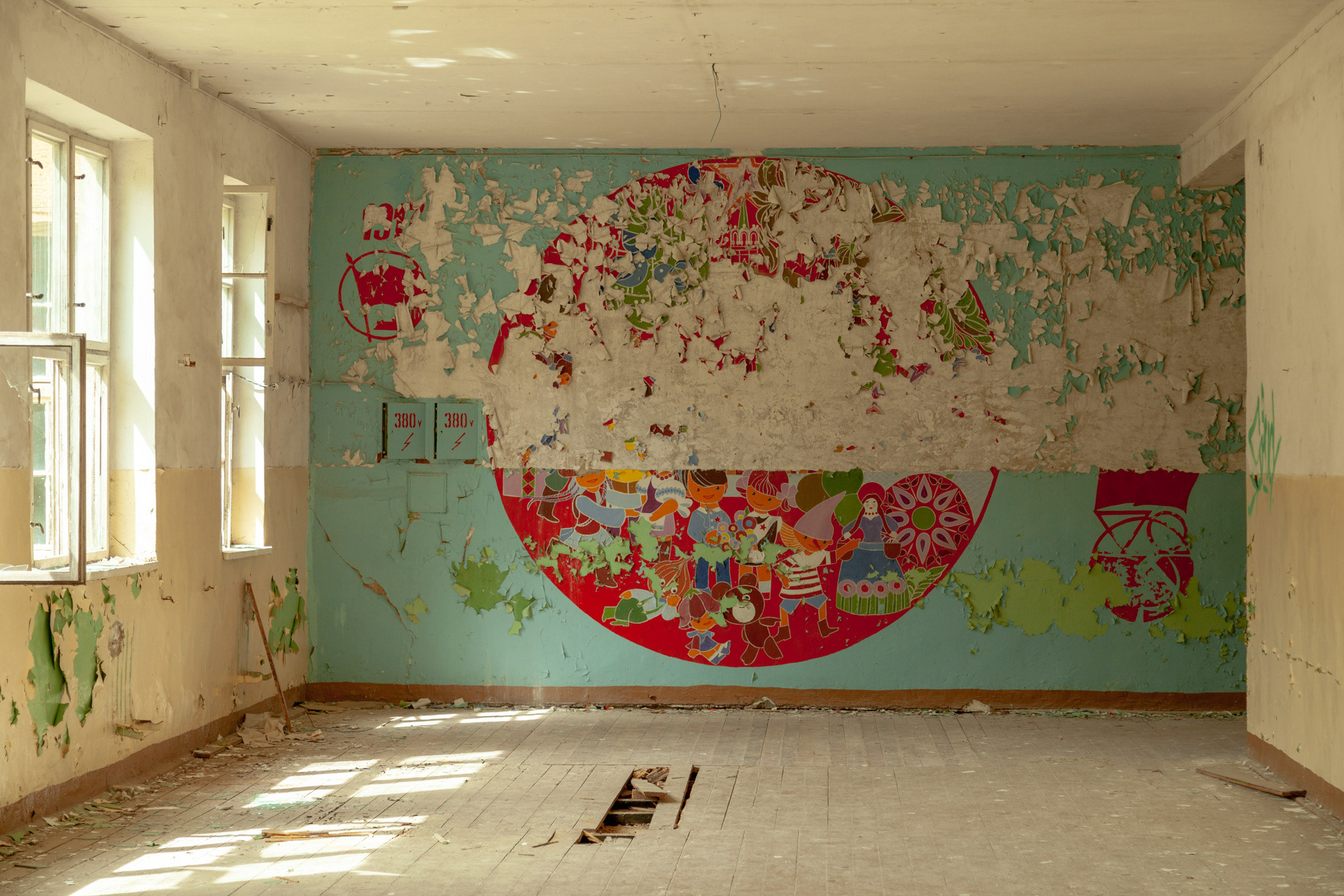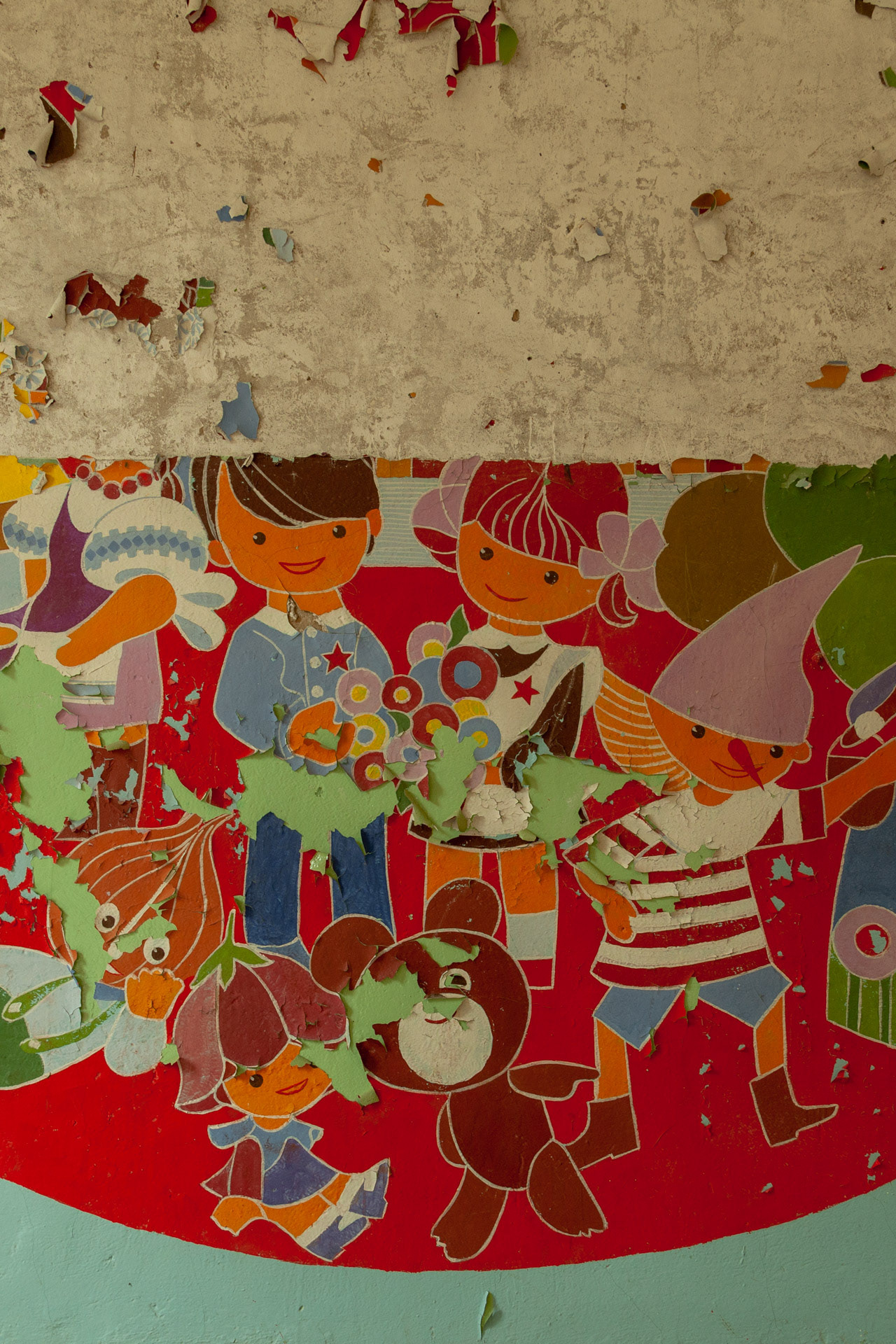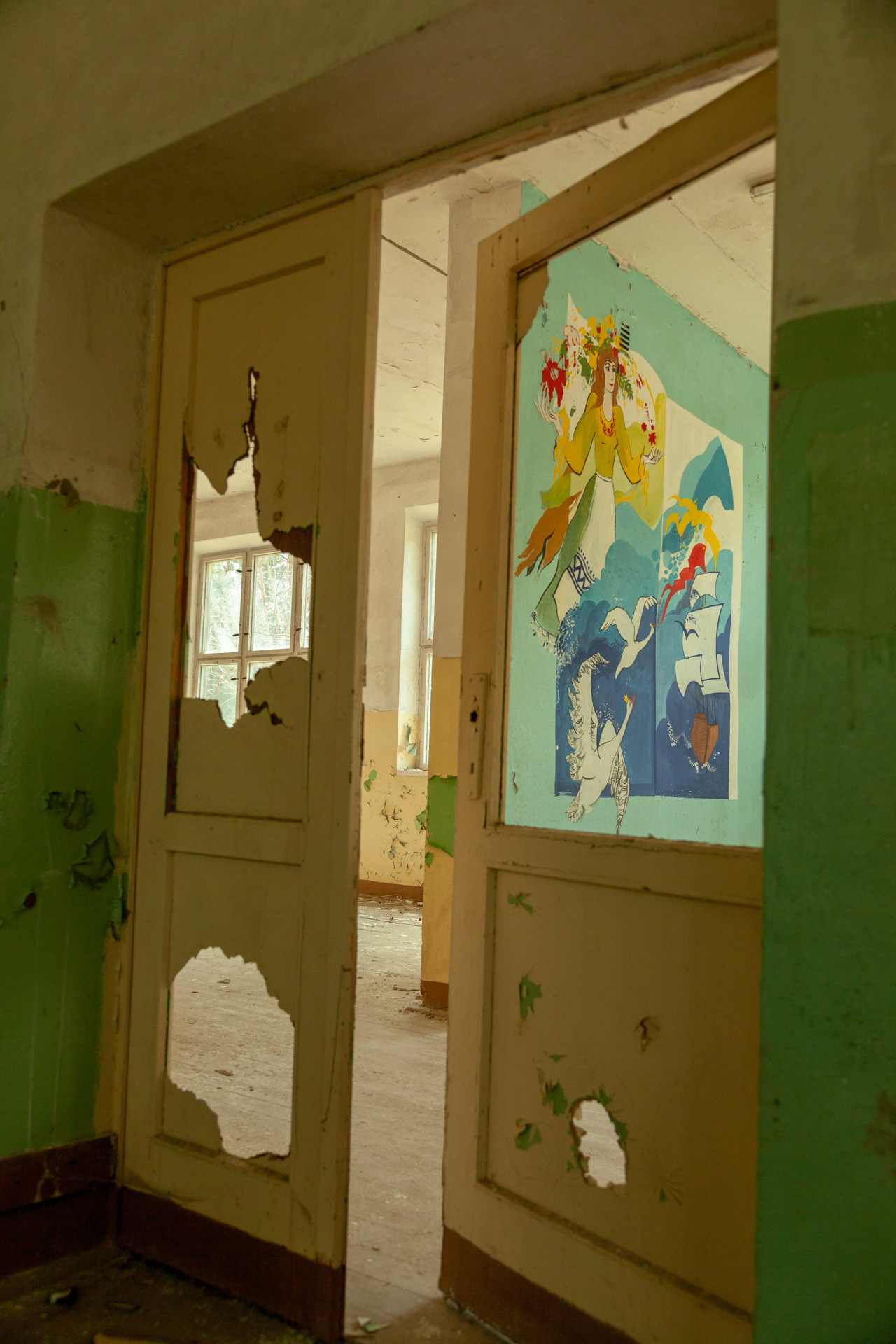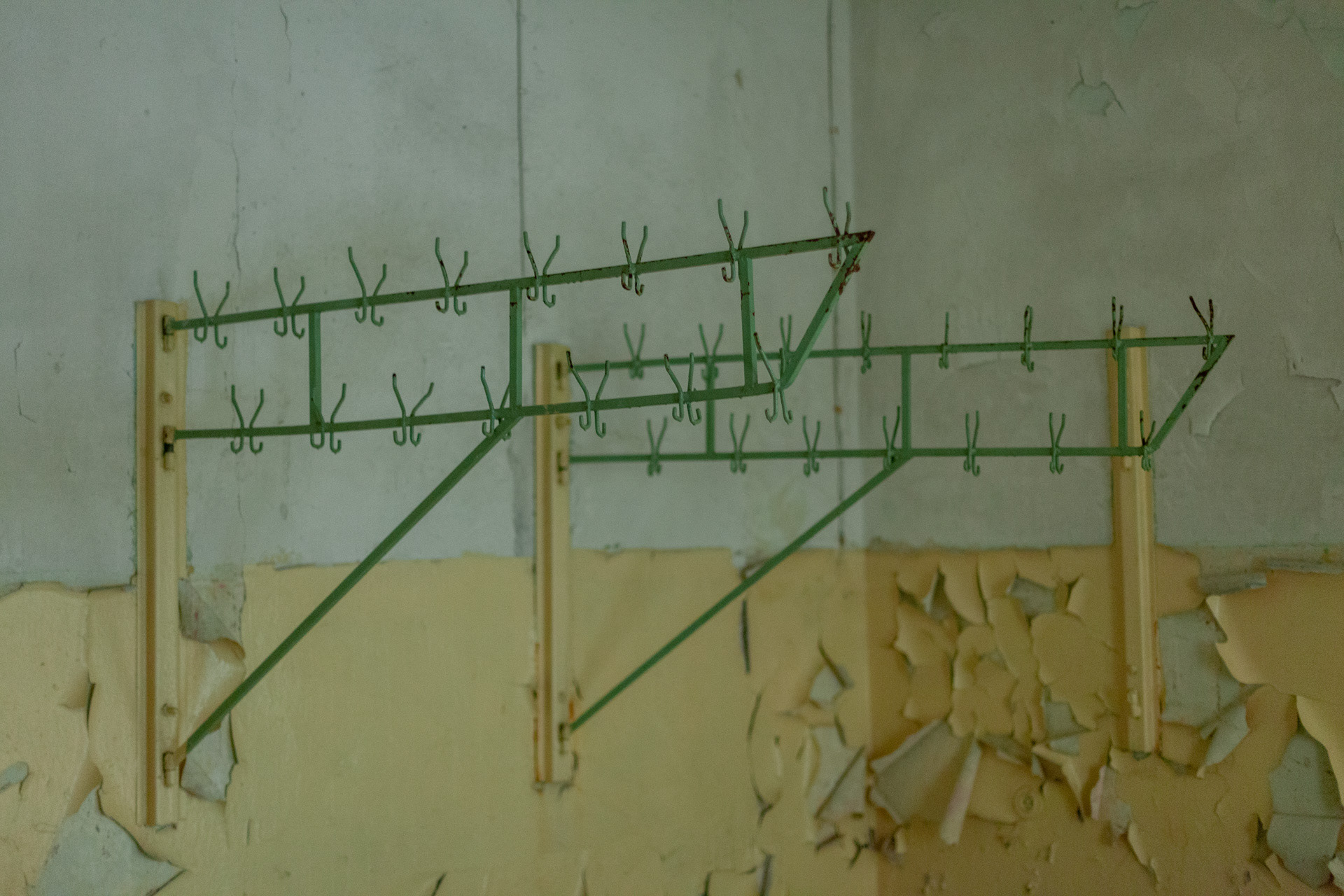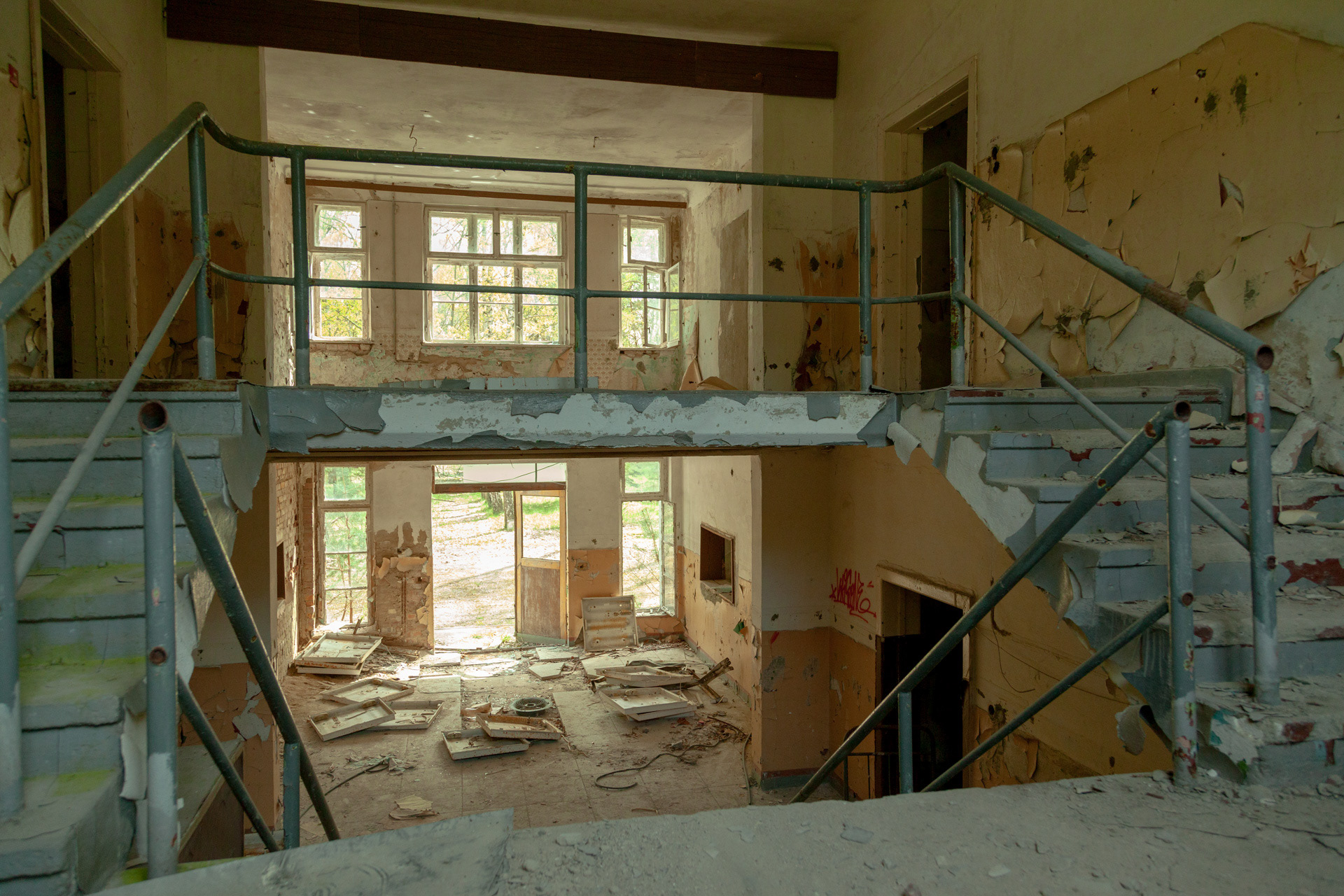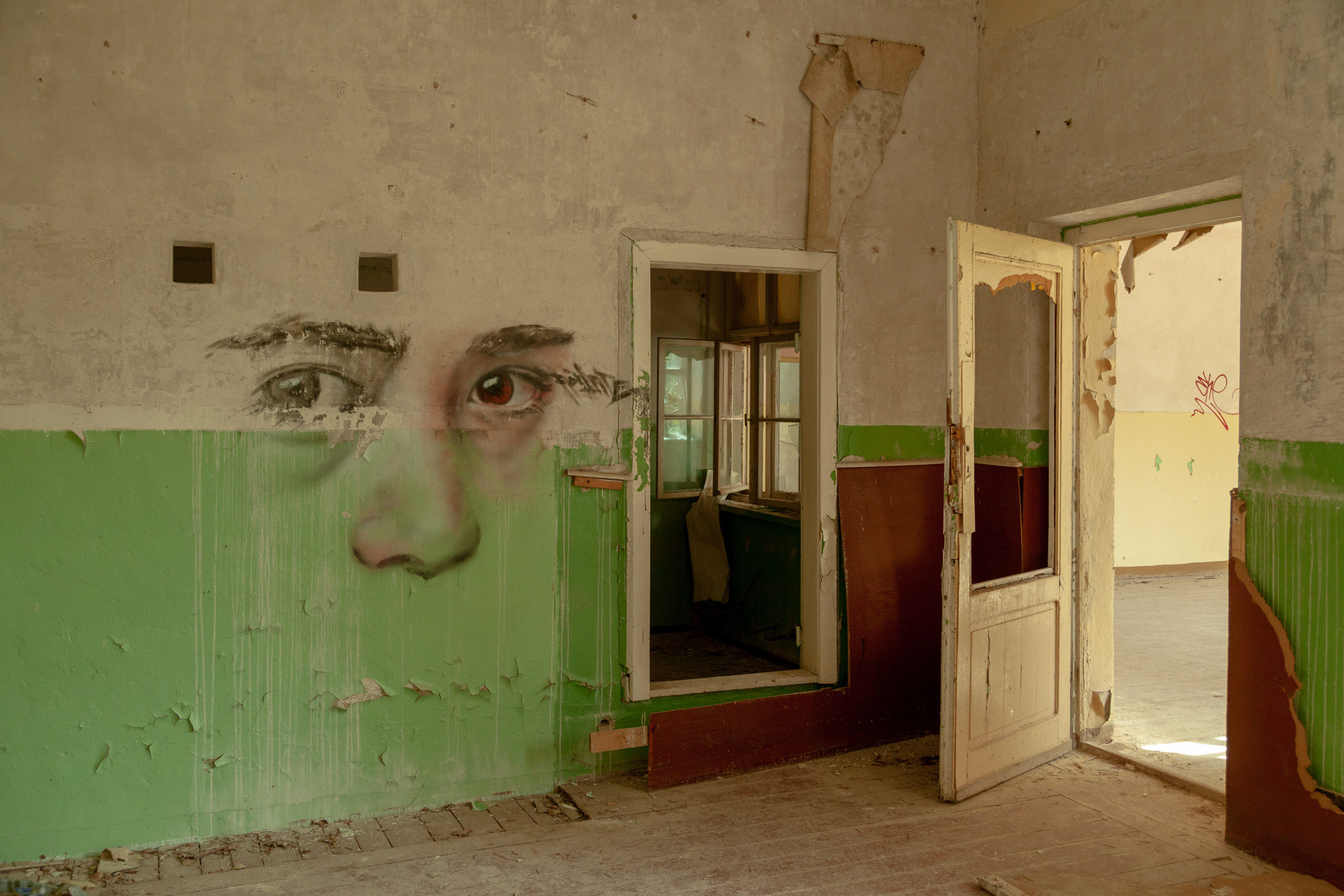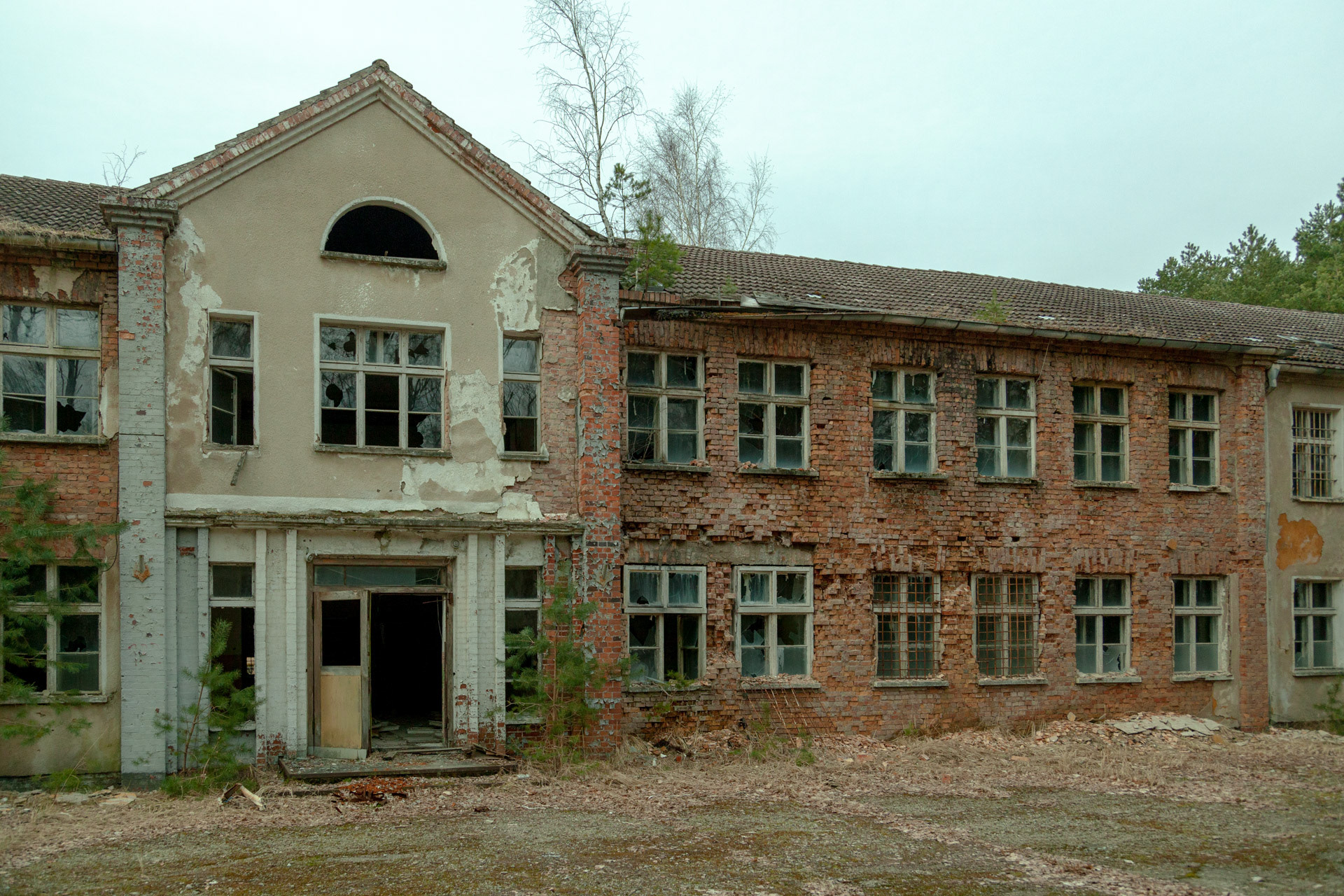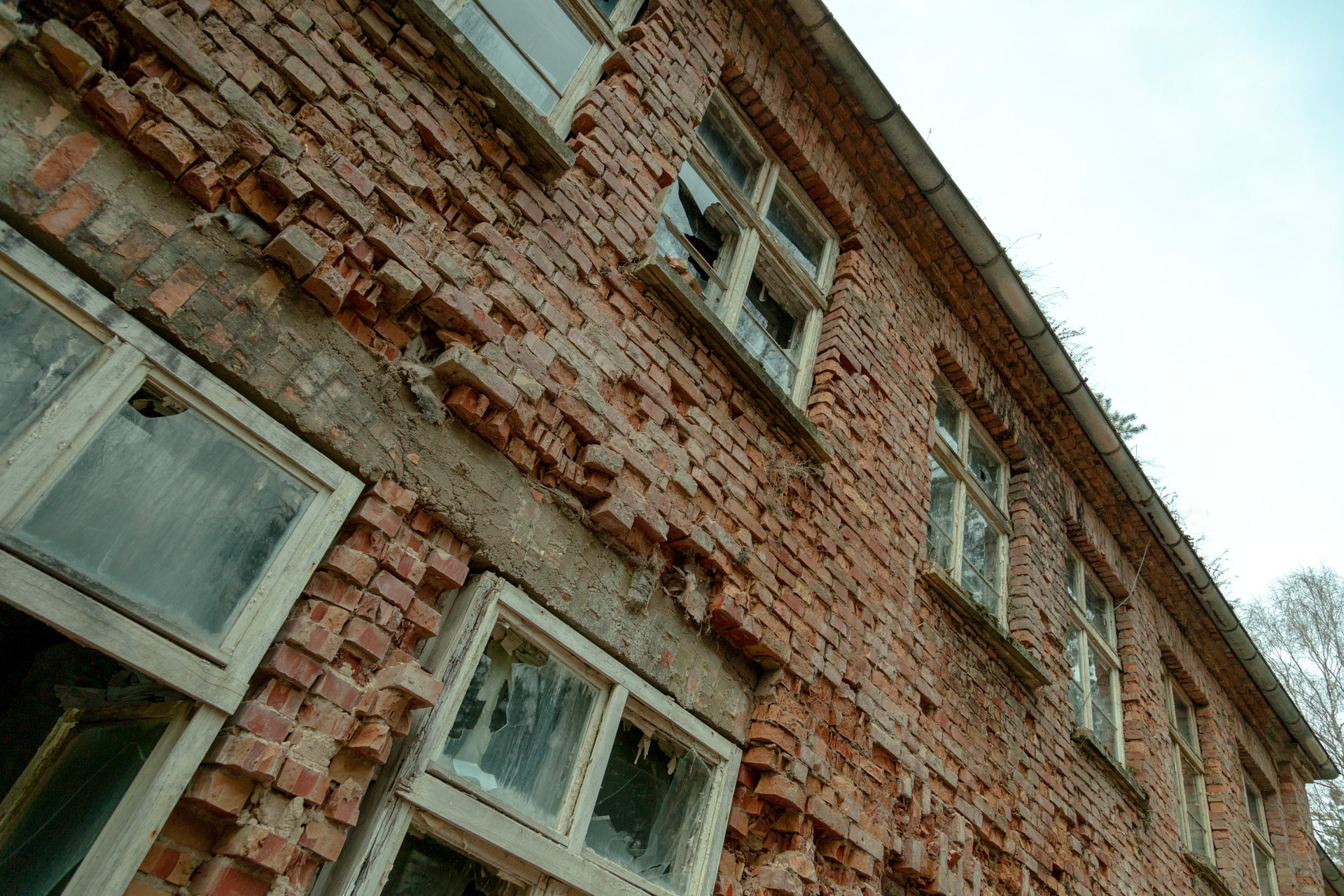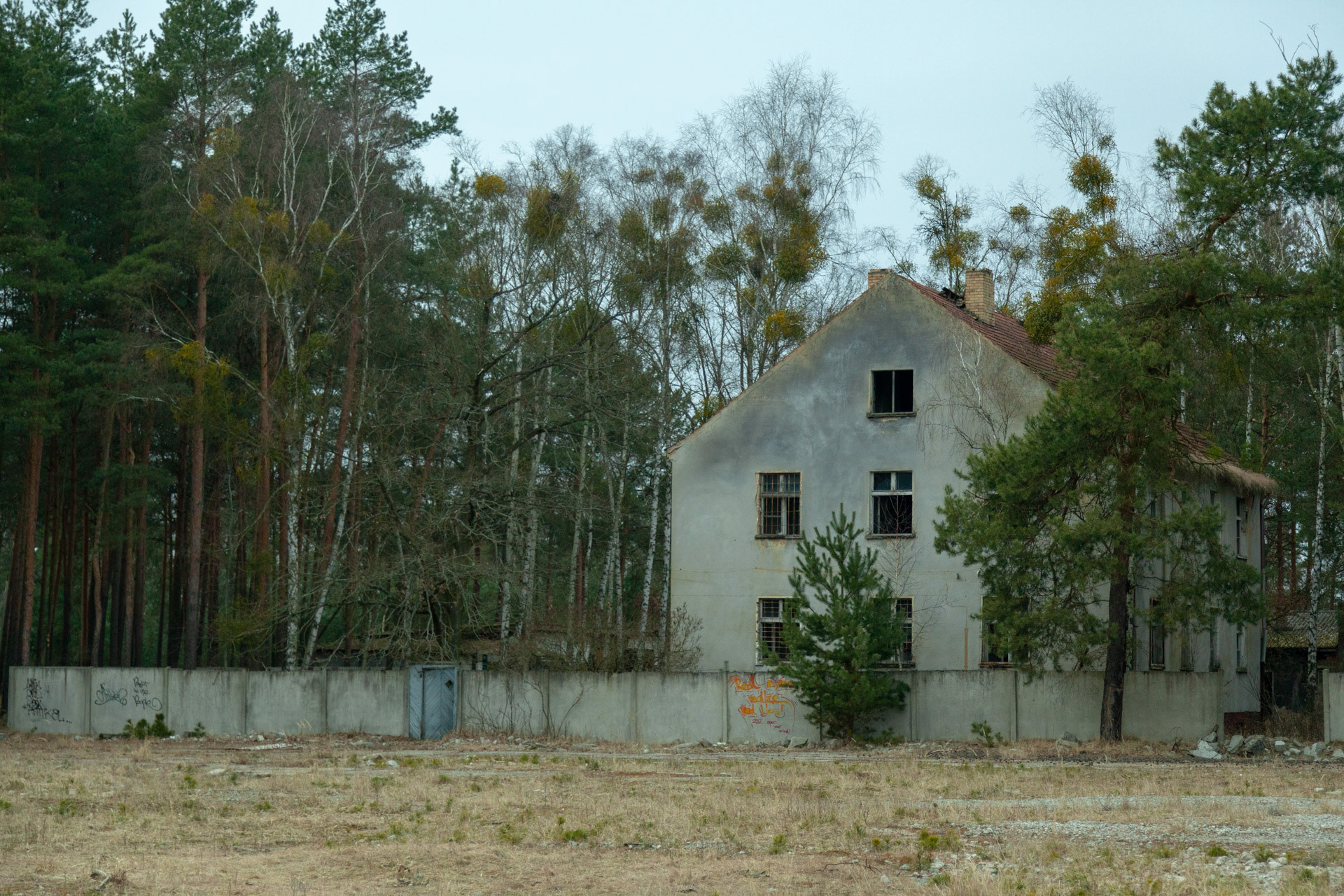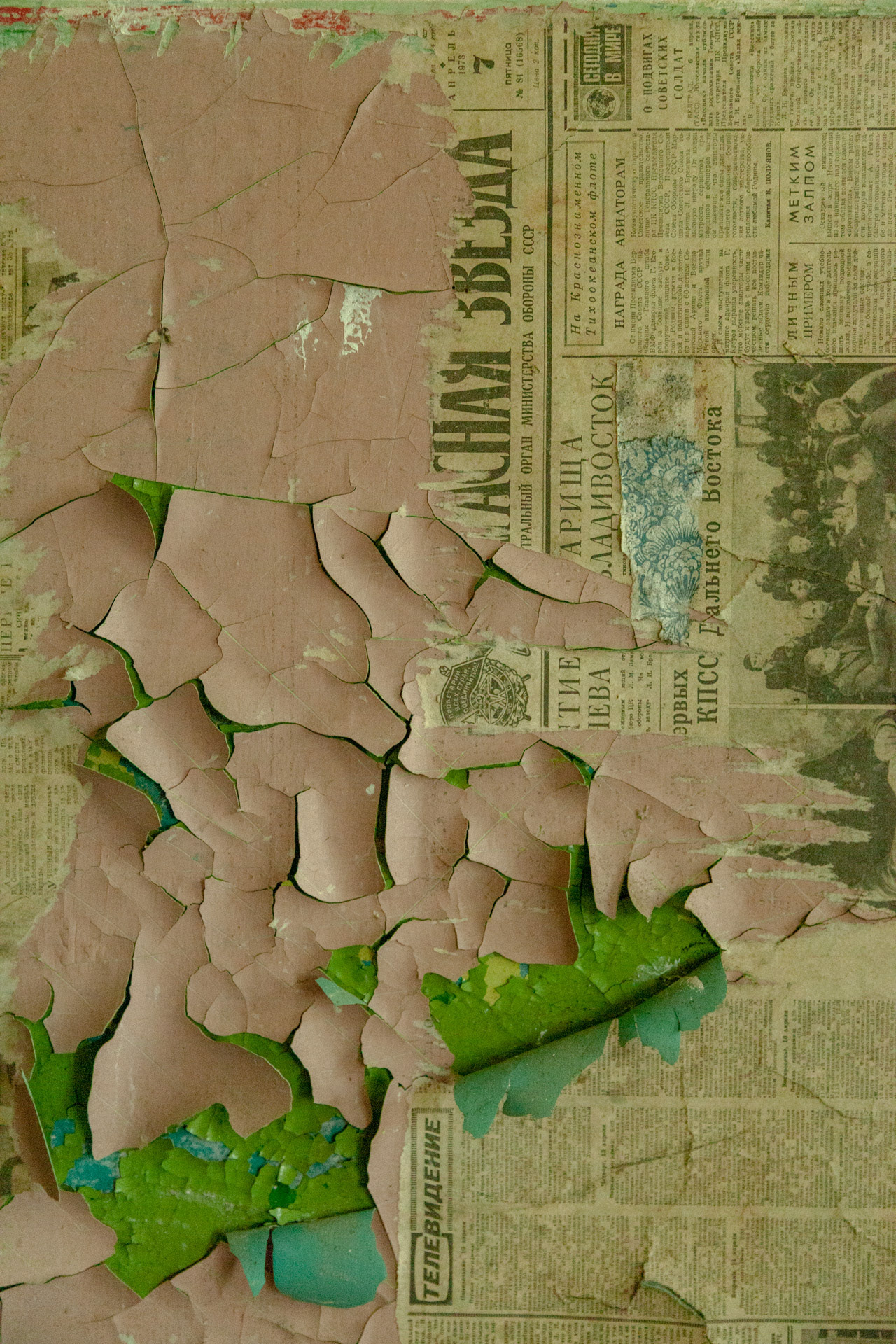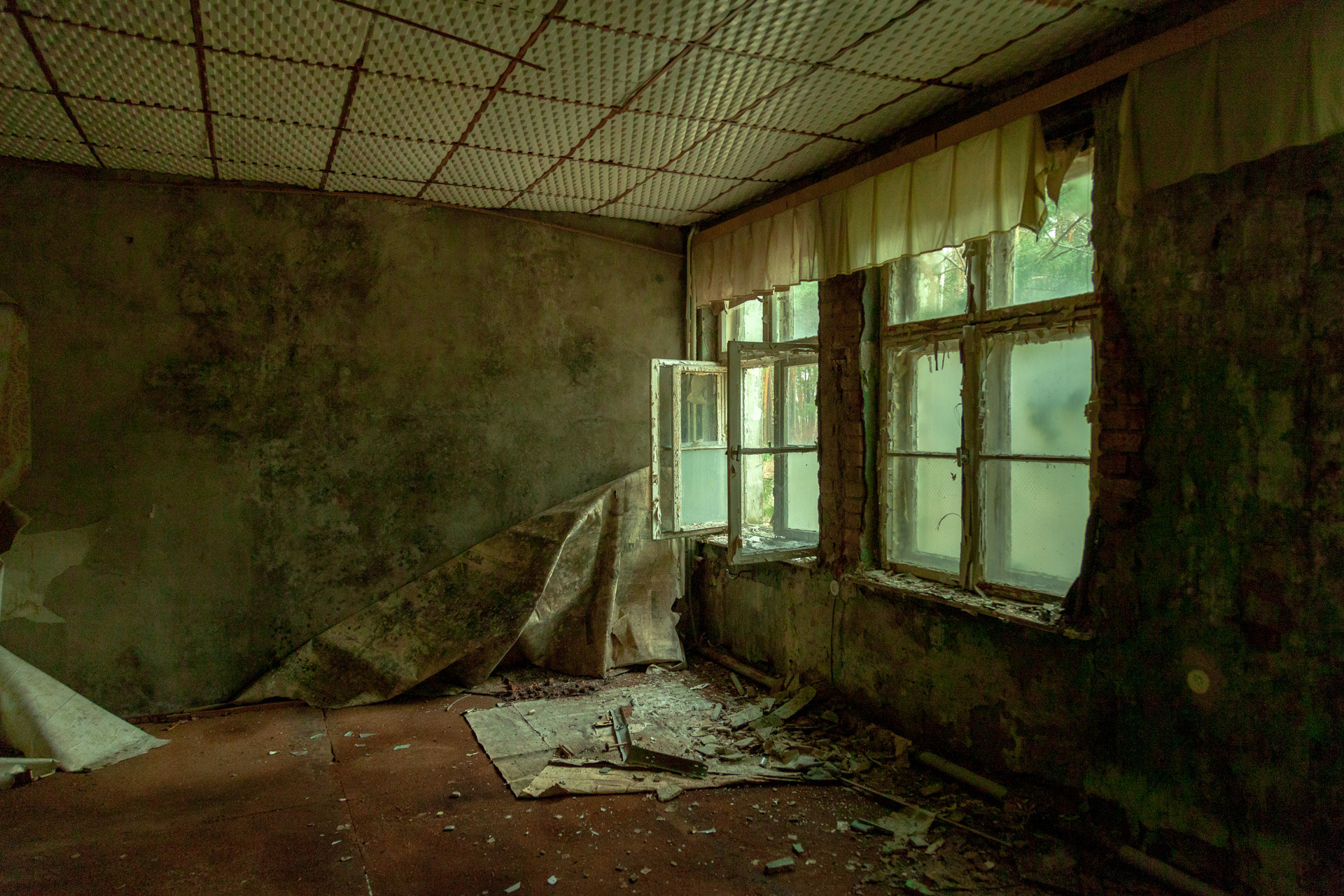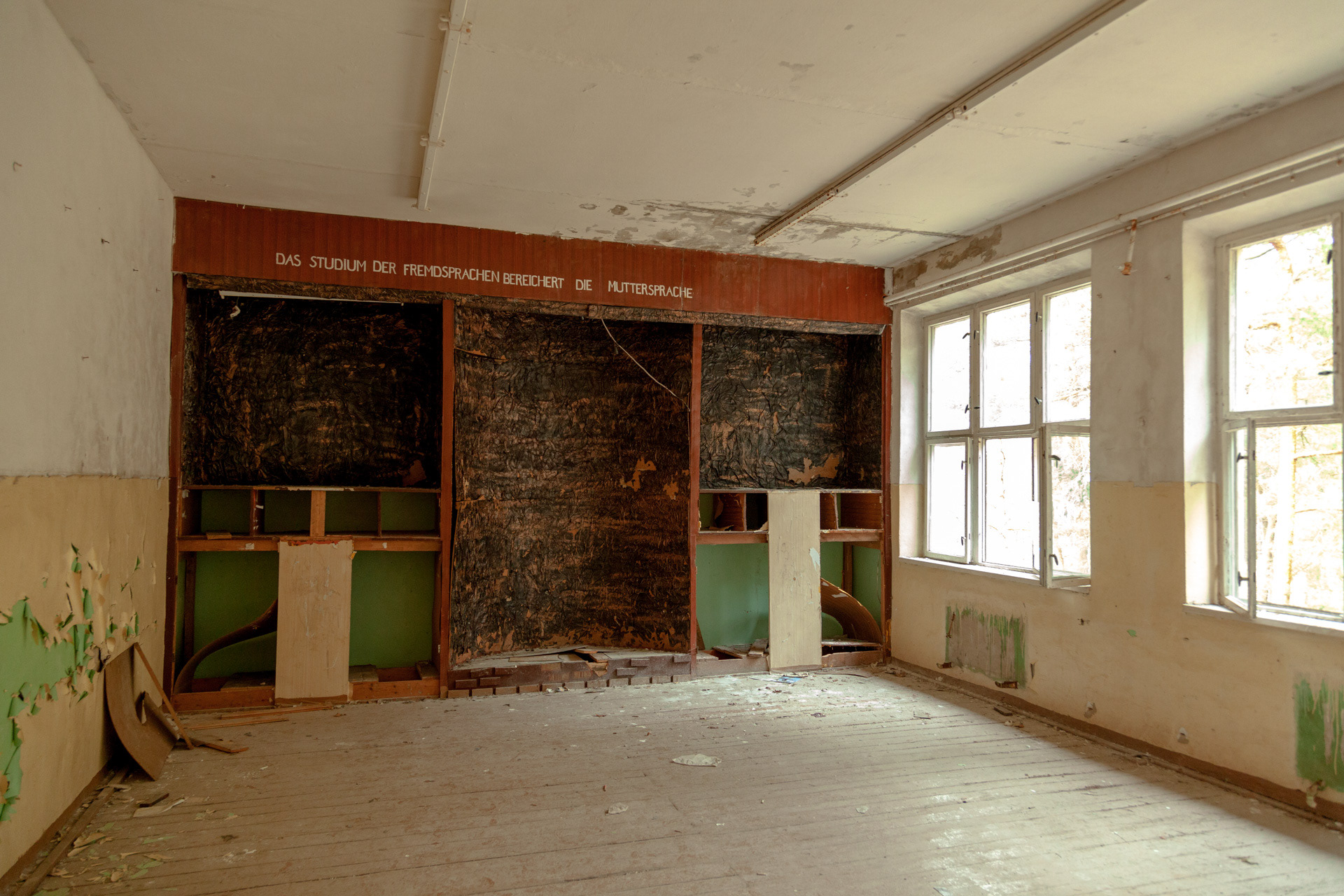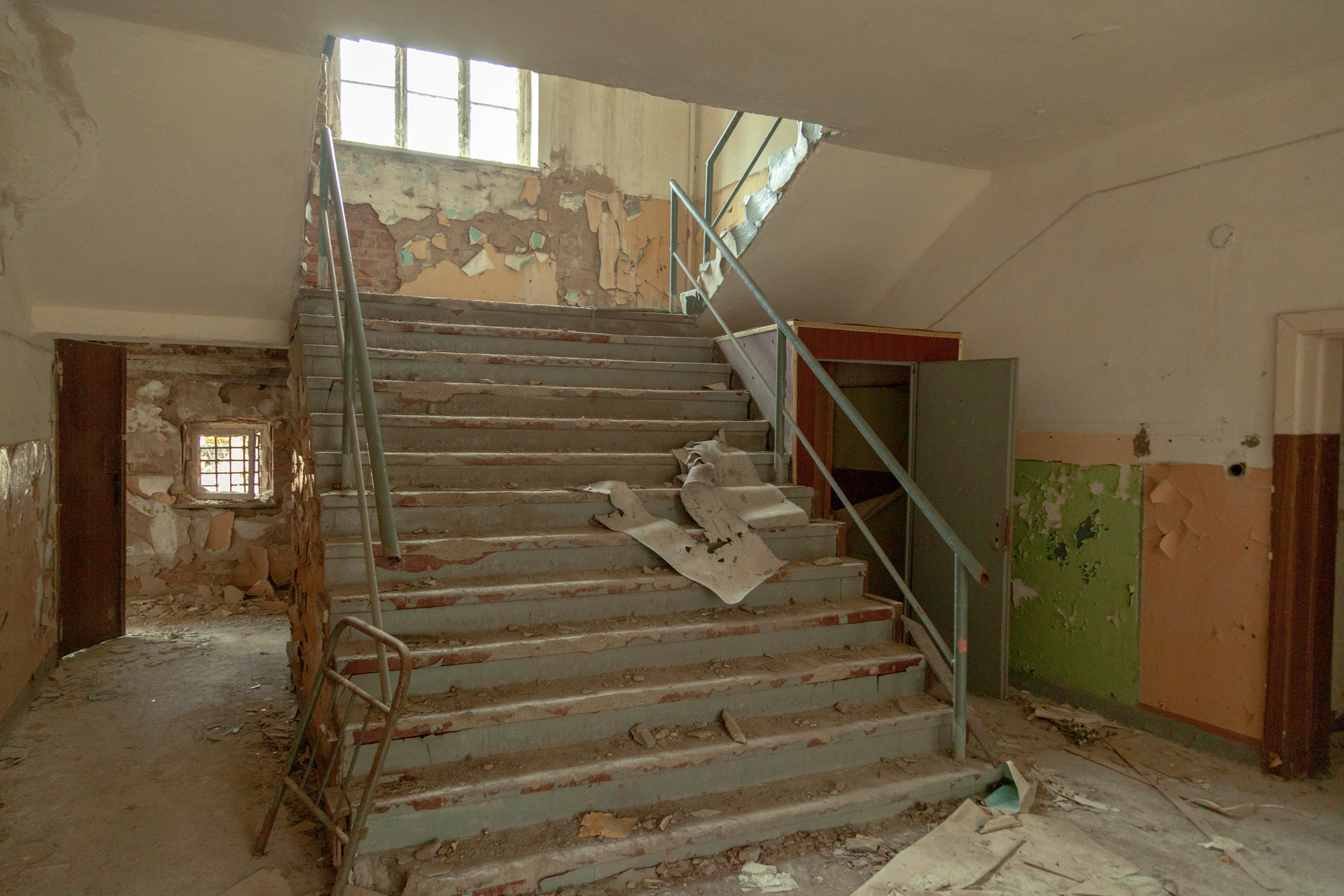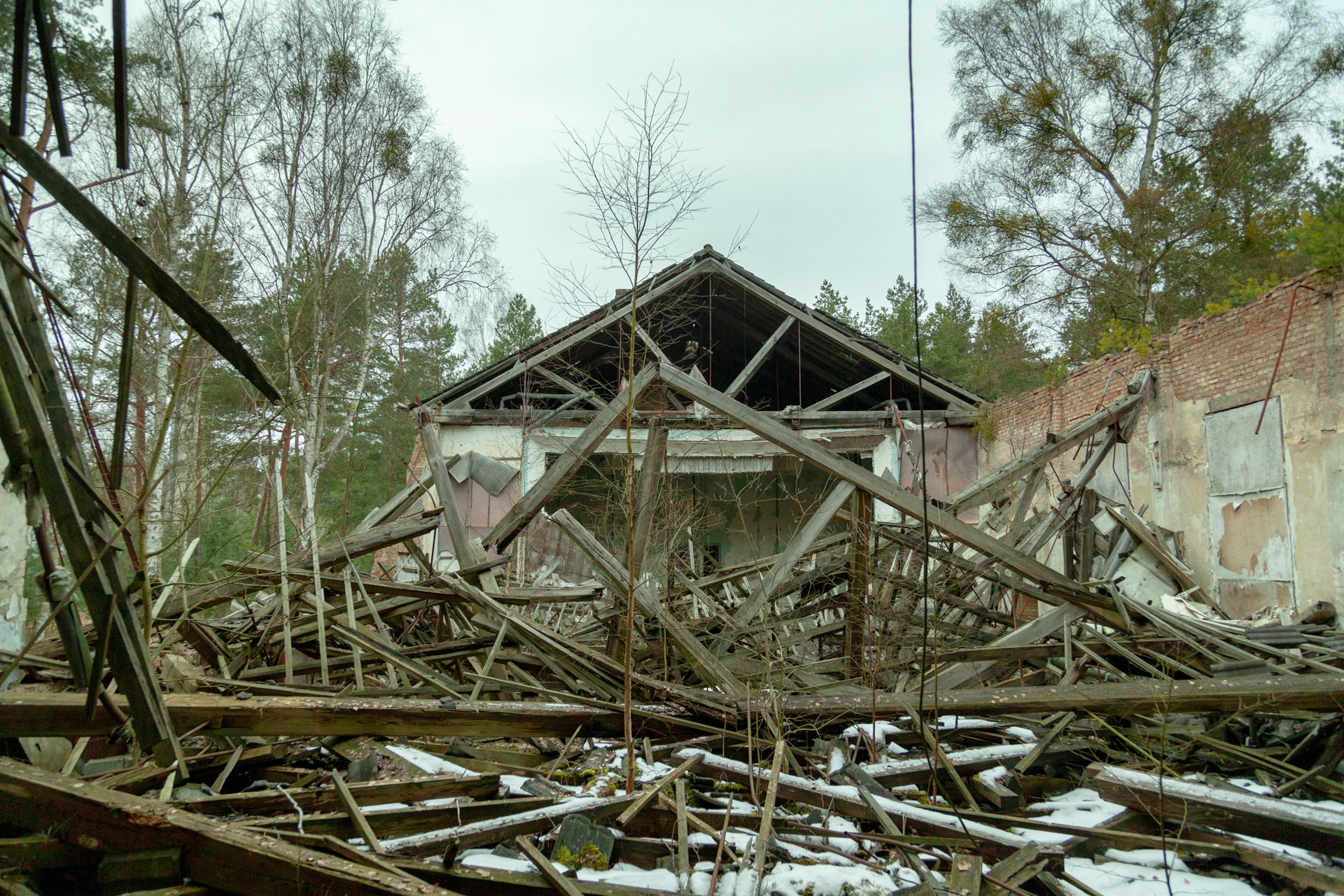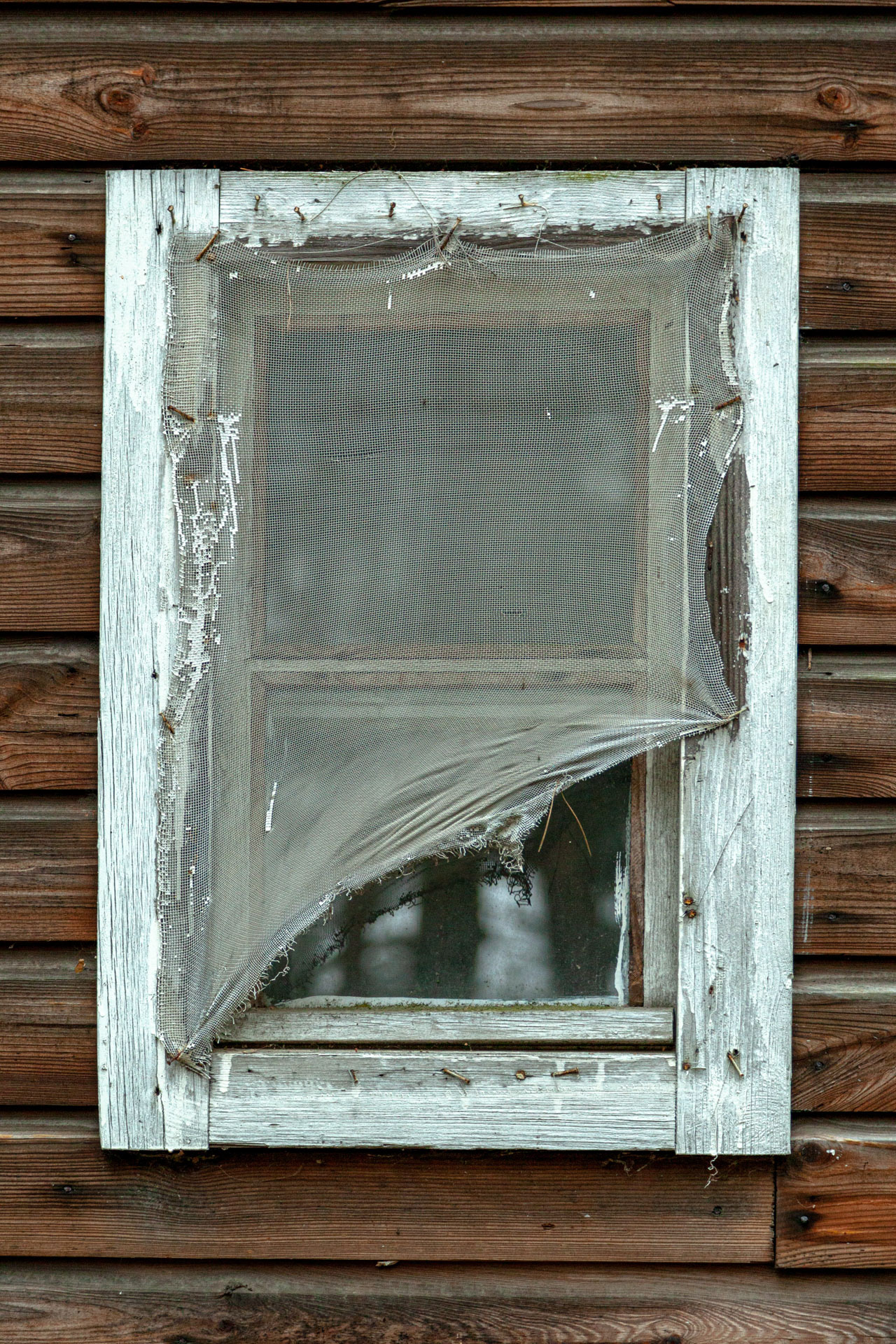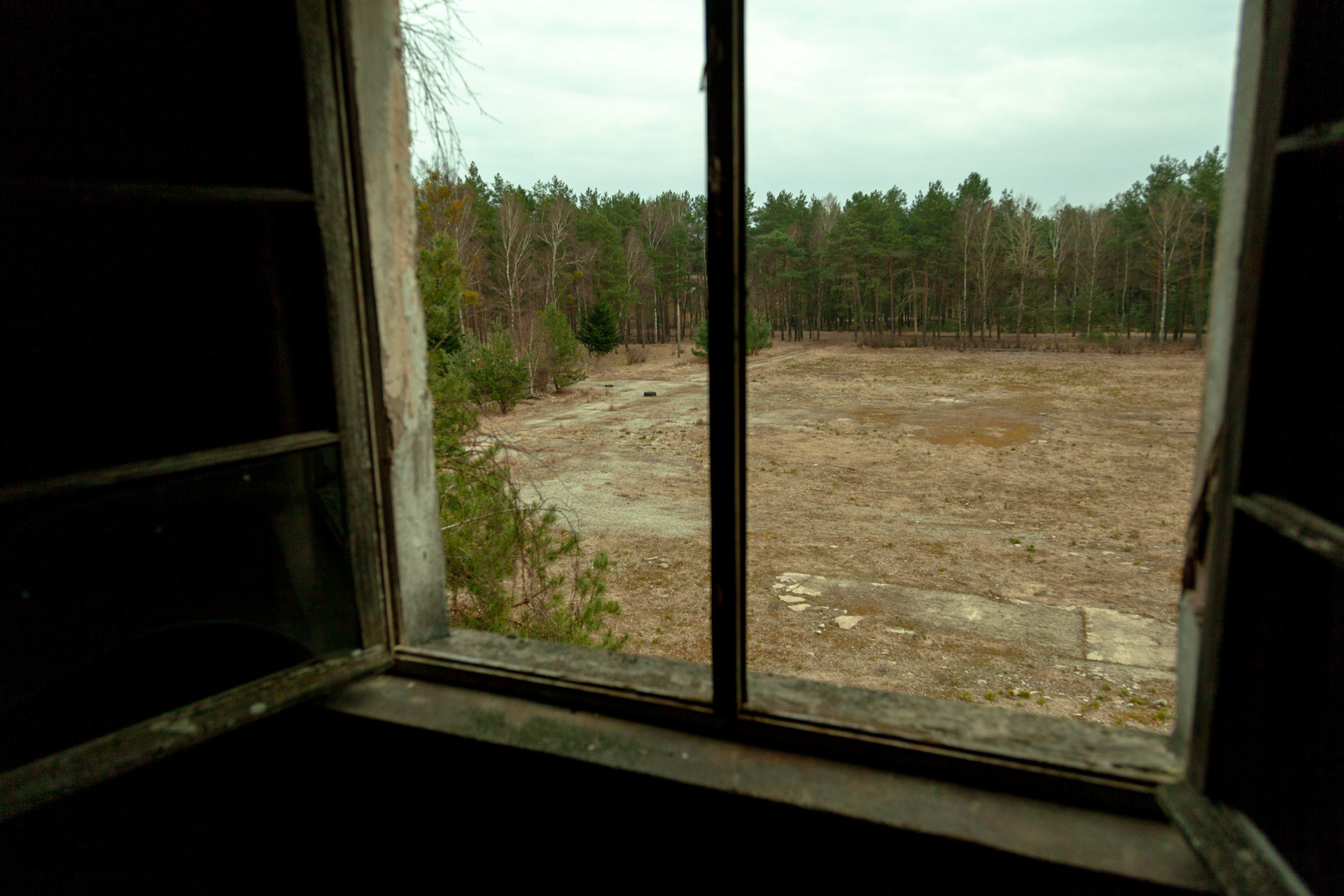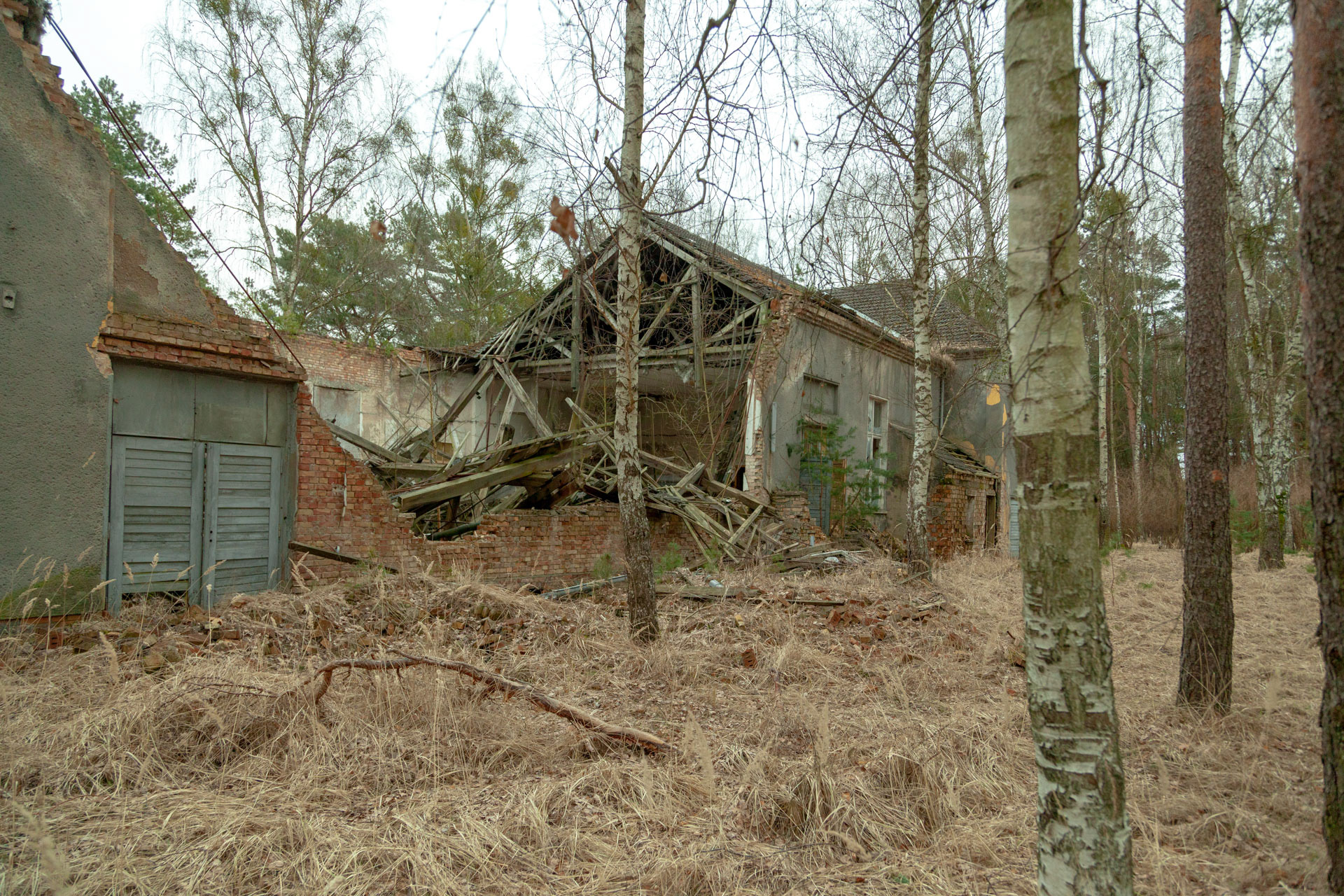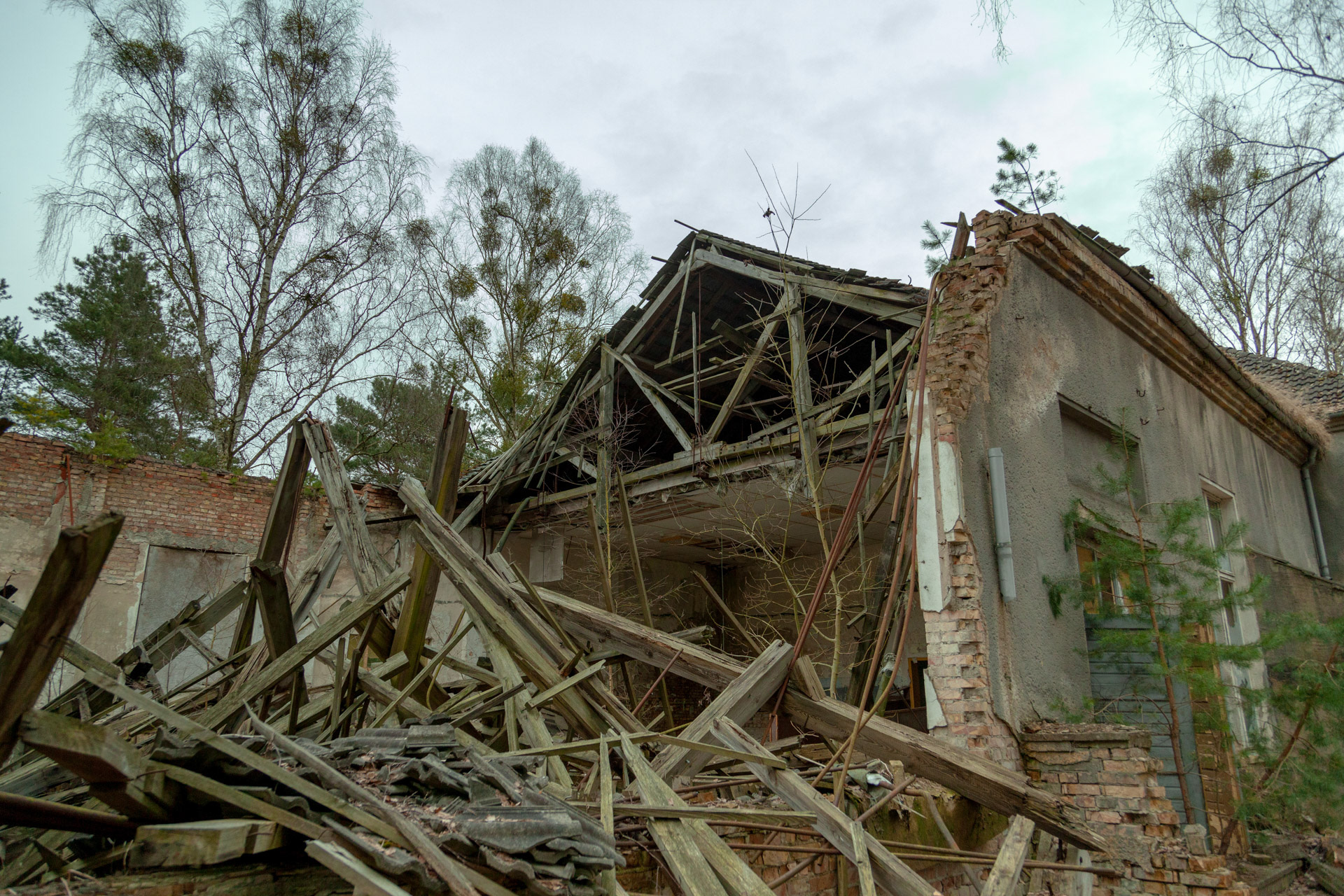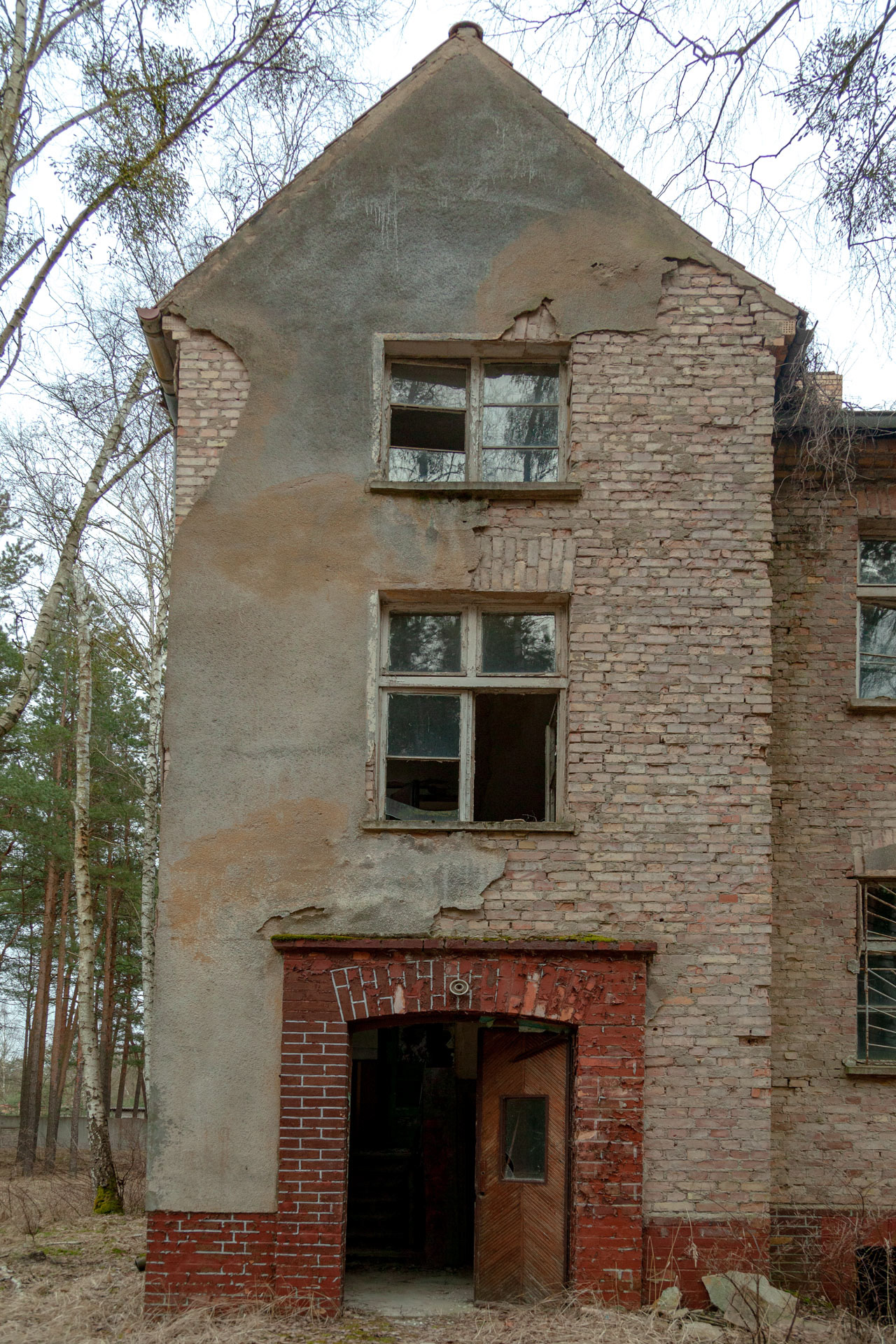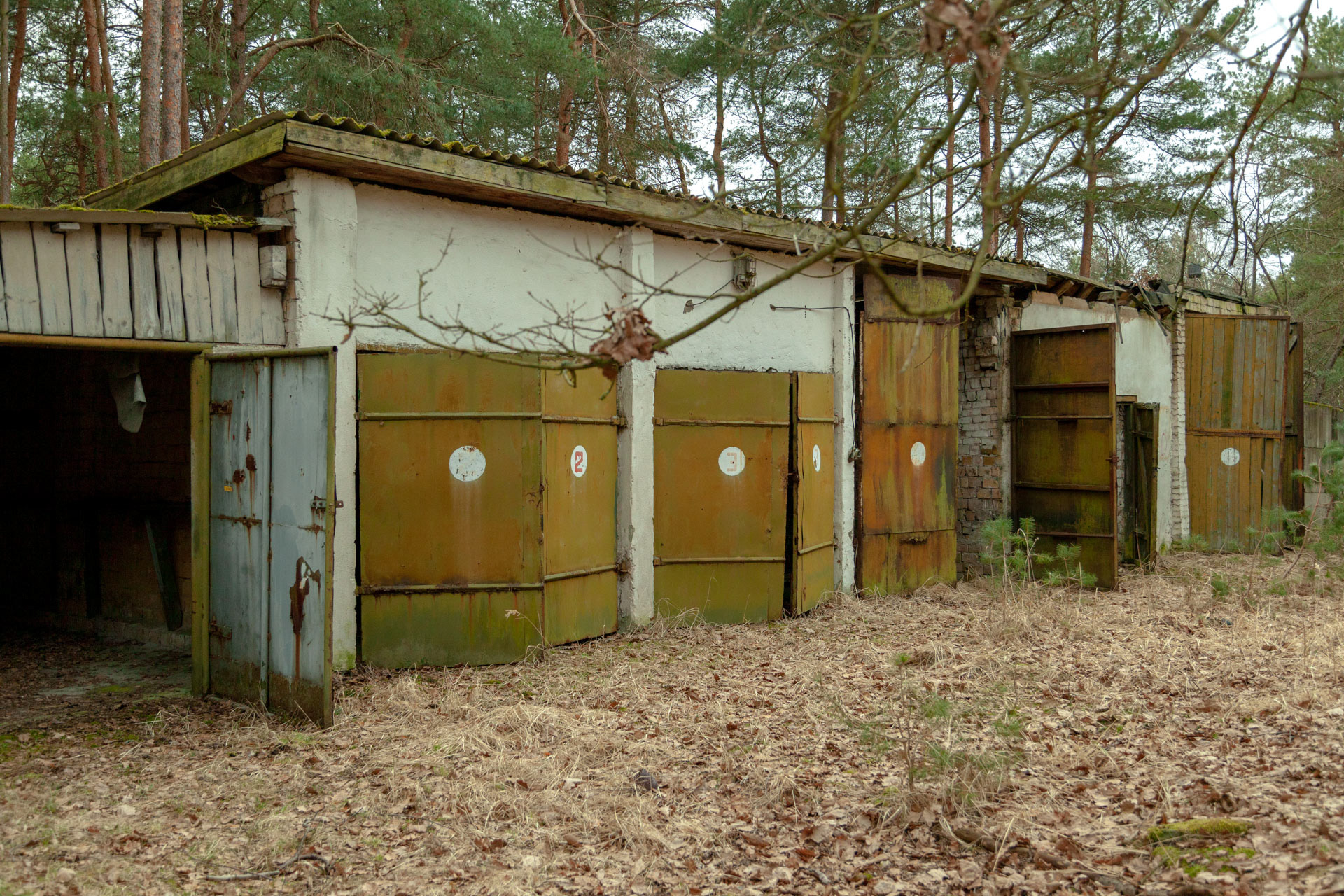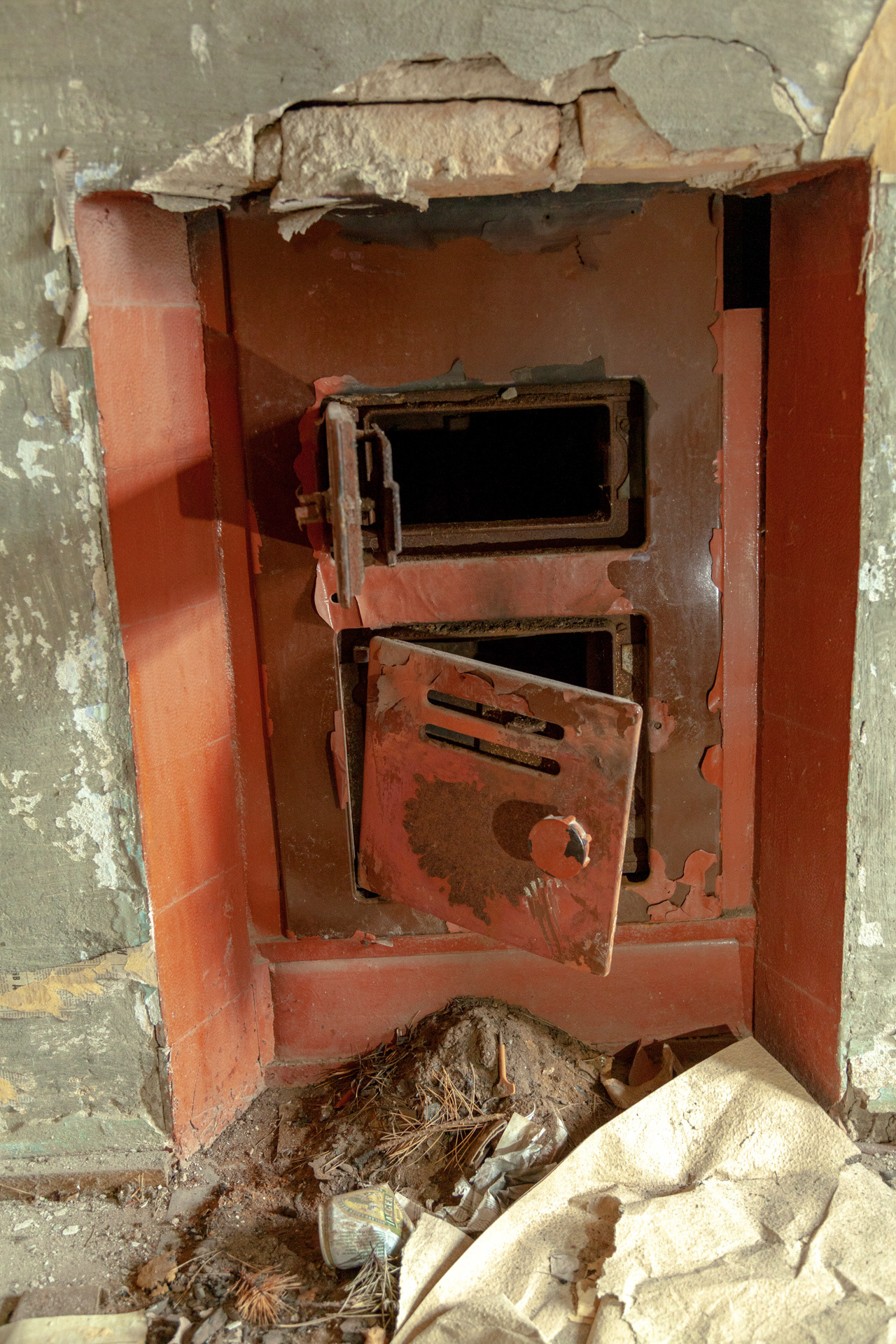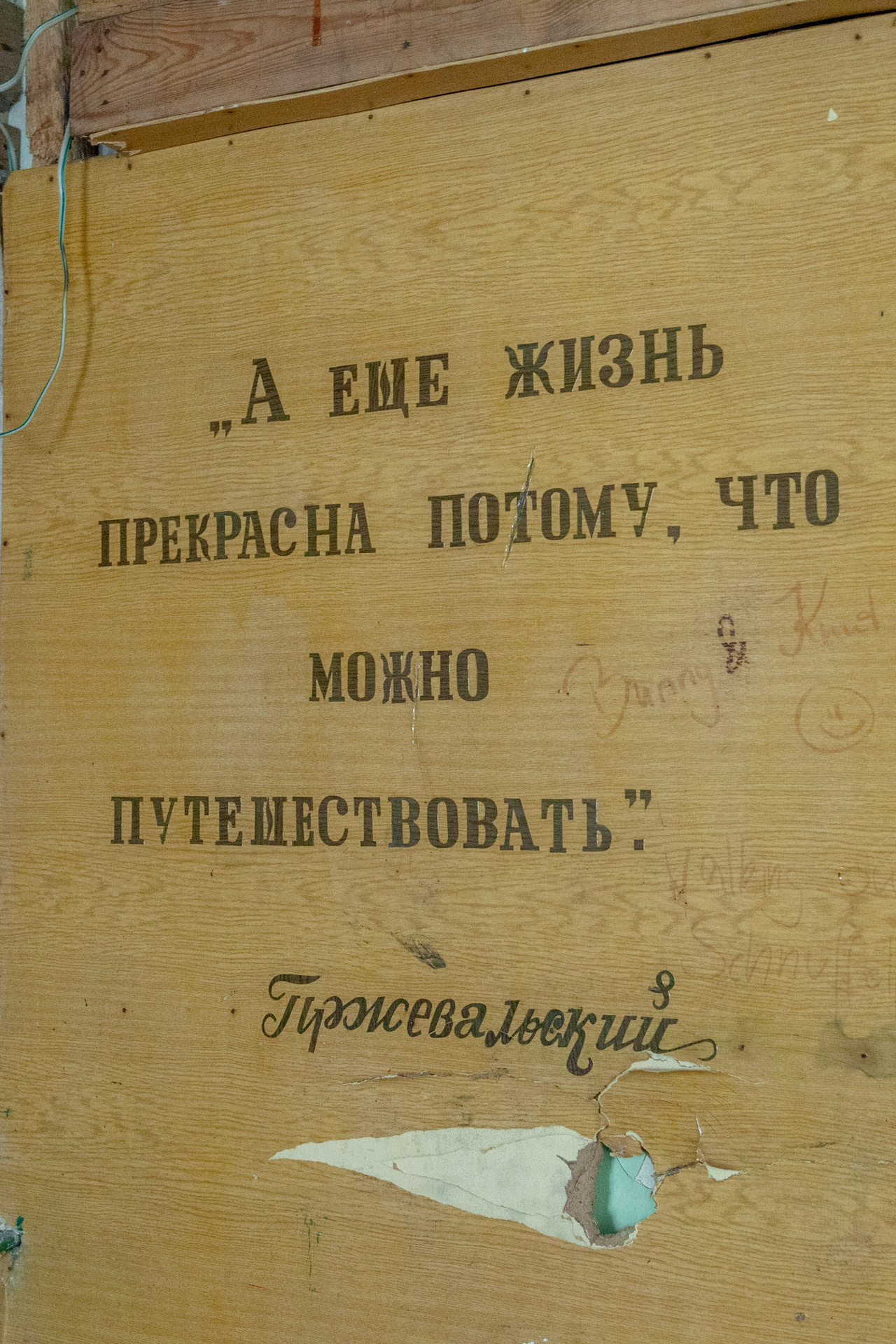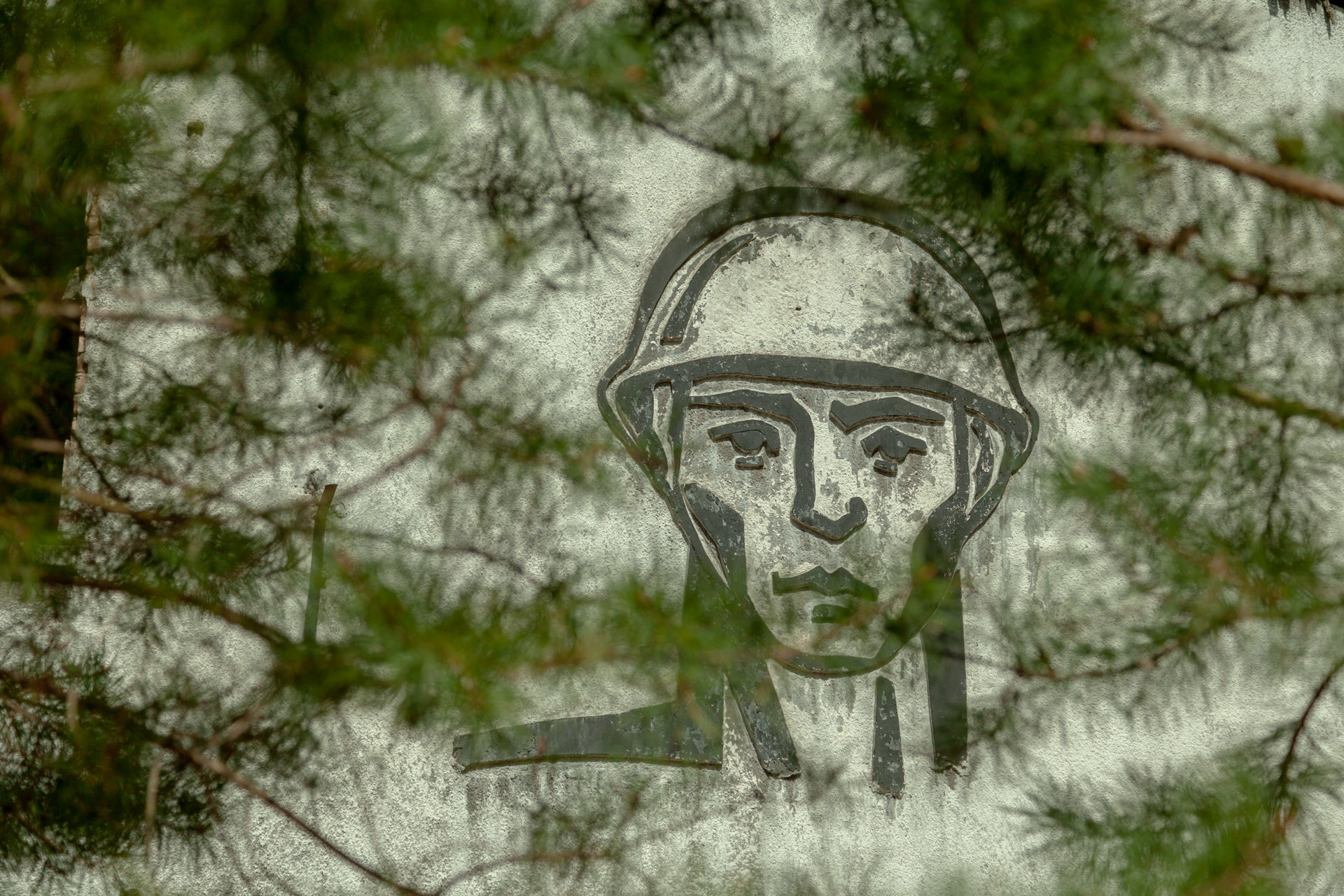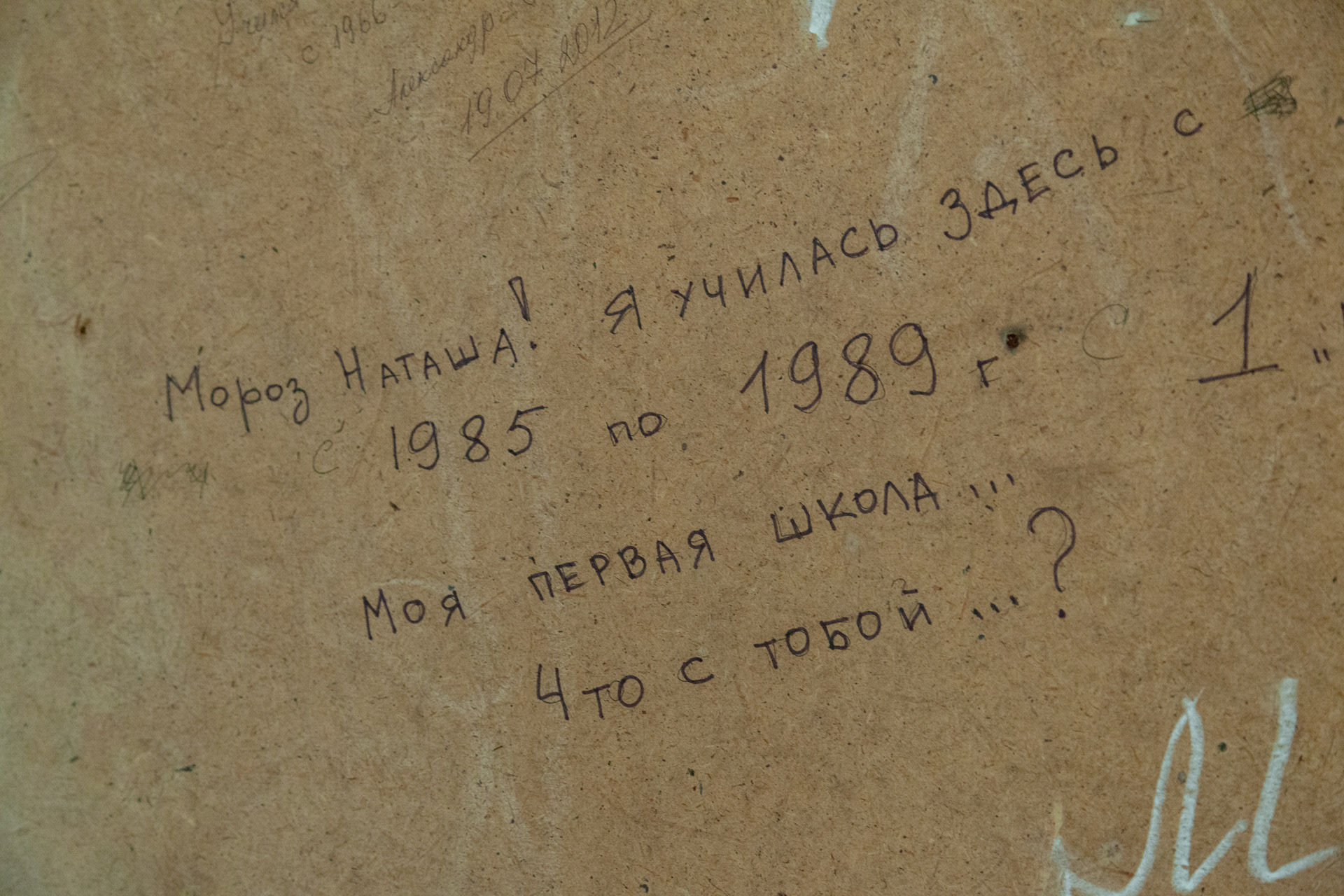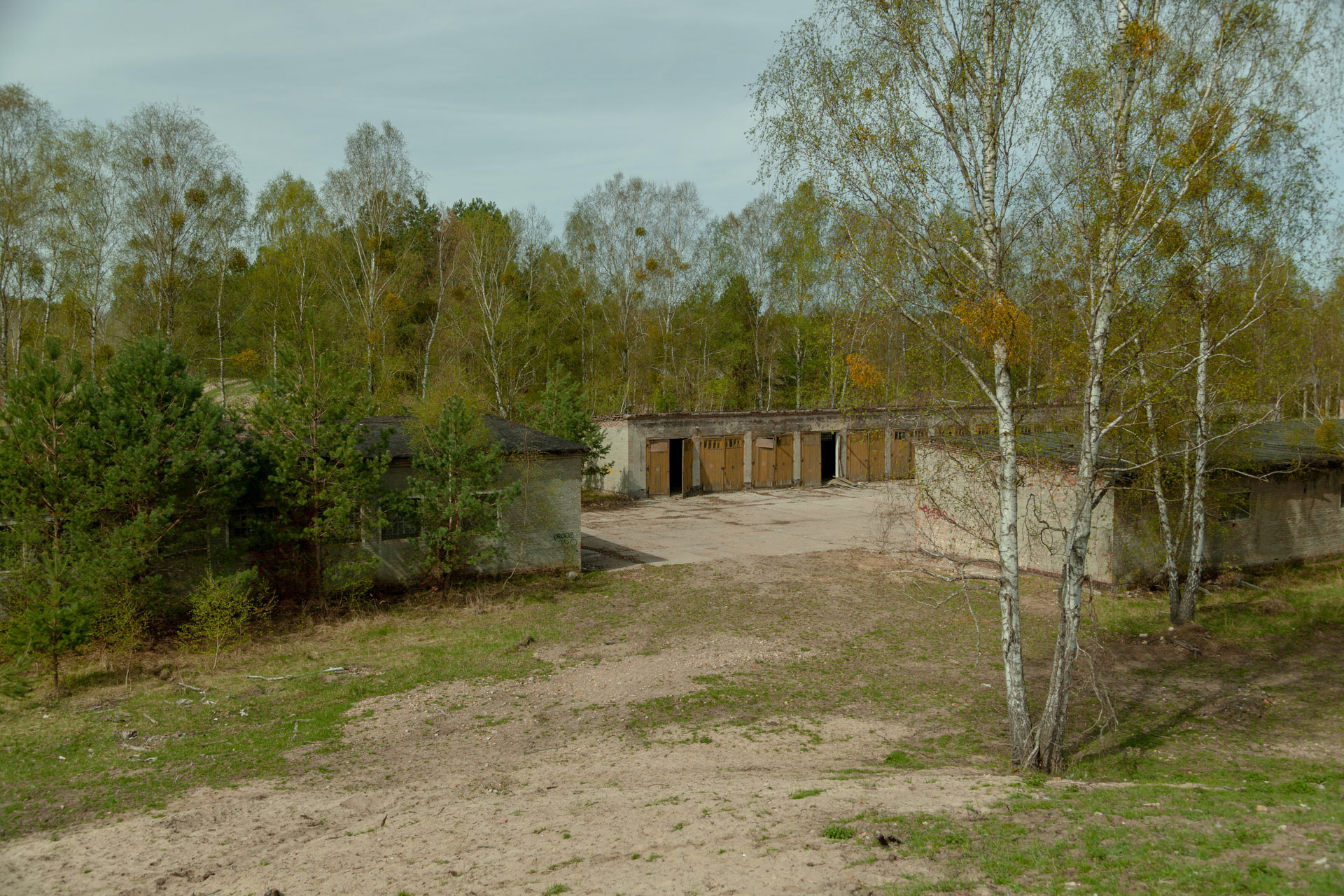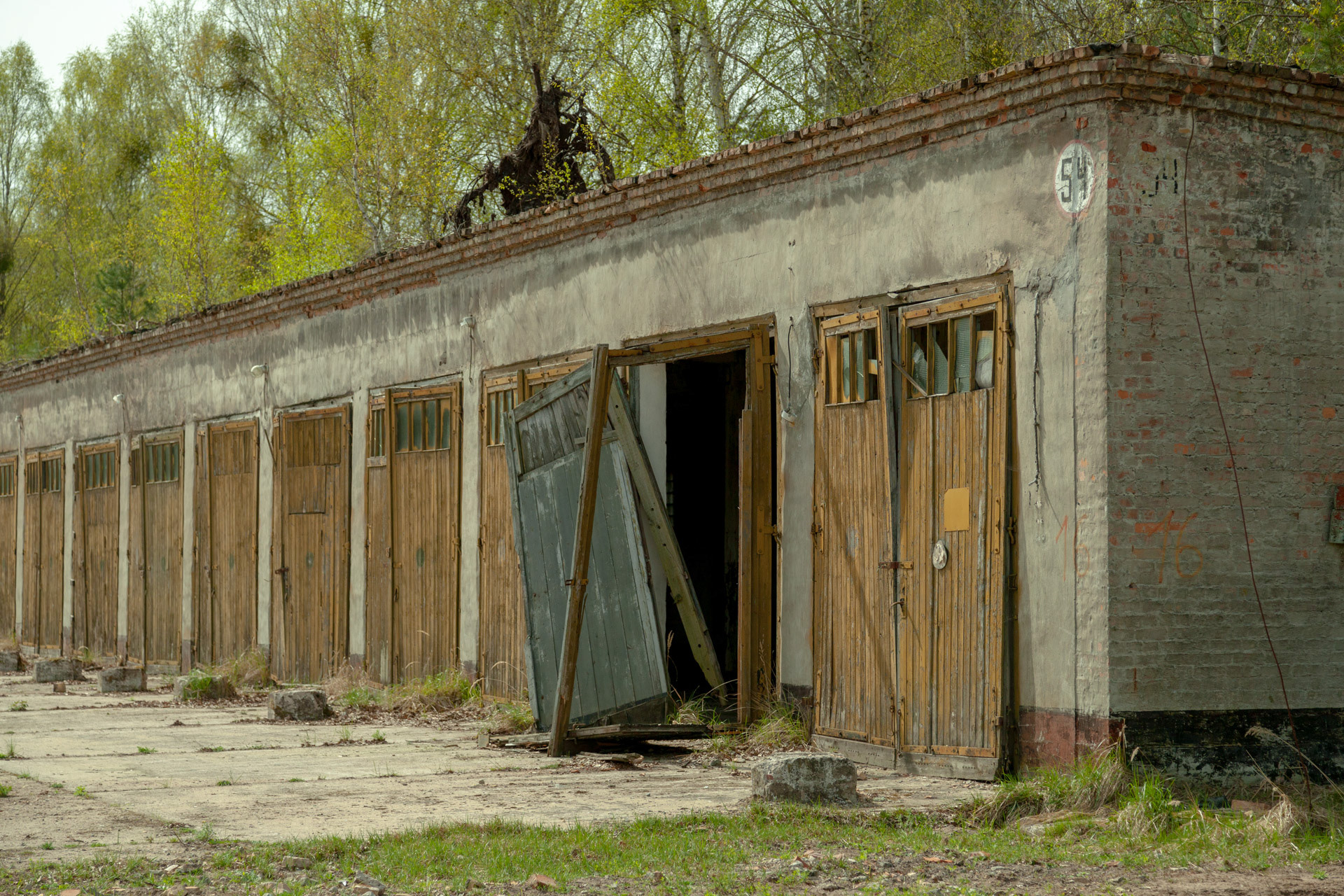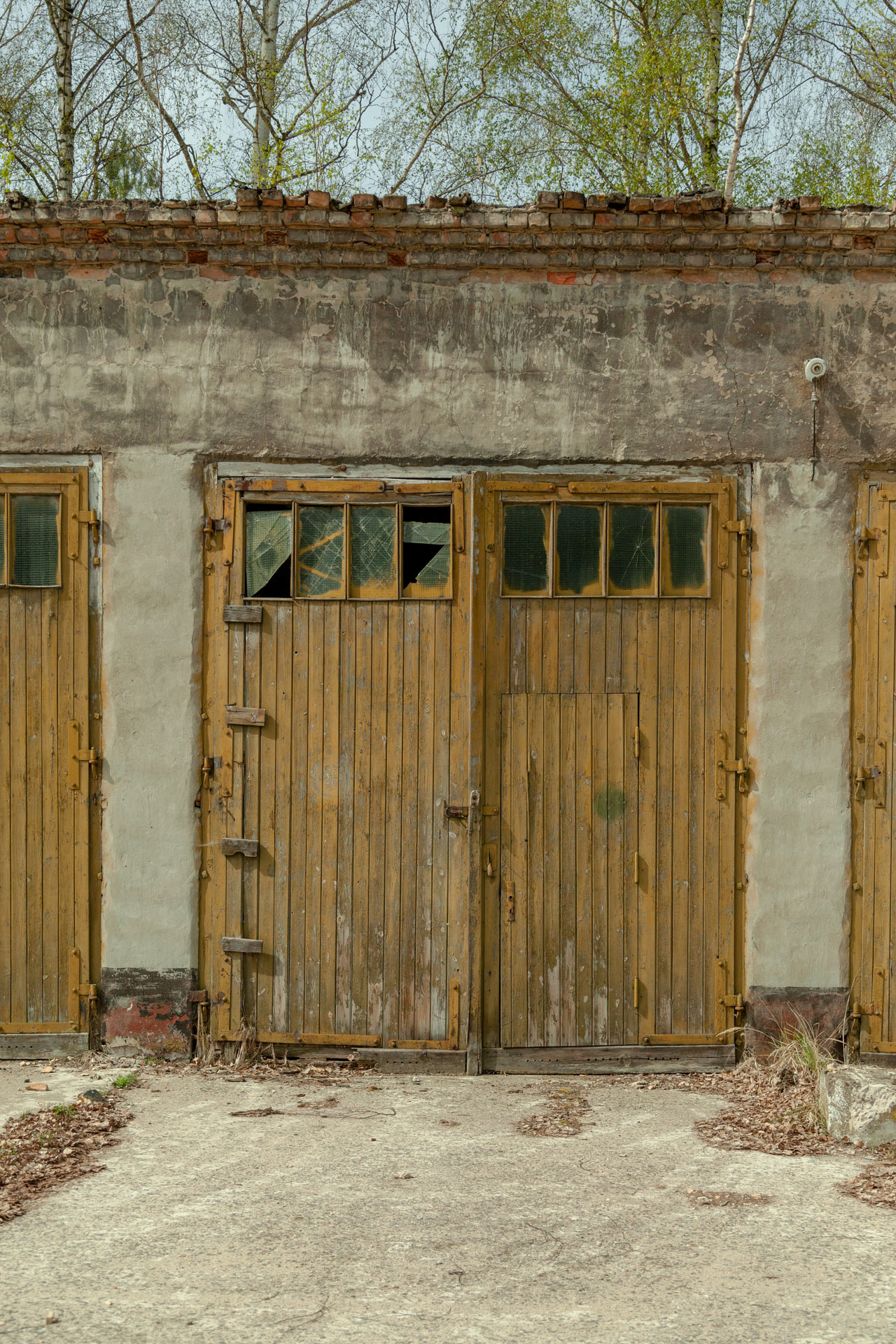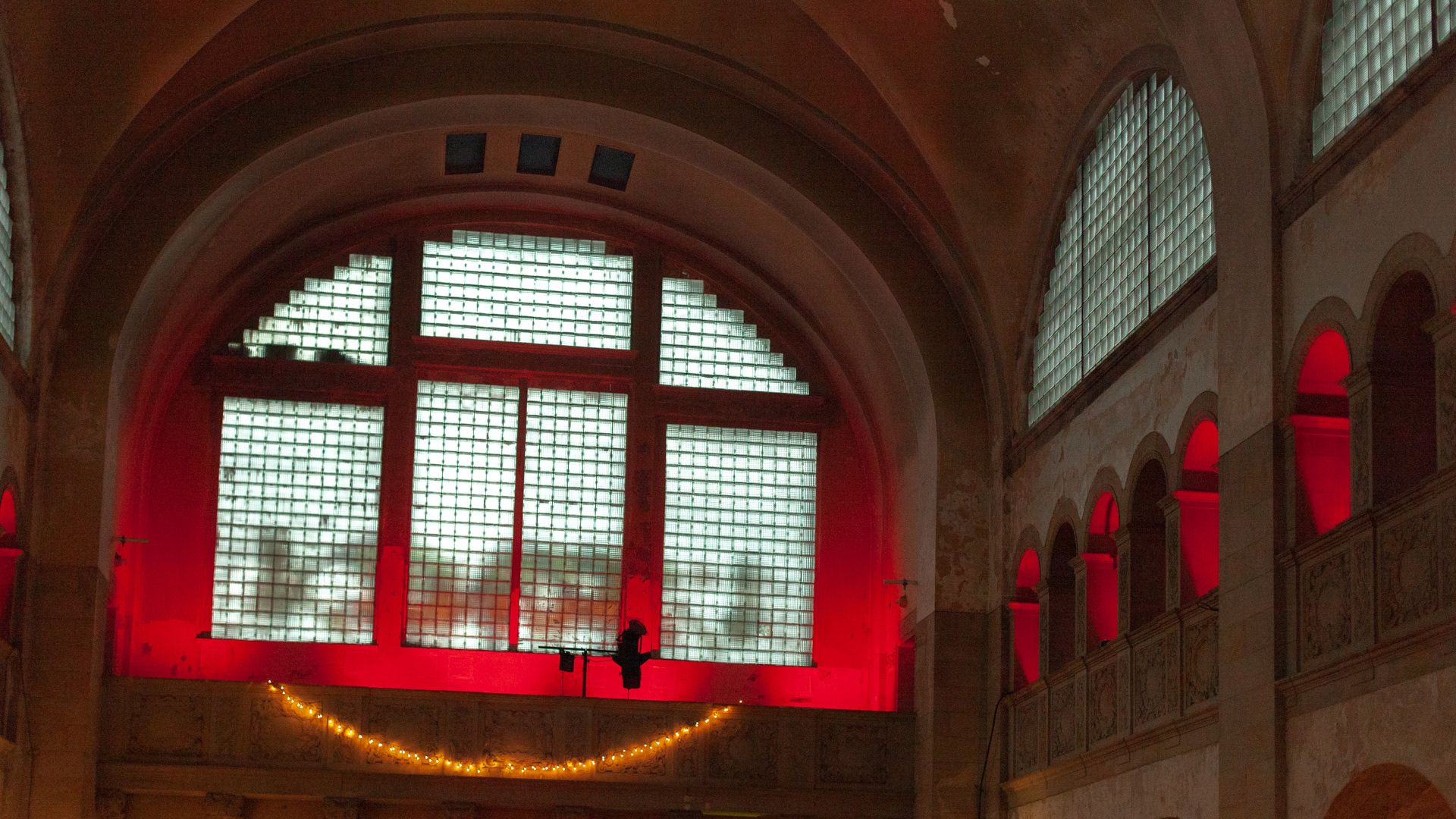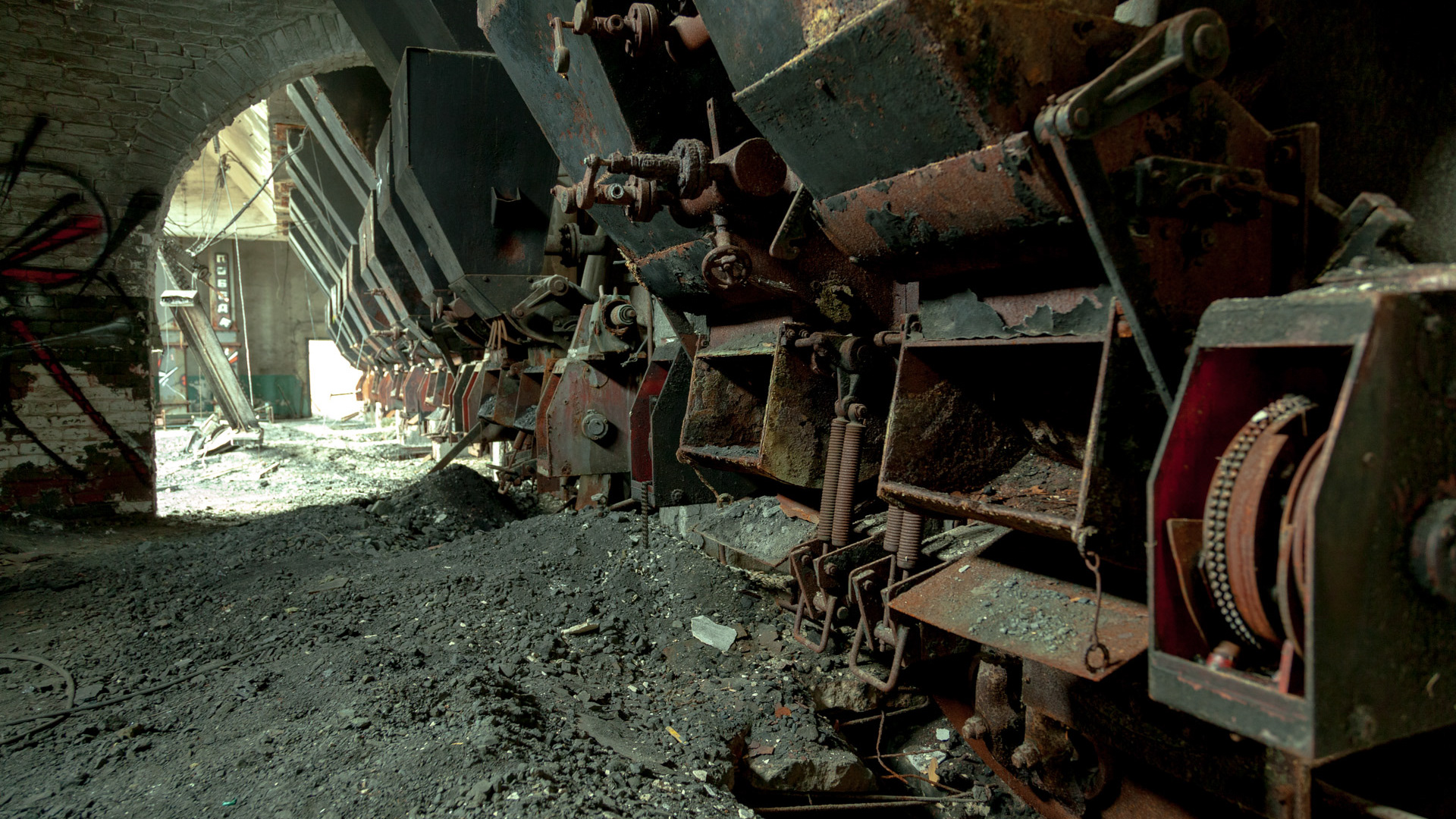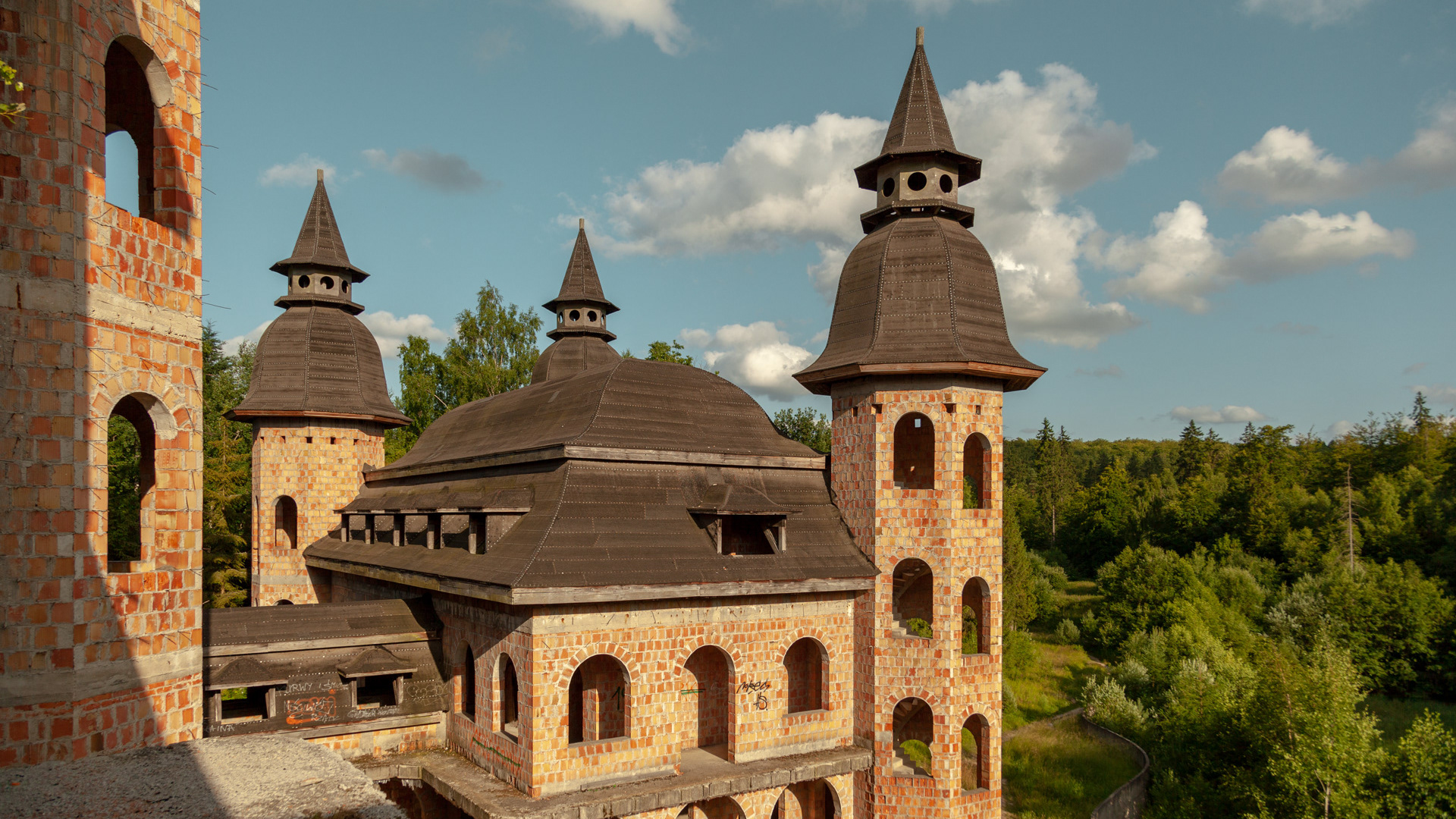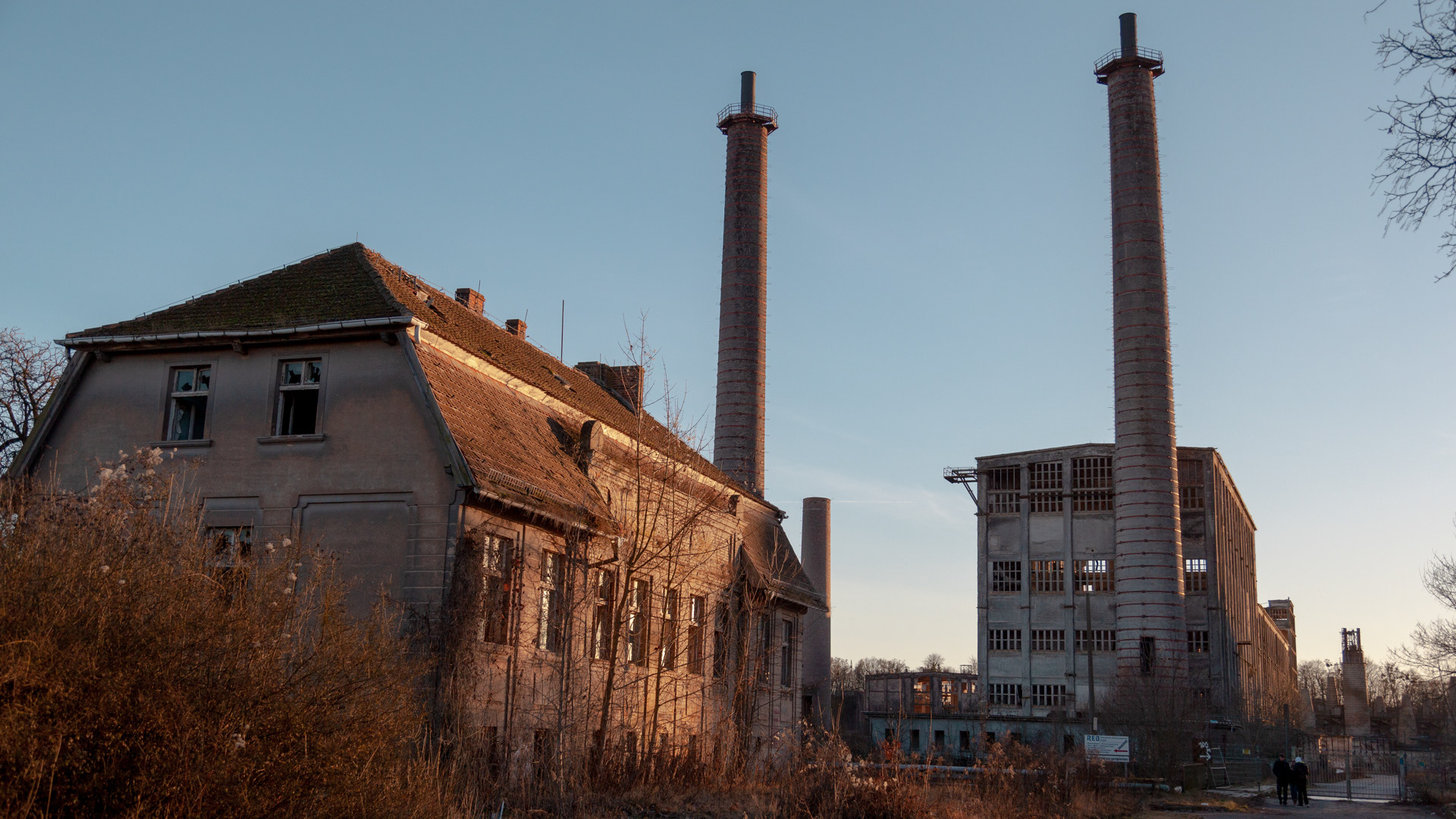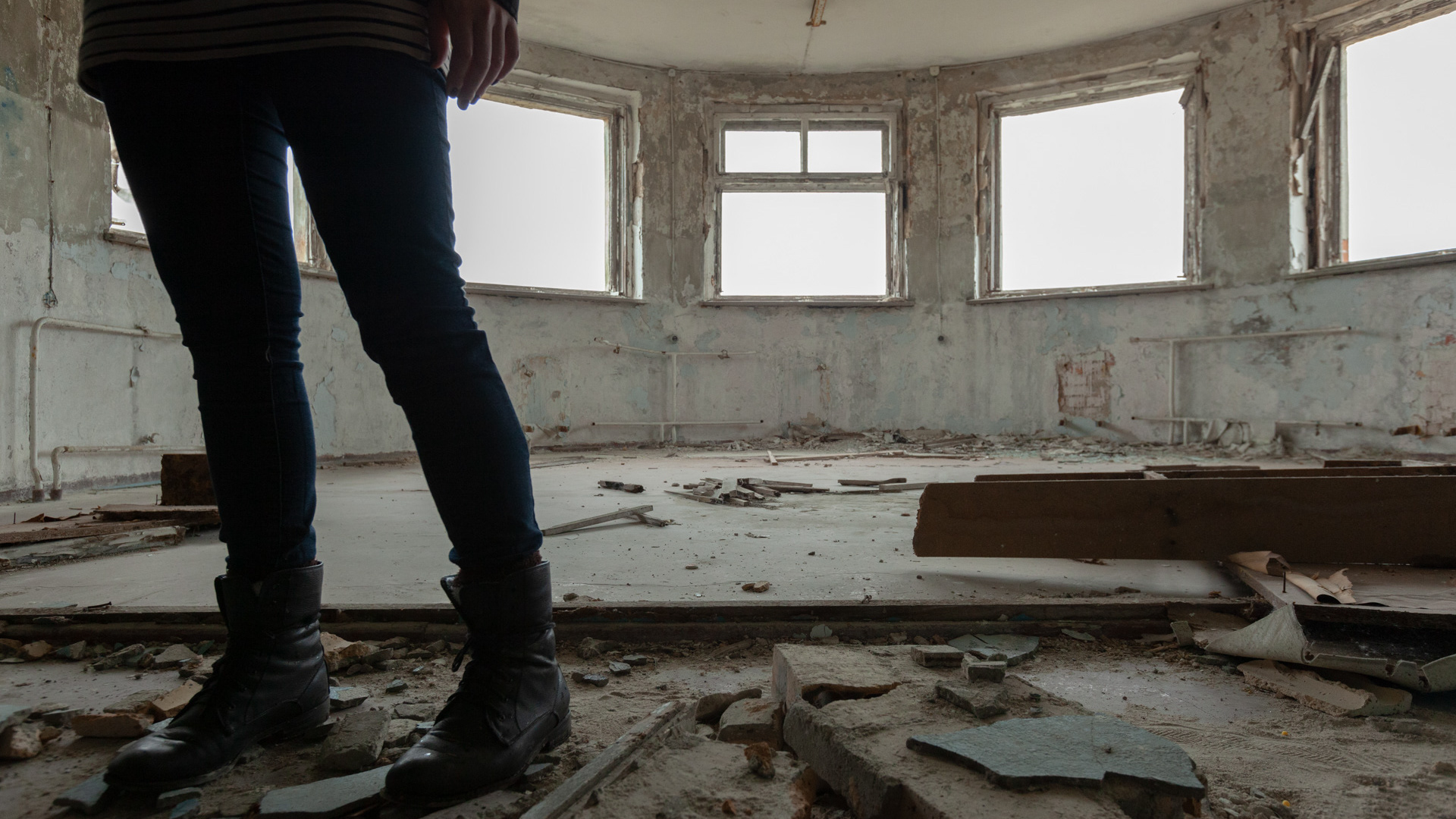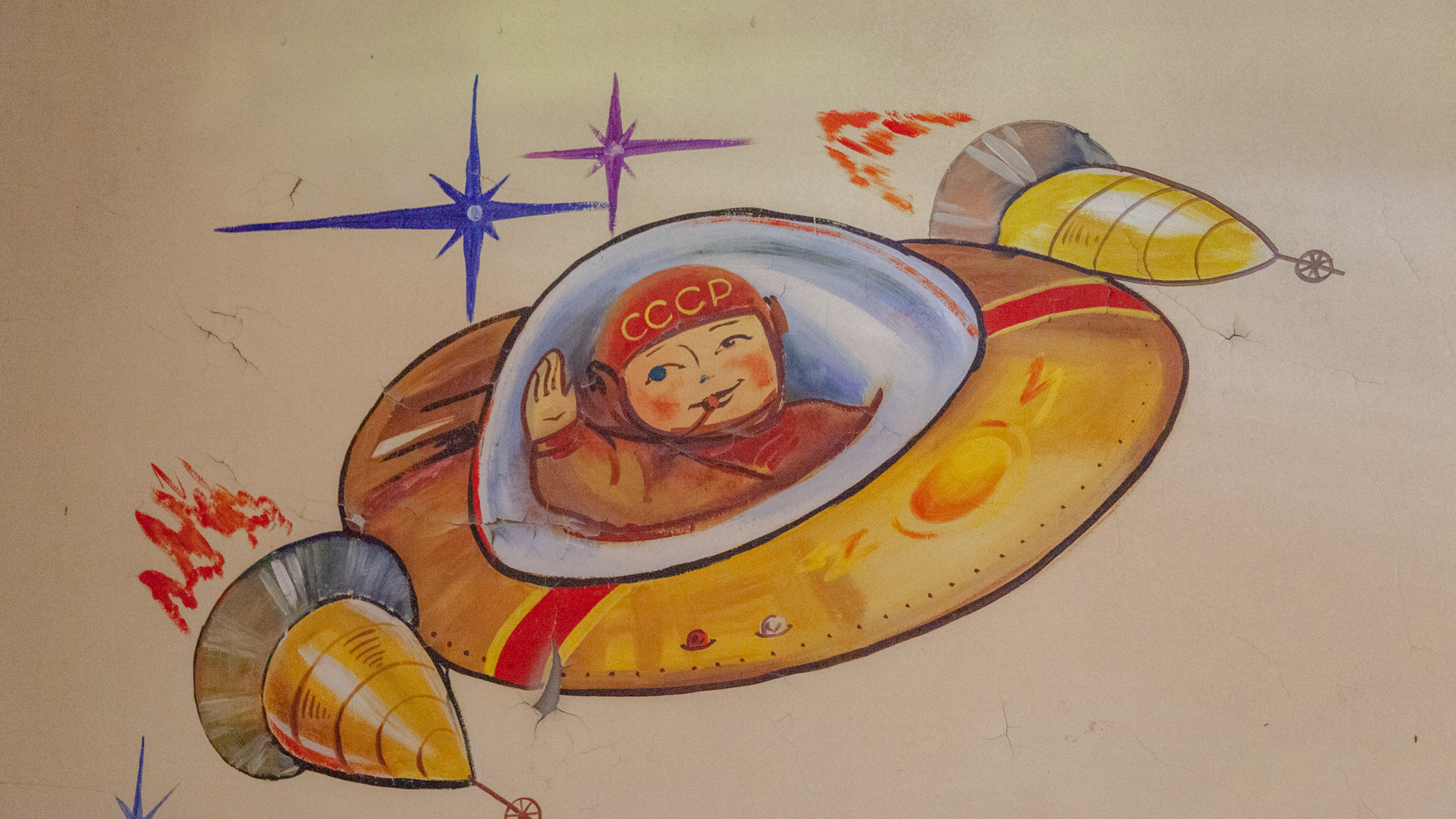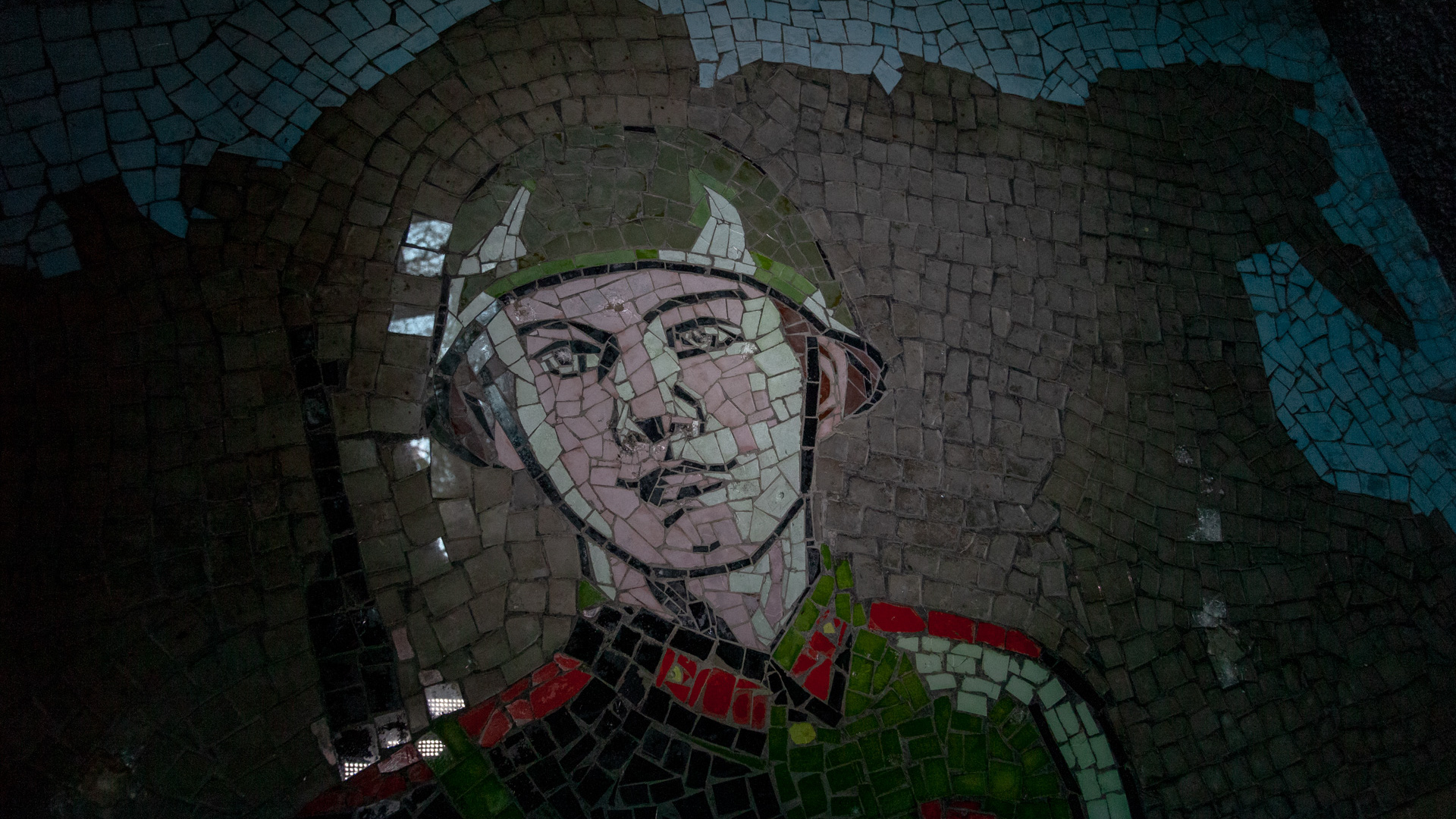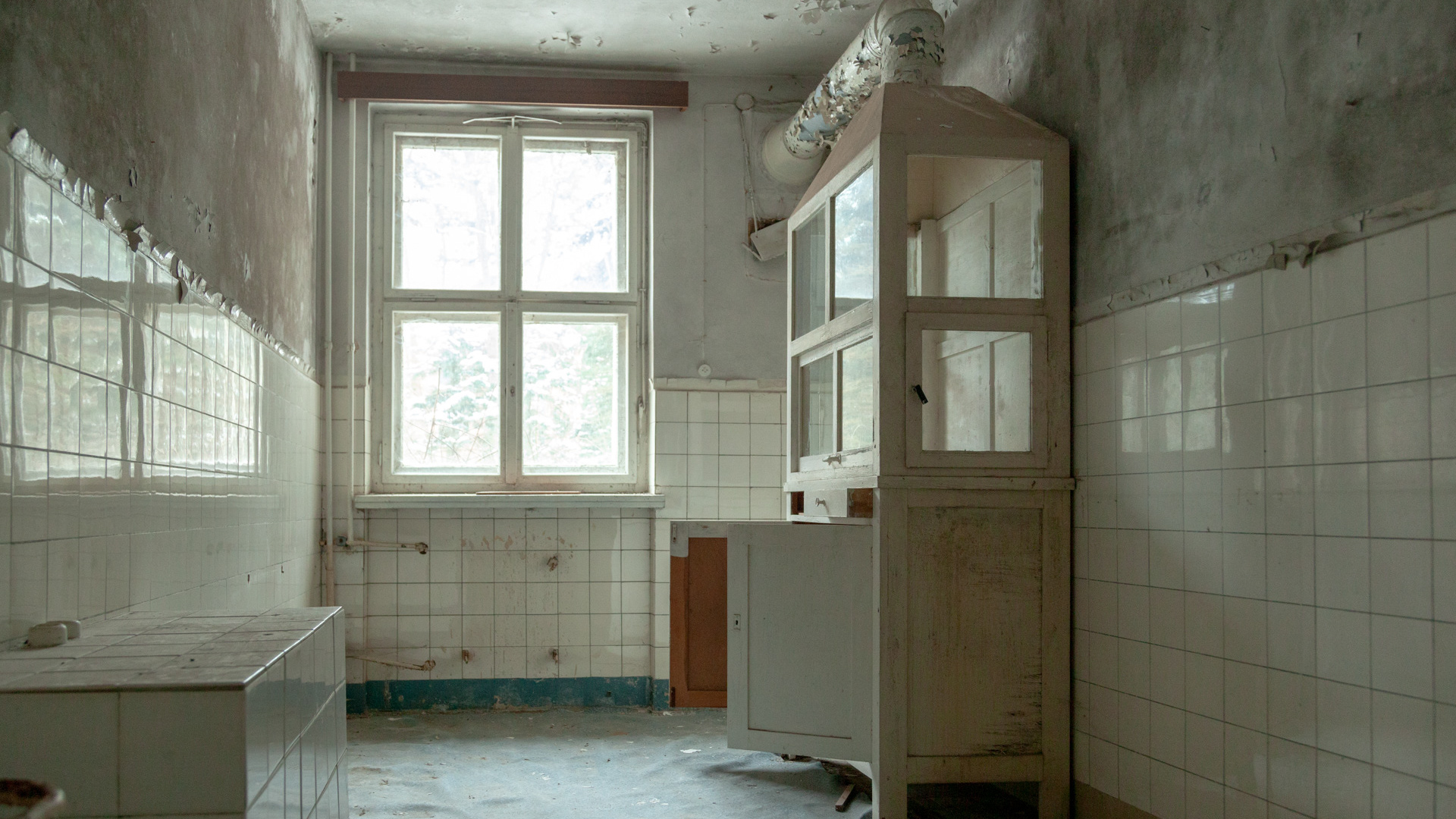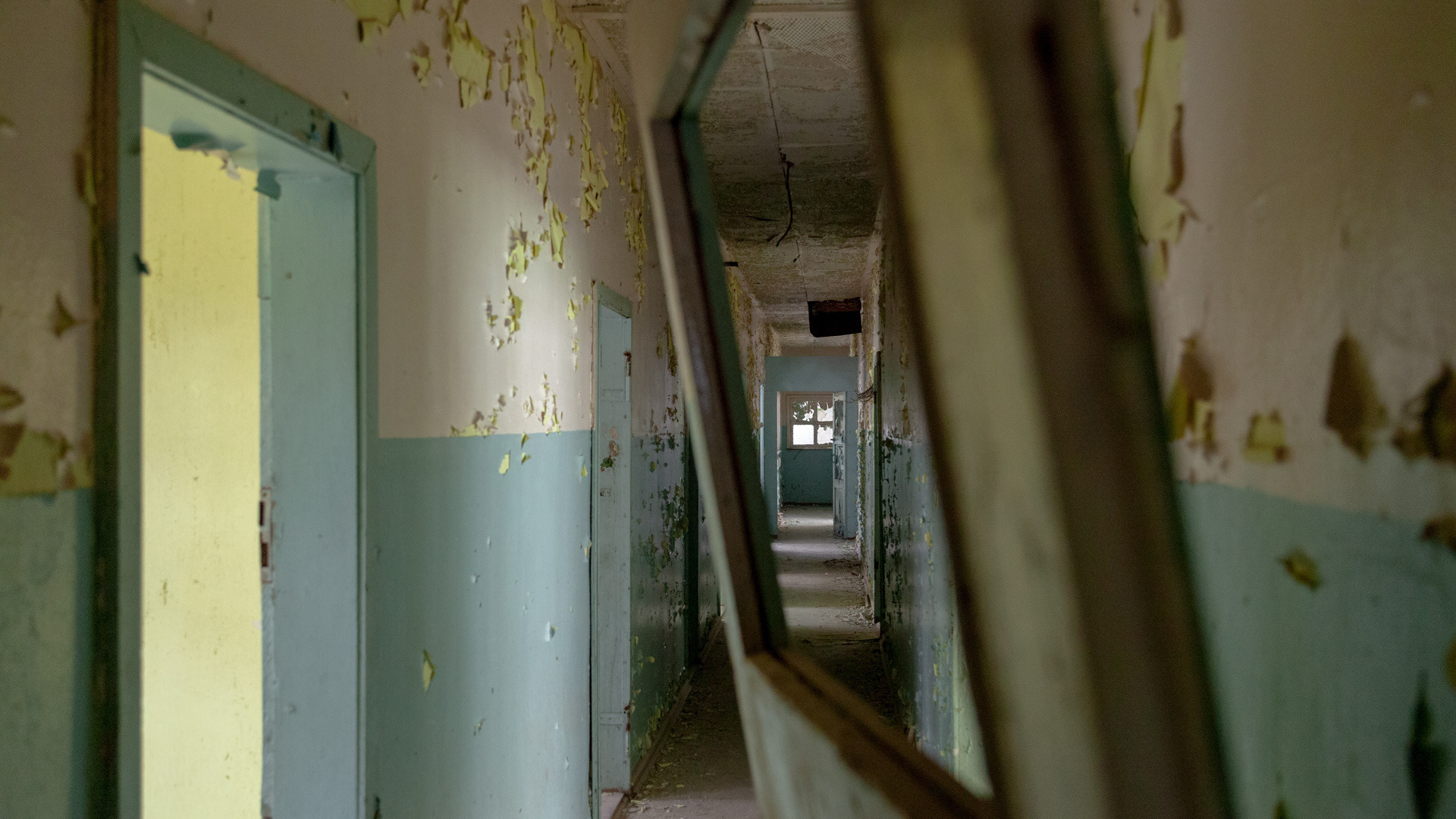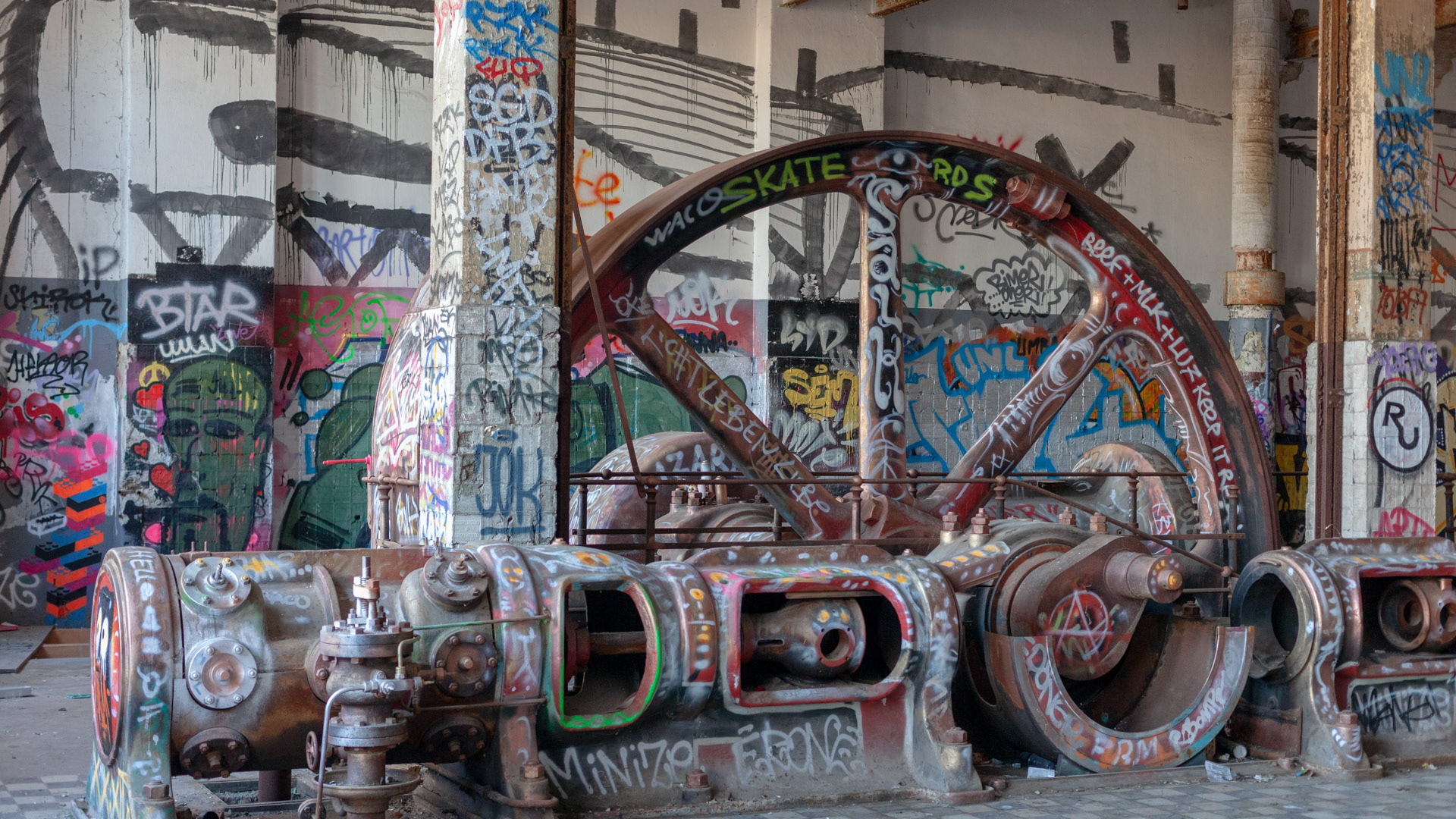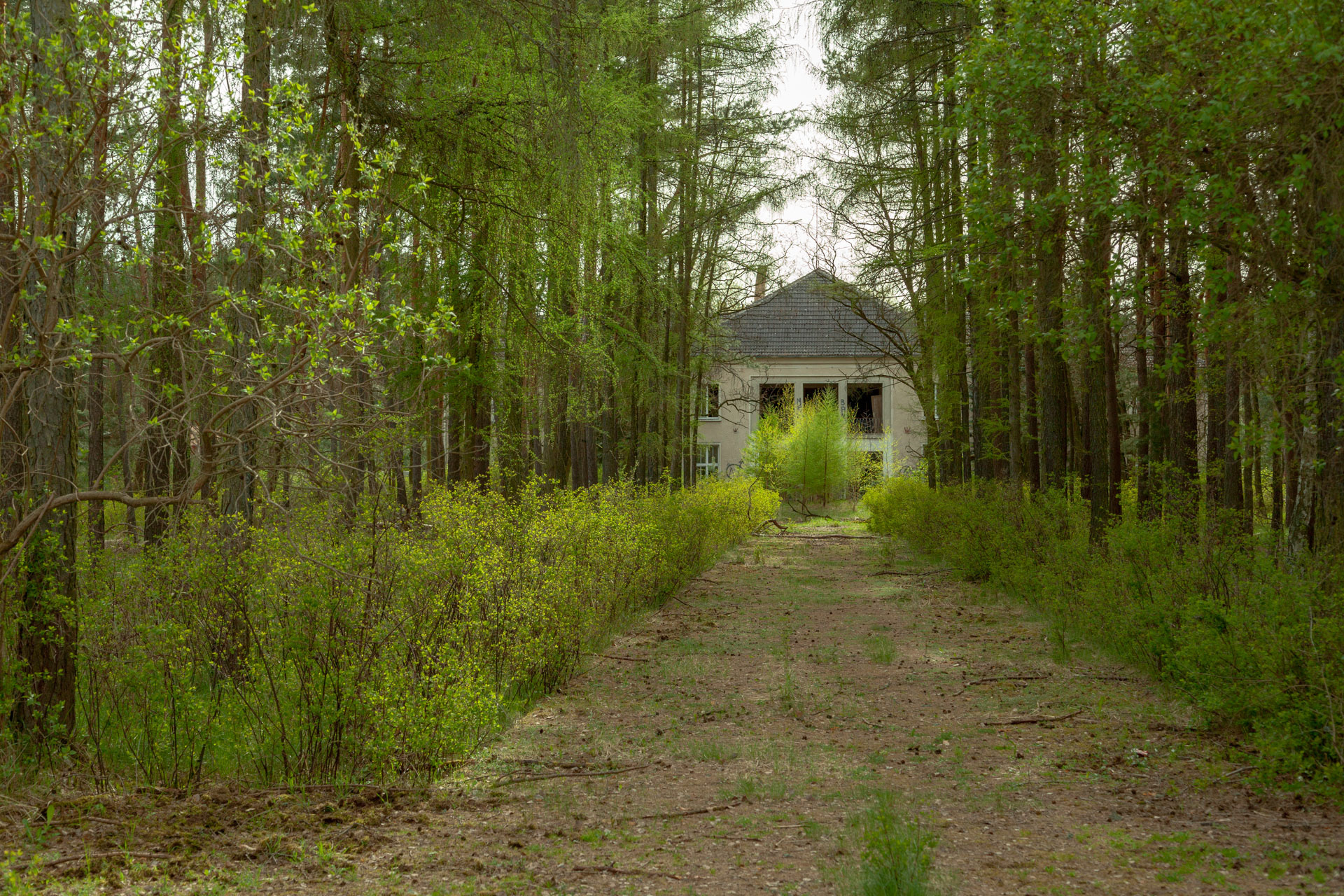
We left the railway behind us a few kilometers ago, walking into the woods, where we pass close to an icy swamp, which in winter, together with the cawing of birds perched on long branches without leaves, contributes to creating a dense atmosphere.
This place is not just an abandoned military base, there are many in former East Germany since the Soviet Army left the country in '94, this place was at the center for some time of tightrope crisis and nuclear missiles aimed at London, which is less than a thousand kilometers from here, of which, however, even the CIA could not find evidence at the time.
This part of history is not very well known, it is part of the recent memory of Germany and for this reason it needs time to be observed with due objectivity and also to be disconnected from the events of the Fall of the Wall, which catalyzed international attention in the rituals of anniversaries.
This place is not just an abandoned military base, there are many in former East Germany since the Soviet Army left the country in '94, this place was at the center for some time of tightrope crisis and nuclear missiles aimed at London, which is less than a thousand kilometers from here, of which, however, even the CIA could not find evidence at the time.
This part of history is not very well known, it is part of the recent memory of Germany and for this reason it needs time to be observed with due objectivity and also to be disconnected from the events of the Fall of the Wall, which catalyzed international attention in the rituals of anniversaries.
The Soviet Army in the GDR was an army waiting for a war that fortunately never took place, but which marked the lives of the people who prepared for it for 40 years. At the end of Communism they were then brought home to a deeply changed and ruined country, to which they could hardly be happy to return.
With the end of the Second World War the Soviets had first taken possession of the bases of the Wehrmacht, then with the Cold War they began to build new military bases outside the cities. The bases were built on the margins or in the woods to not facilitate American radars and were gradually expanded, until they became real Military Cities capable of hosting 7,000, 15,000 but in some cases even 70,000 soldiers with their families.
With the end of the Second World War the Soviets had first taken possession of the bases of the Wehrmacht, then with the Cold War they began to build new military bases outside the cities. The bases were built on the margins or in the woods to not facilitate American radars and were gradually expanded, until they became real Military Cities capable of hosting 7,000, 15,000 but in some cases even 70,000 soldiers with their families.
When they left Berlin there were 500,000, taking everything with them, even the doors, even the window frames, even the wood of the floors; around the city, completely abandoned areas were created which over the next twenty years were again absorbed by nature. These areas retain a particular charm, they manage to reconnect us with the past and at the same time give us the idea of how the great empires crumbled.
We finally arrive at the base, Vogelsang, wandering around the silent streets and the building that was once a theater and cinema still appears imposing, with the columns at the entrance and the remains of a fountain in the square in front.
We finally arrive at the base, Vogelsang, wandering around the silent streets and the building that was once a theater and cinema still appears imposing, with the columns at the entrance and the remains of a fountain in the square in front.
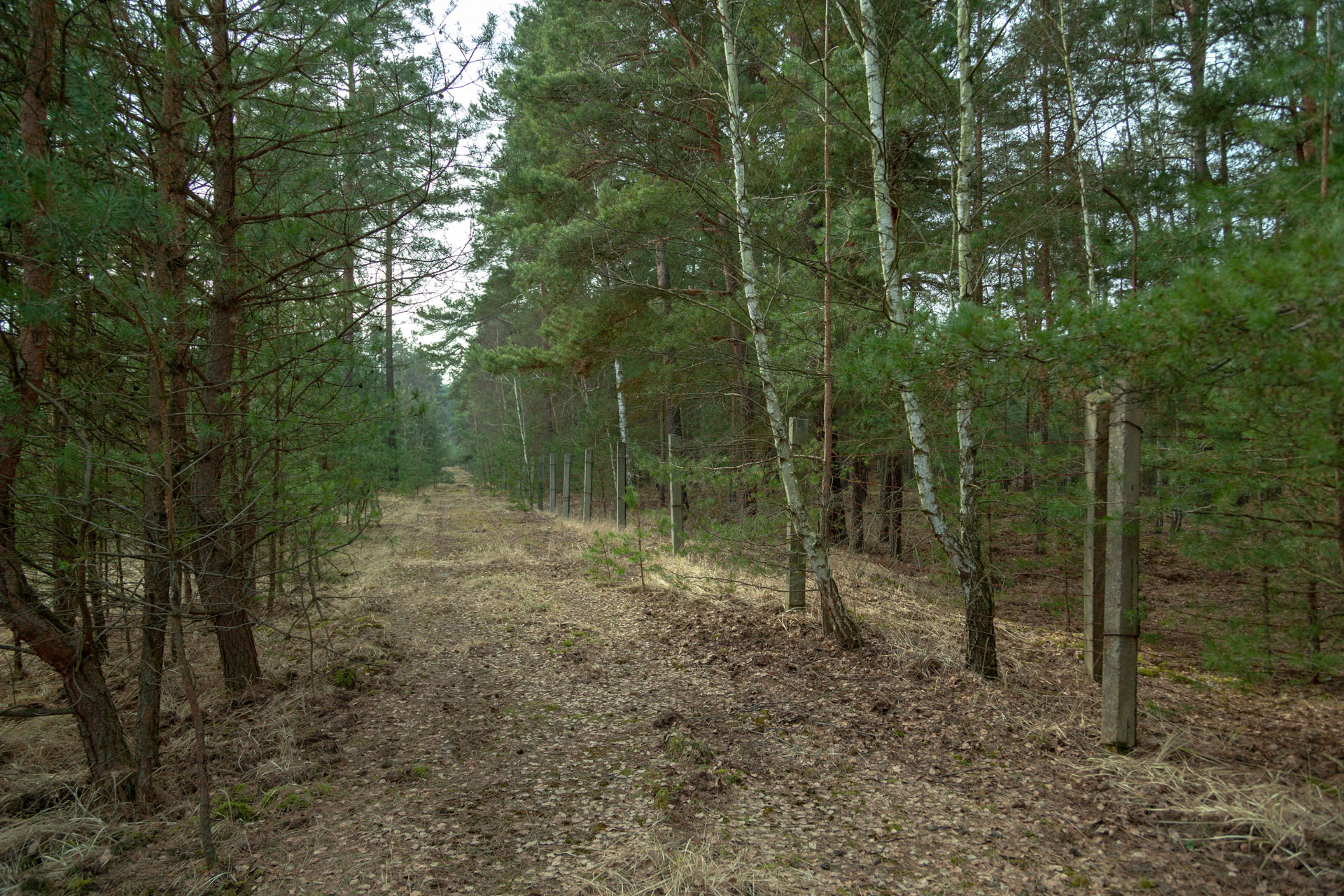
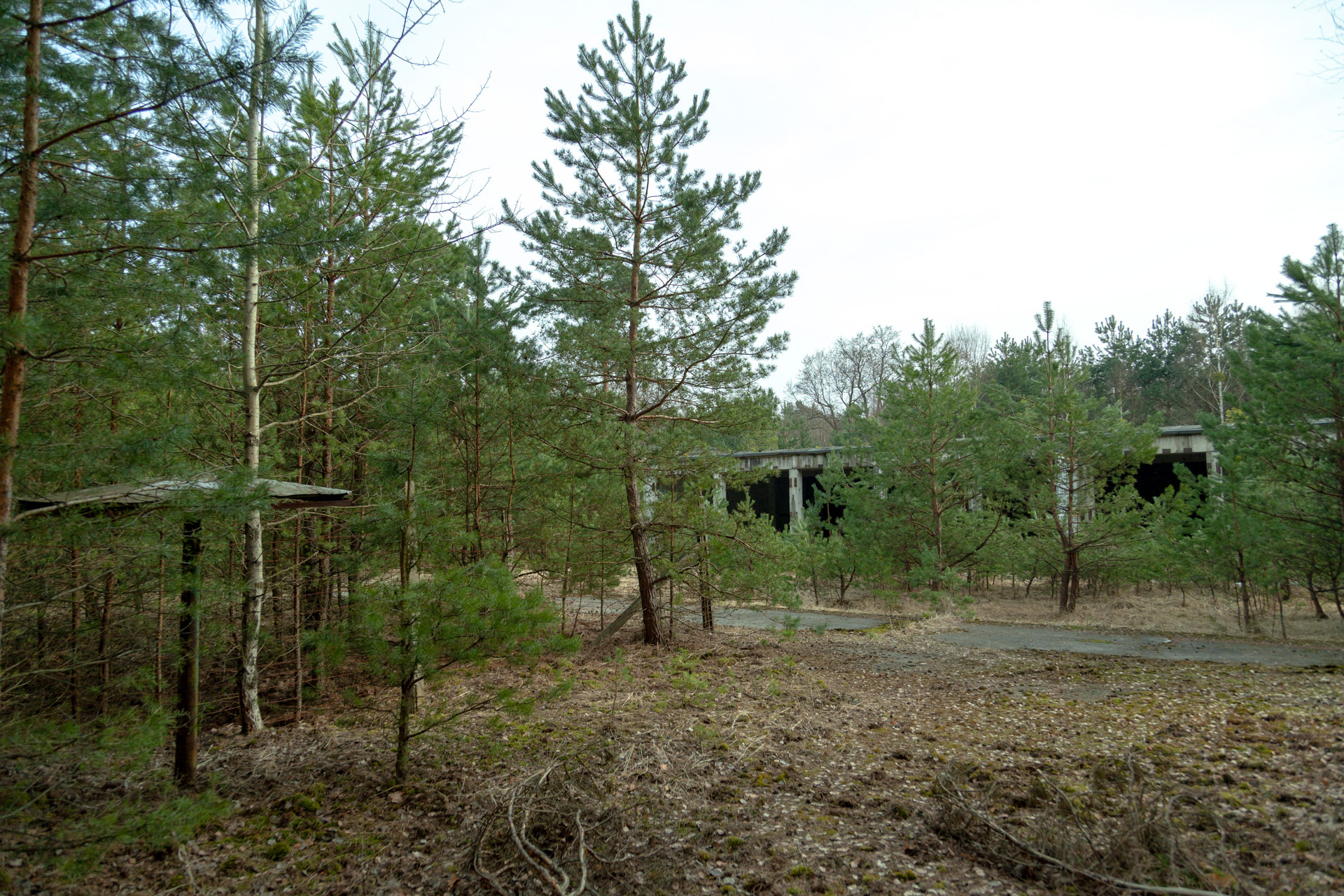
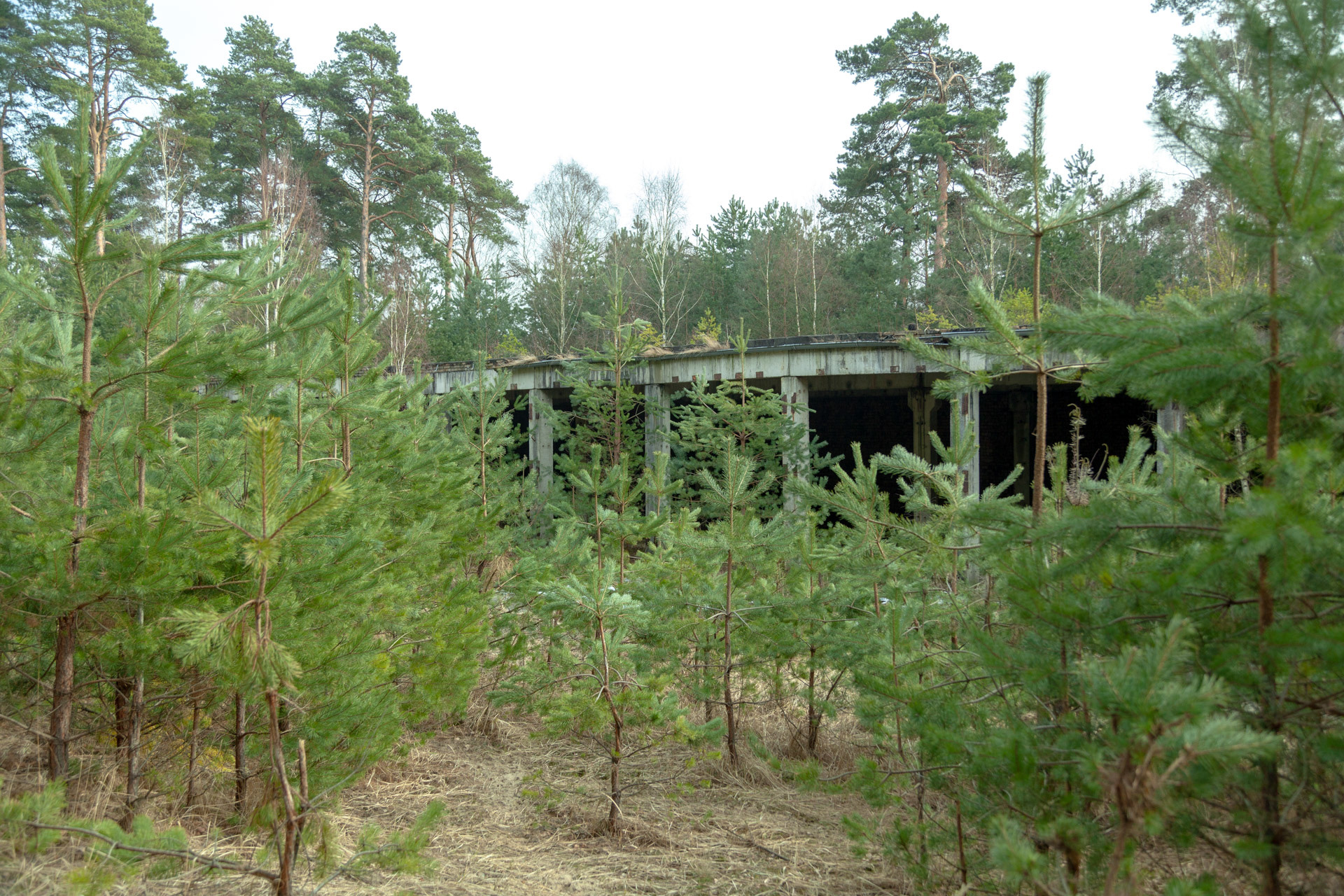
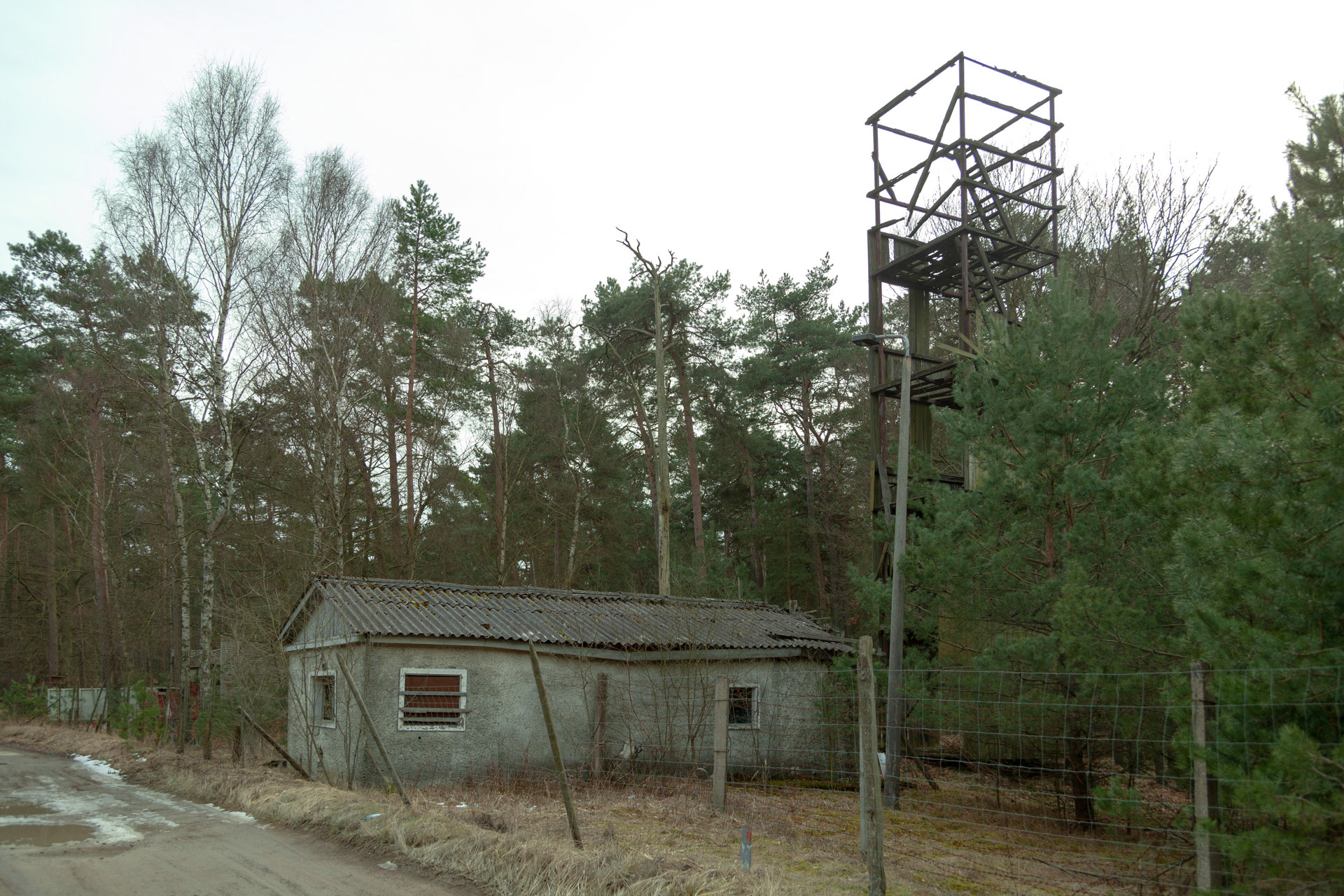
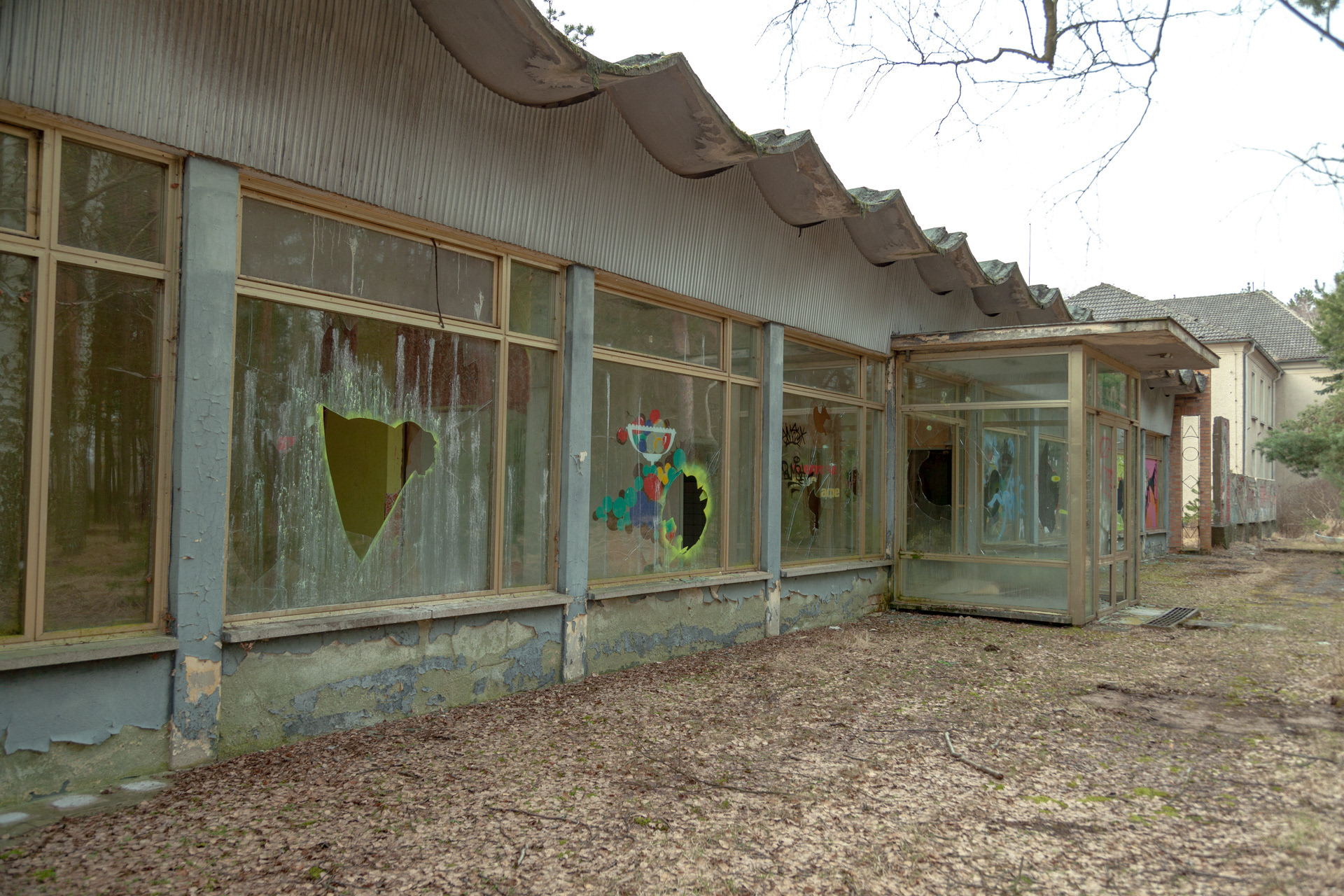

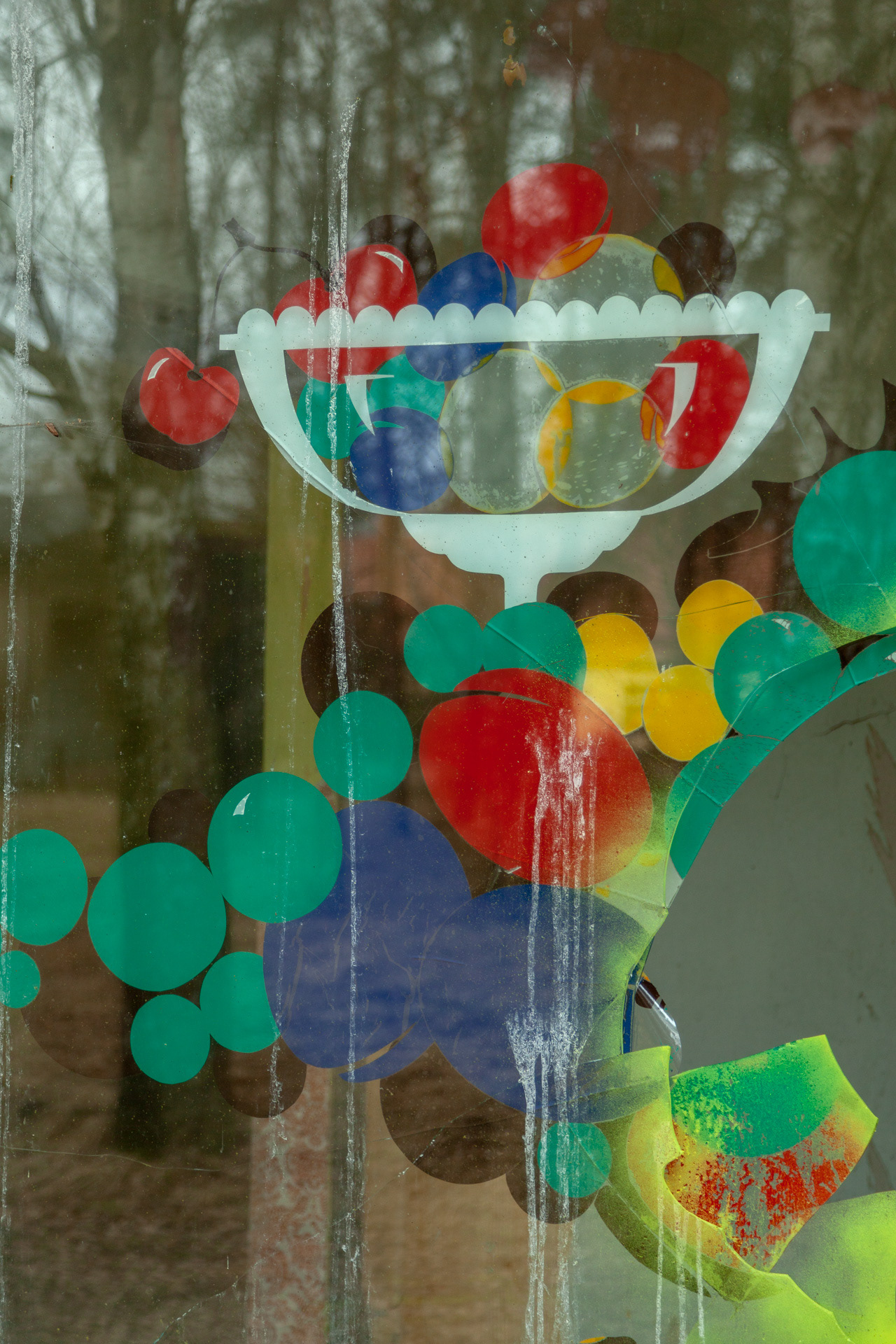
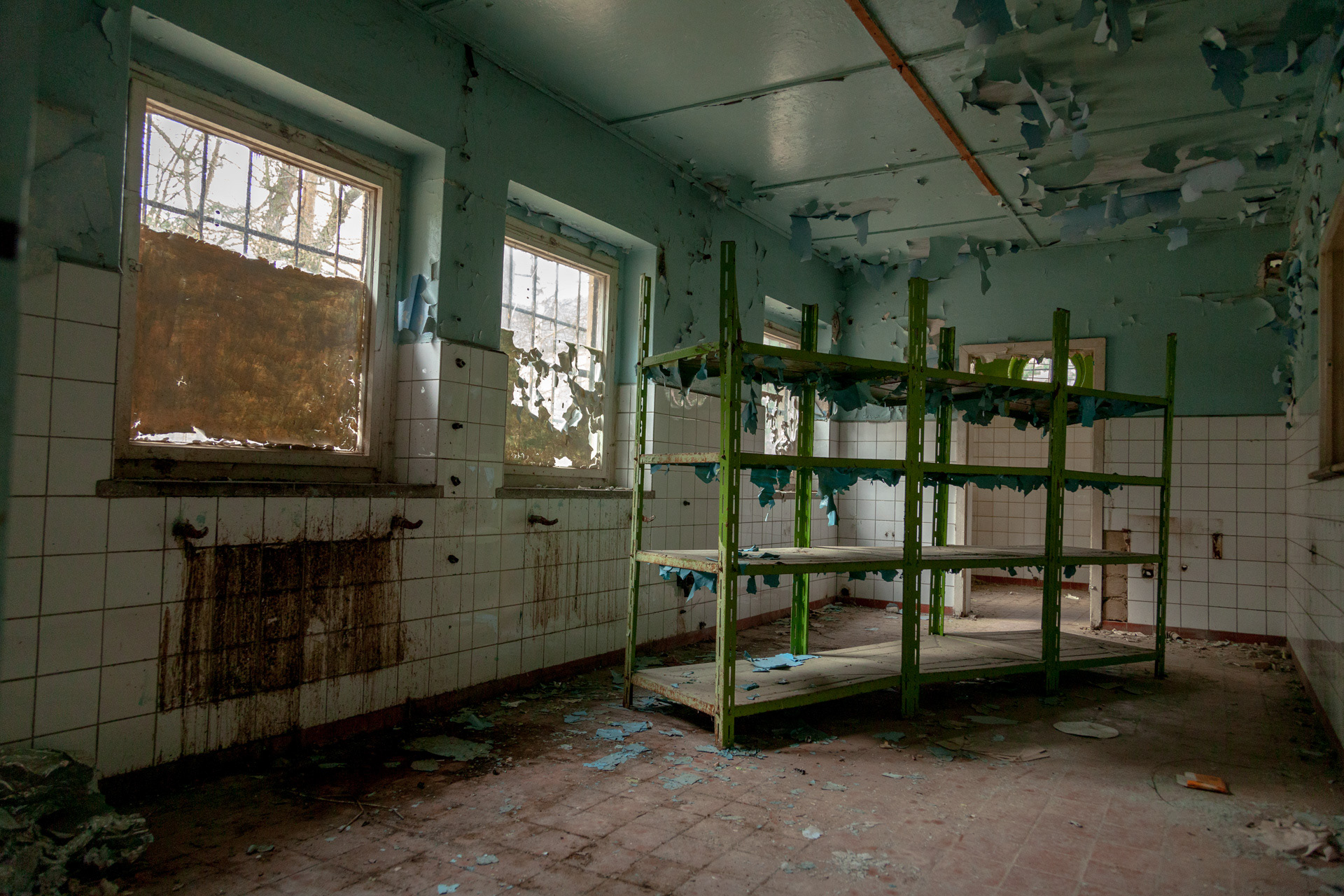

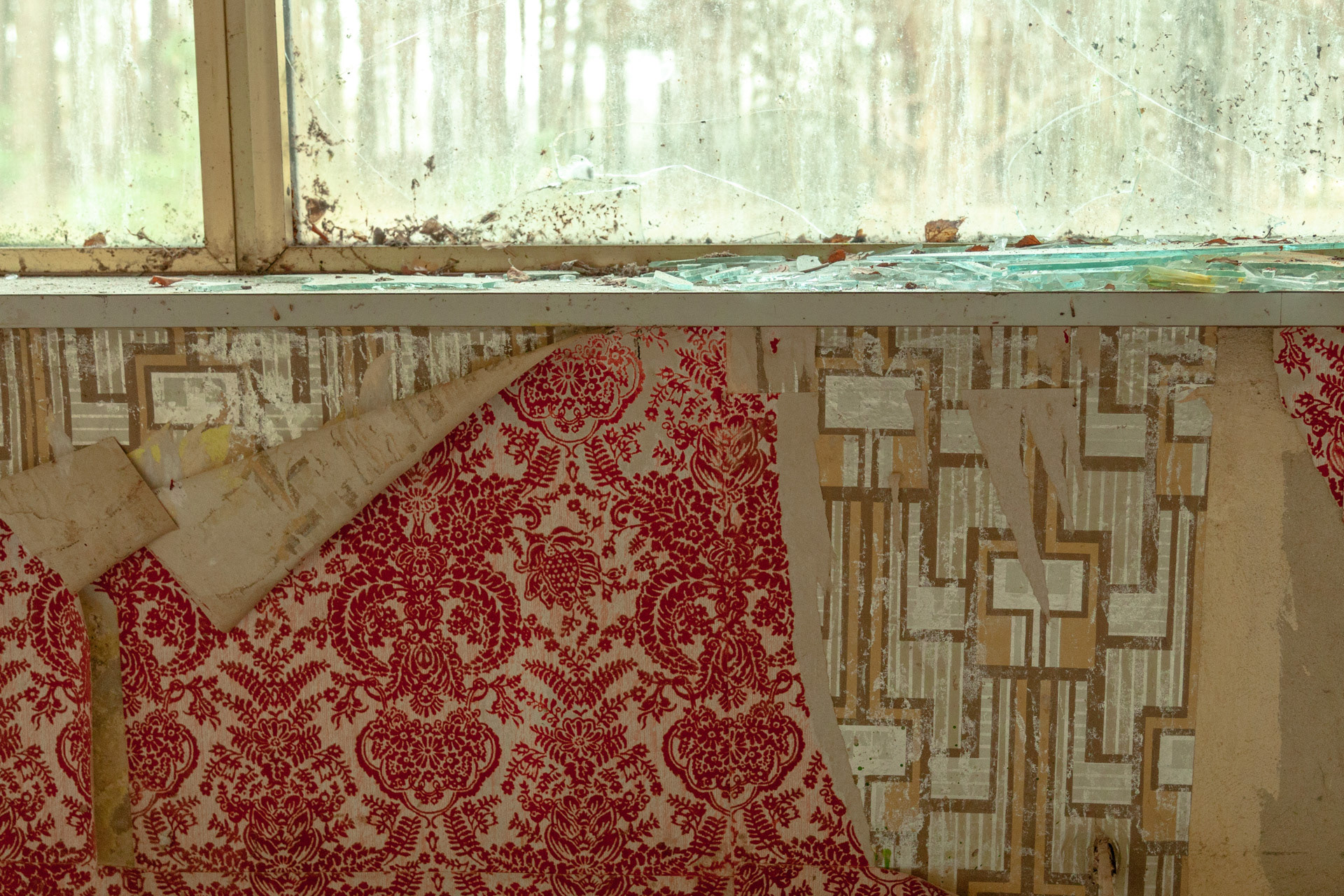
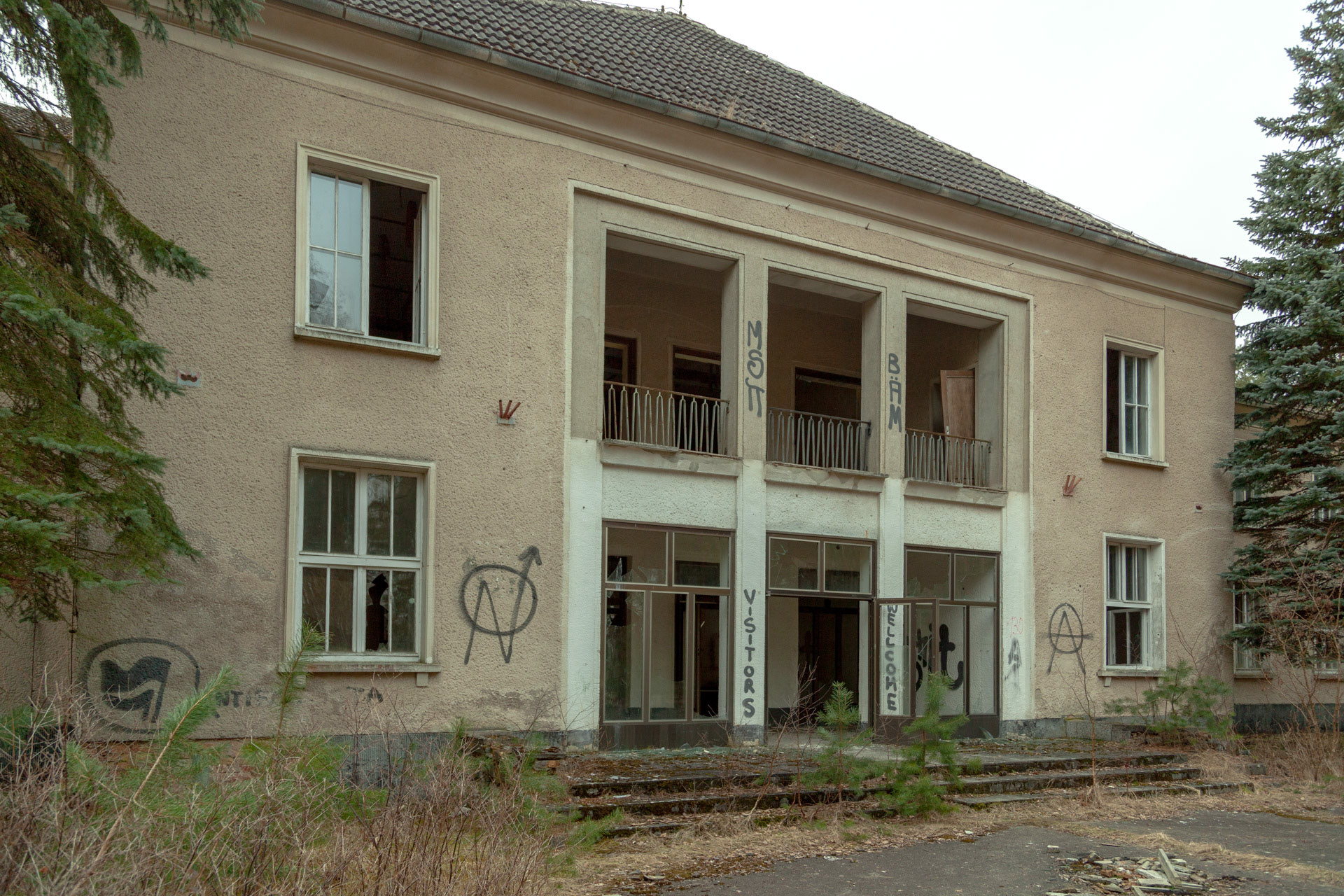
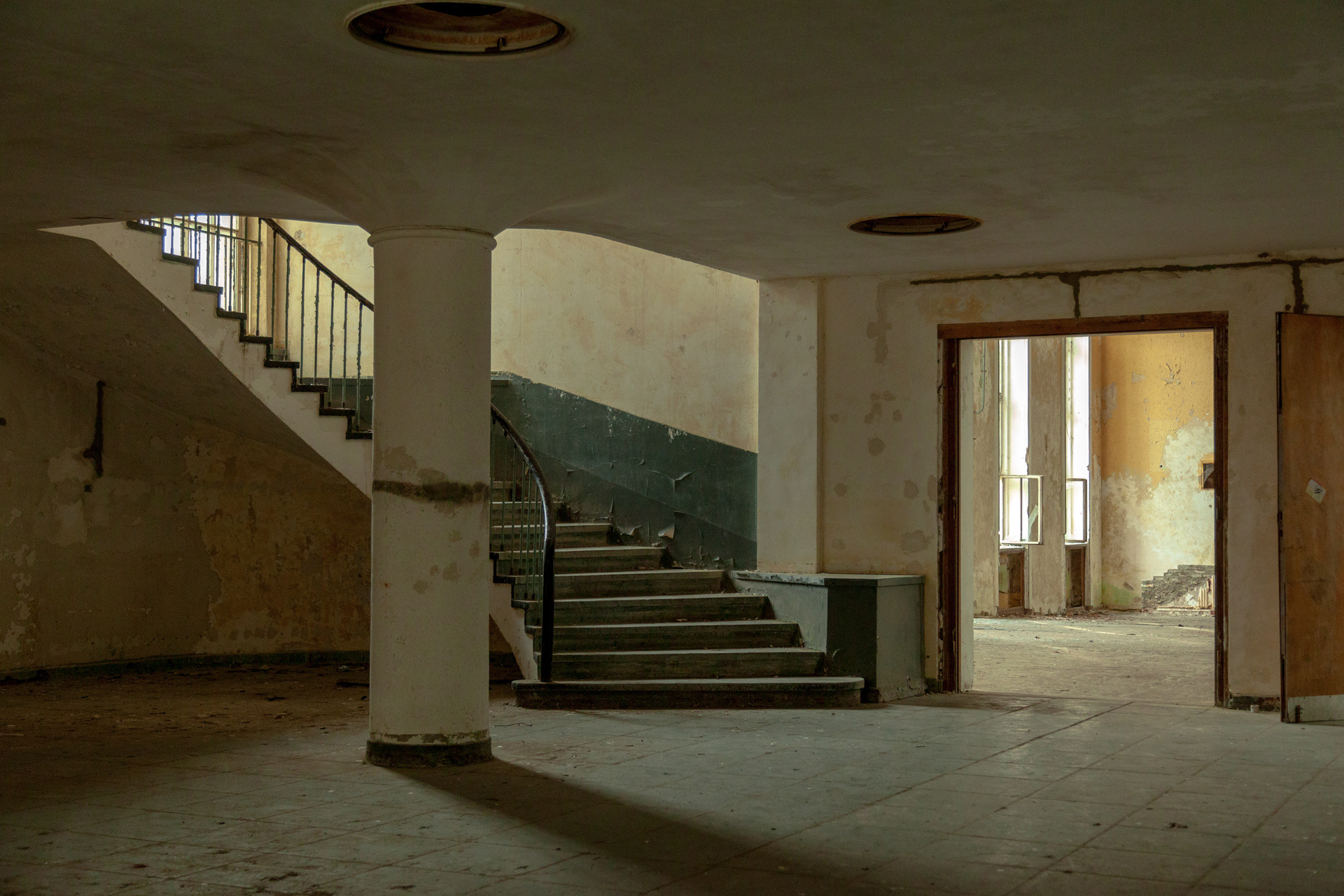

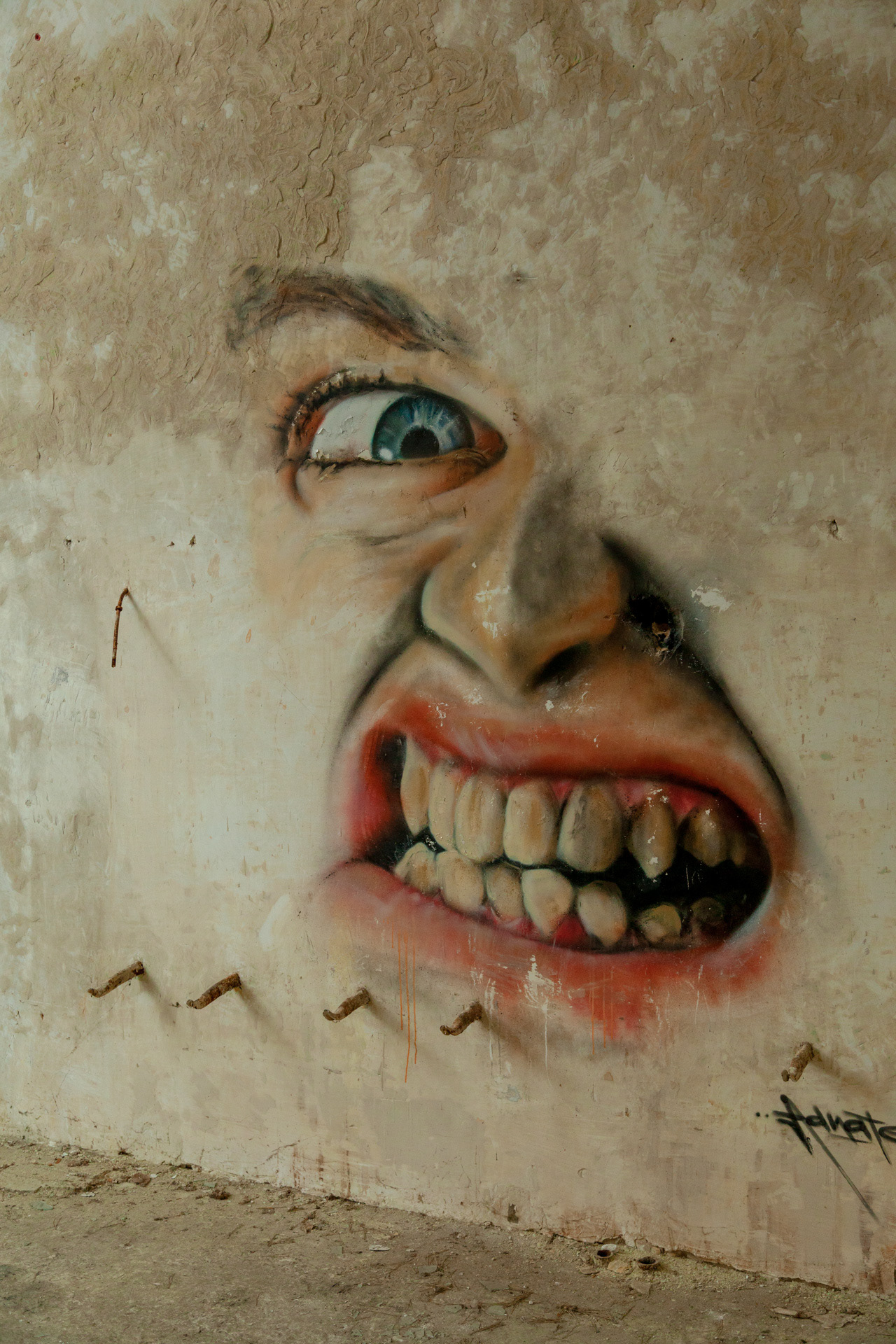
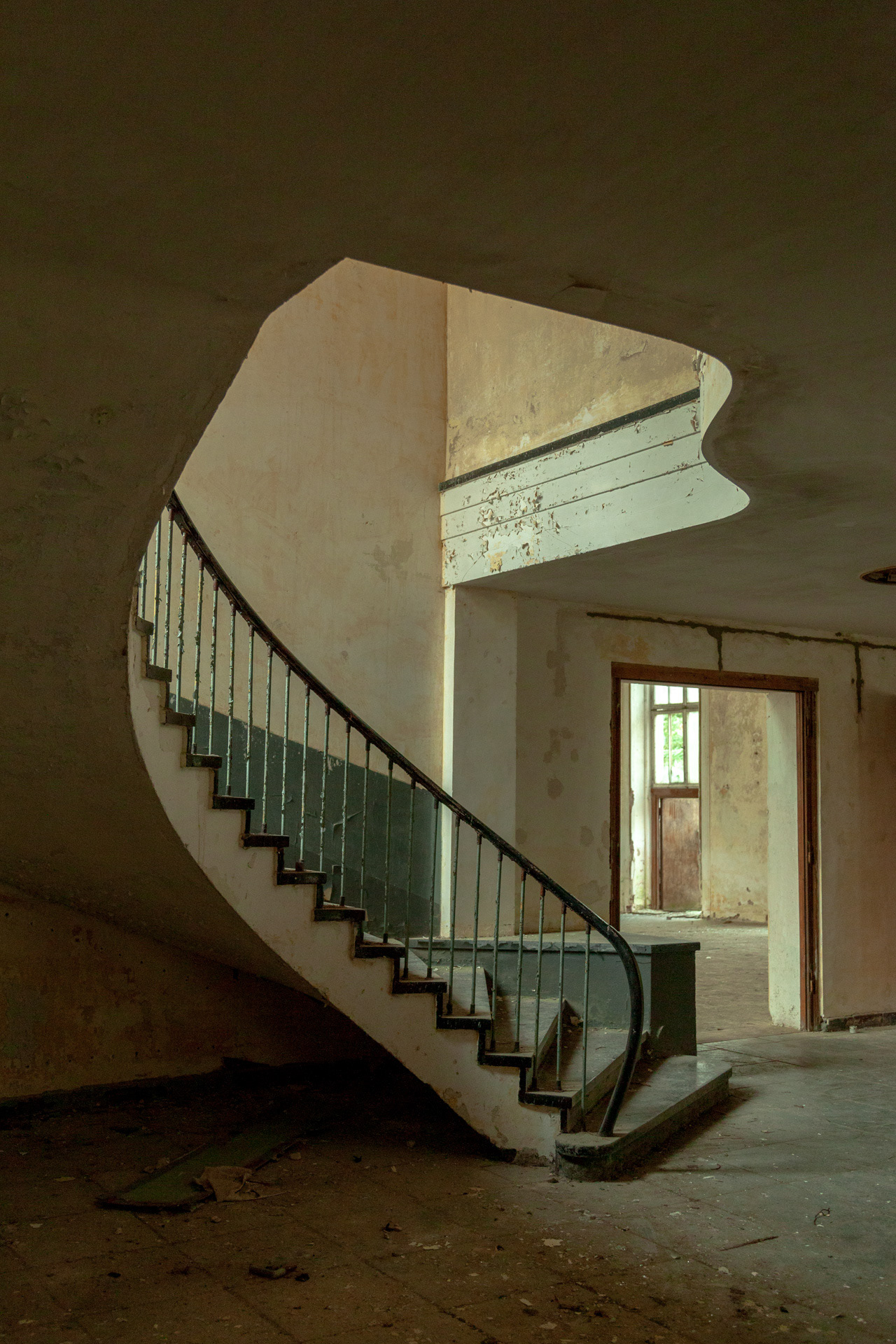
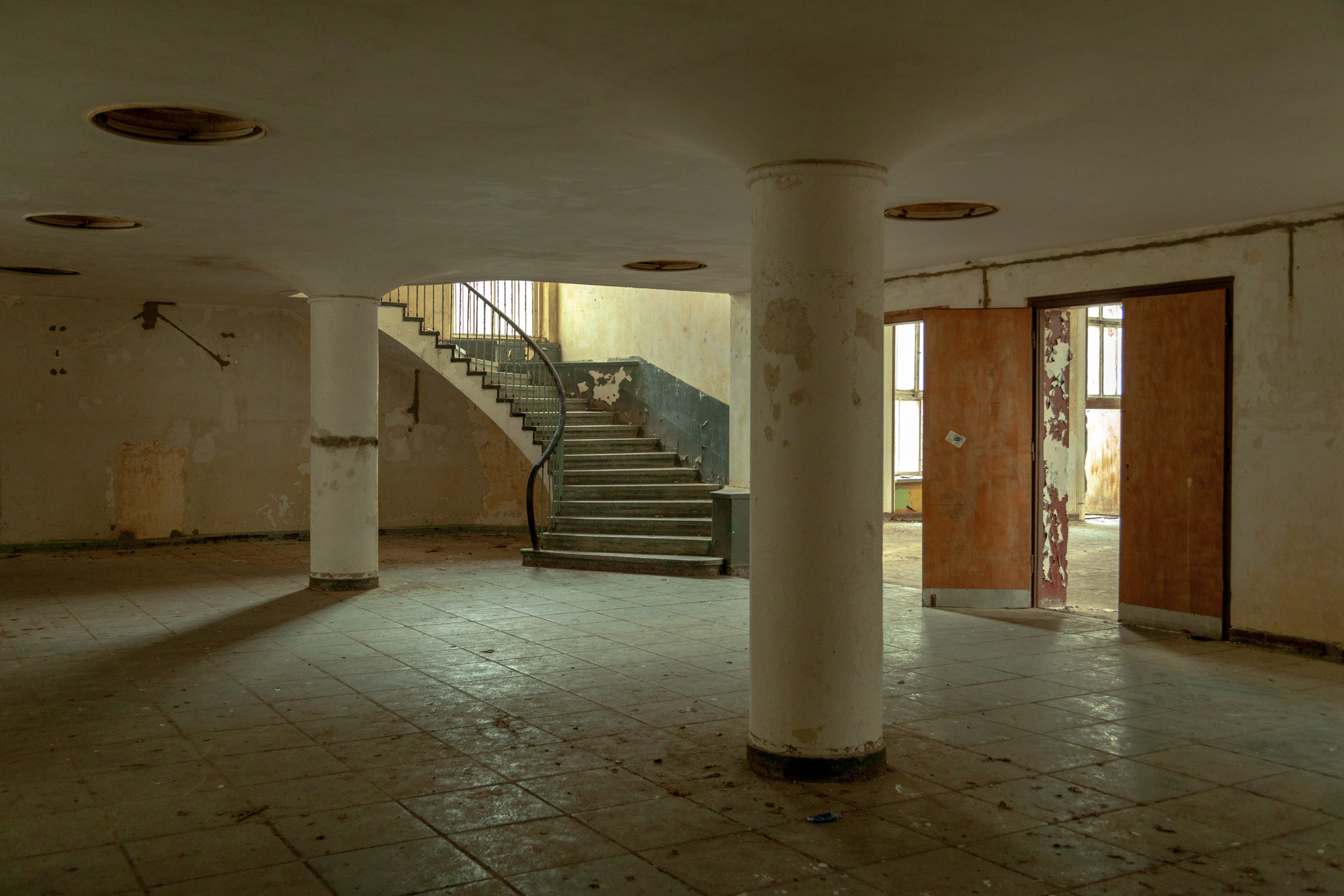
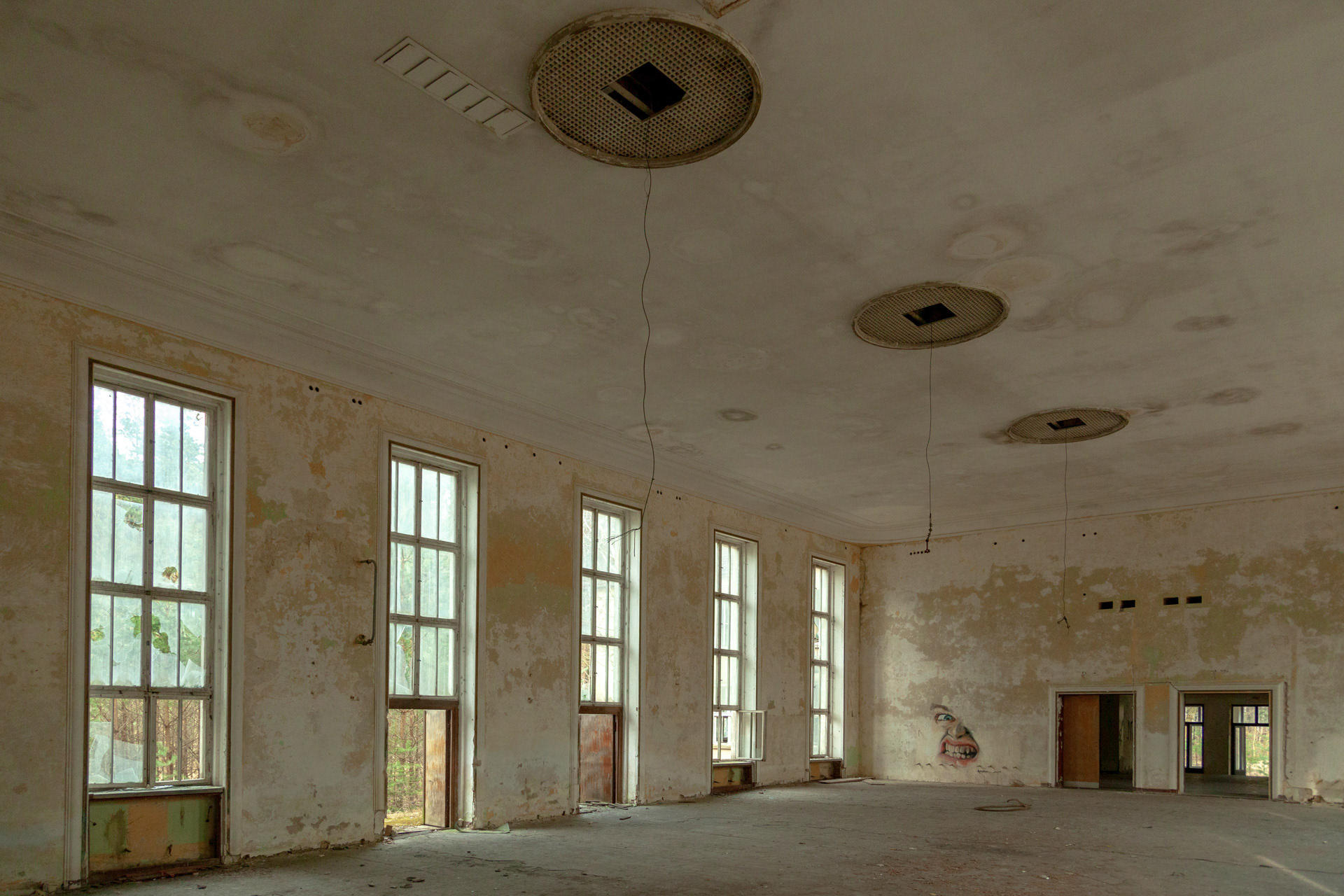
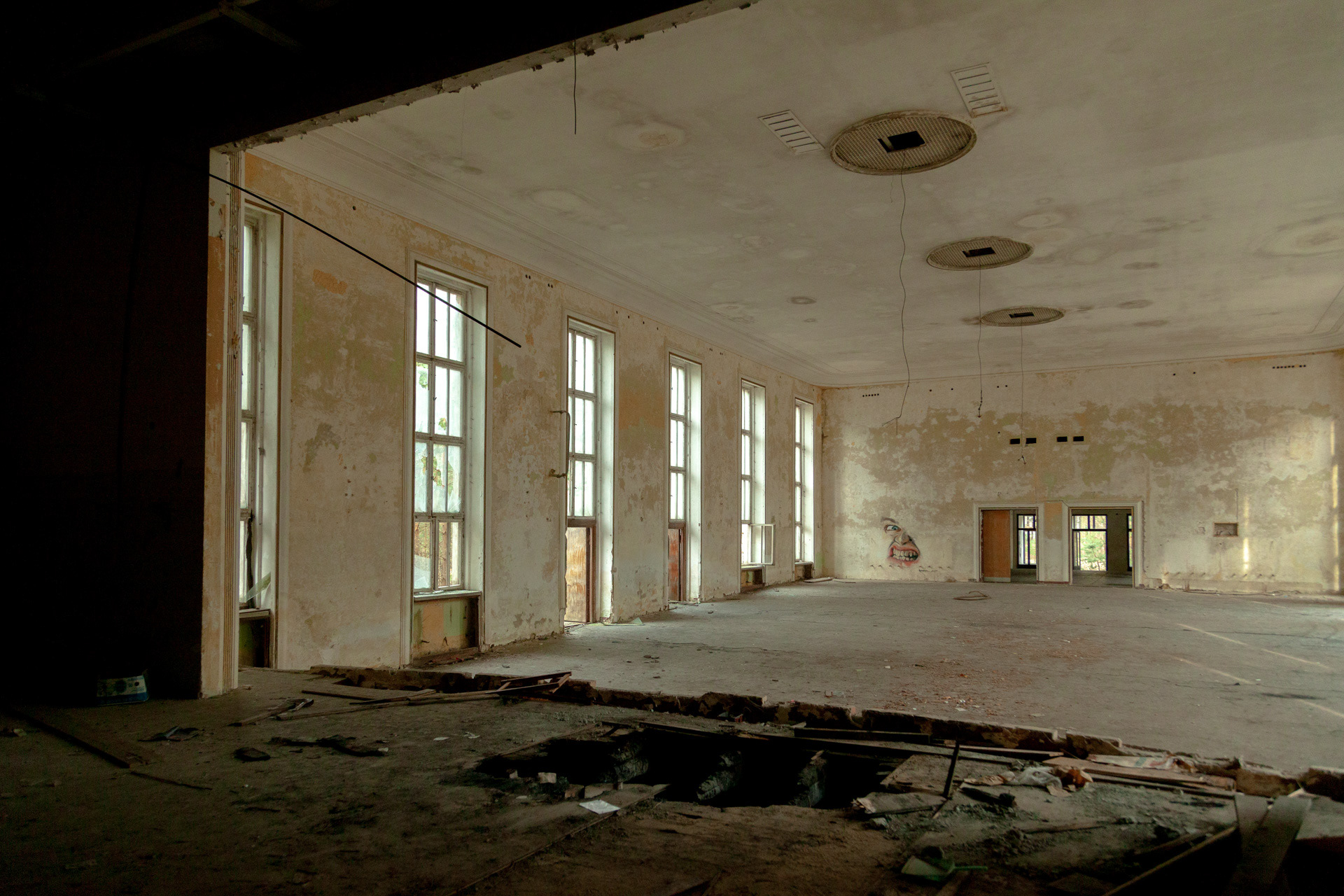
It is difficult to imagine this place many years ago, full of noises, of shirtless soldiers during outdoor training, of the heavy footsteps of goose-stepping boots, of people chatting and waiting to enter the cinema. In fact, the main room is deserted, everything is missing, even the armchairs. The upper floor is accessed via an elegant staircase but even there everything is silence and absence, bare, with sagging ceilings.
It is at this juncture that we have such an unexpected, when surprising, encounter. A man in his forties appears out of nowhere, approaches and asks us to be photographed on what remains of the cinema. He takes the stage with great dignity, composed and proud, of that dramatic nostalgic pride typical of the Soviets. Intrigued by the request and by the man, we stay and talk to him, divided by language barriers, but not by the desire to communicate. And then the few shared words are fine, the hands are worth it, the drawings made on the ground with chalk are worth it, with which he draws his memory of the base.
He was little more than a child when he lived on the base (with his family, the son of some base officer) and stayed there for four years, the standard time for Soviet Army Officers before being assigned to another. base; he wants to tell, explain, revive that place where he returns for the first time in 30 years.
Thanks to his gestures and words, in the emptiness of the room the rows of armchairs reappear with seats for the officers and non-commissioned officers, in the center the large crystal chandeliers and the people who take their seats to watch a new show of the comrades or to see a movie.
Thanks to his gestures and words, in the emptiness of the room the rows of armchairs reappear with seats for the officers and non-commissioned officers, in the center the large crystal chandeliers and the people who take their seats to watch a new show of the comrades or to see a movie.
He moves outside the hall, where there was the ticket office on one side and the newsstand on the other. An empty, white room relives where once there was a billiard table and where now we can instead see the smoke of cigarettes, while upstairs were the rooms where you could play music together, even rock, as he is keen to point out. .
The days spent between school and the gym watching the soldiers come and go from those military exercises made day by day of the same everyday life, waiting for that hypothetical war in a foreign land, divided from the real world by a dense forest, with little contact with the people of the neighboring country. Germans and Soviets, roommates but also occupants, enemies first, then friends and brothers - out of necessity rather than out of nature.
The days spent between school and the gym watching the soldiers come and go from those military exercises made day by day of the same everyday life, waiting for that hypothetical war in a foreign land, divided from the real world by a dense forest, with little contact with the people of the neighboring country. Germans and Soviets, roommates but also occupants, enemies first, then friends and brothers - out of necessity rather than out of nature.
We continue to wander around this immense military base made up of large structures, with an area for barracks, the school, the gym, the area for the officers' villas, wooden houses and a villa behind a wall with a garage and with a small private pool and sauna.
We have with us some ancient photos, the map of the base, some direct stories of the Soviets and we try to keep a photographic trace of what remains, because over the last few years this base, as well as other bases, is gradually being demolished and this history as of many others will not be remembered for sure. The life of these people was a life with the only certainty that their destiny was linked to East Germany and when this dissolved, their life also dissolved, as in a great Truman Show.
We have with us some ancient photos, the map of the base, some direct stories of the Soviets and we try to keep a photographic trace of what remains, because over the last few years this base, as well as other bases, is gradually being demolished and this history as of many others will not be remembered for sure. The life of these people was a life with the only certainty that their destiny was linked to East Germany and when this dissolved, their life also dissolved, as in a great Truman Show.
(originally published in italian on the 20th January 2014 for Il Mitte as part of the We Will Forget Soon project)
